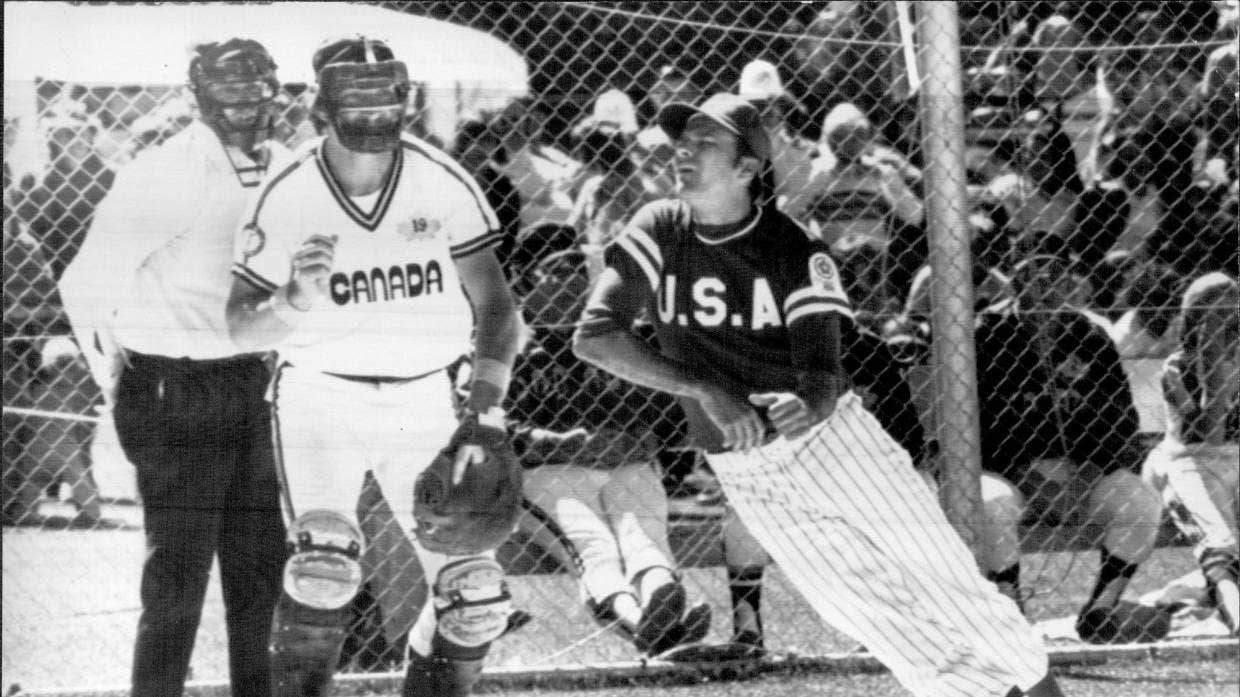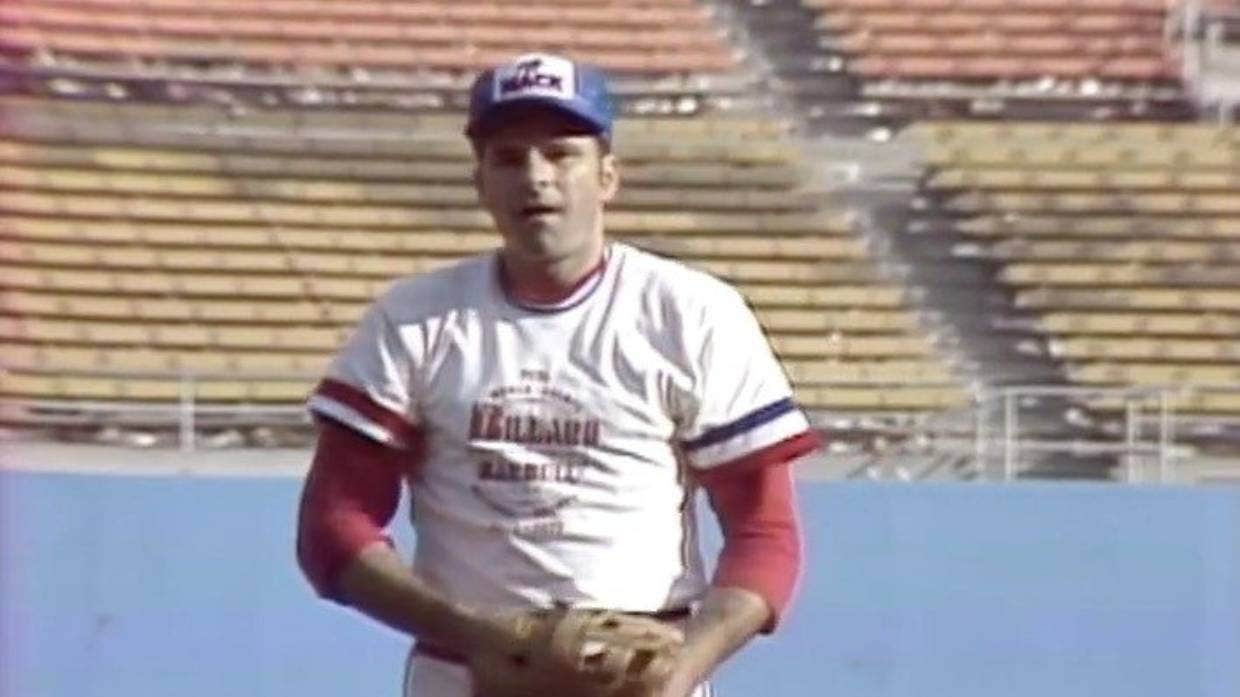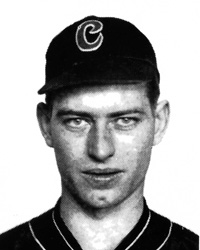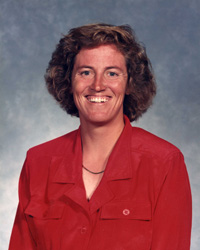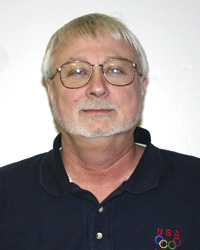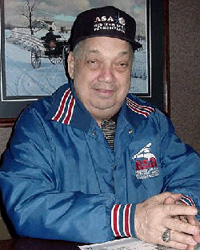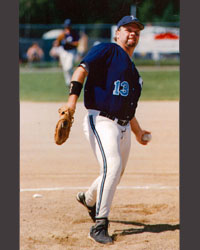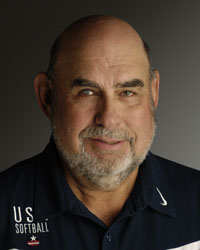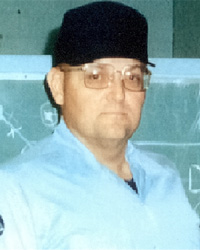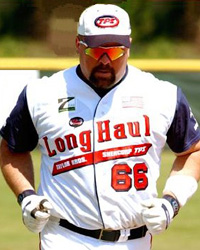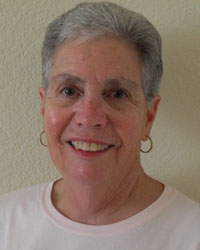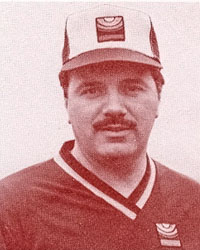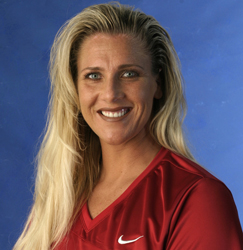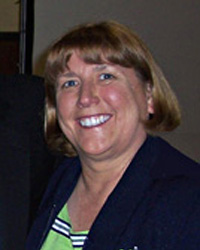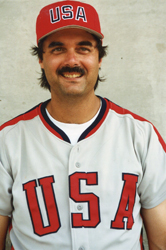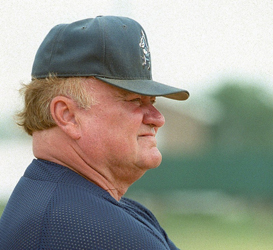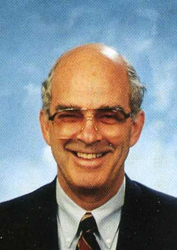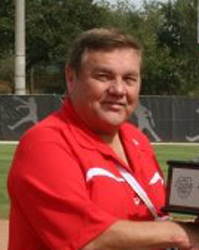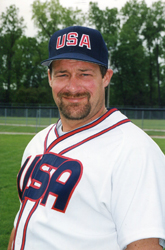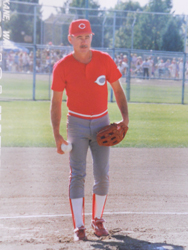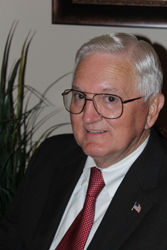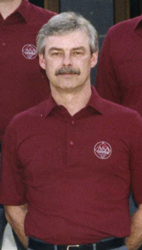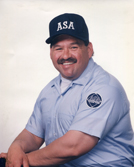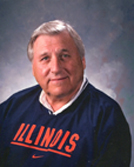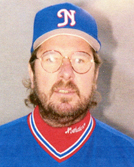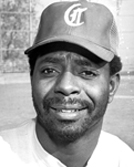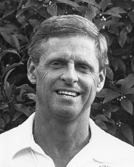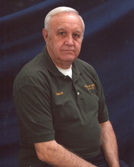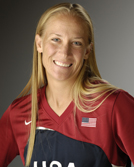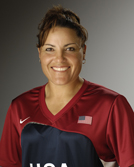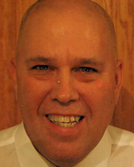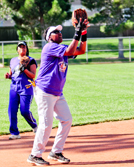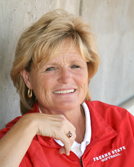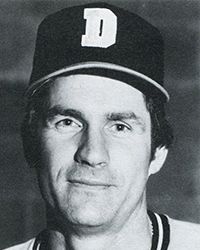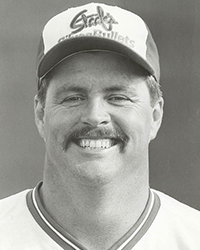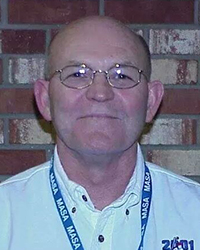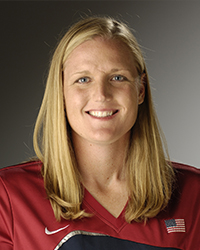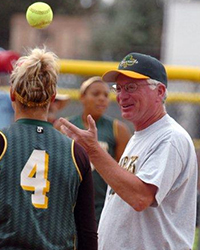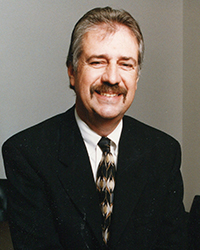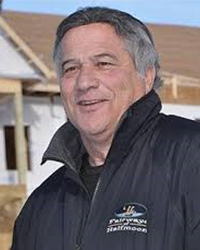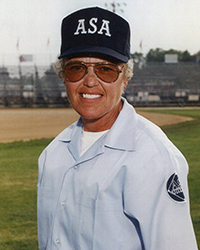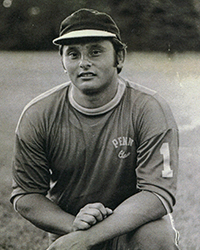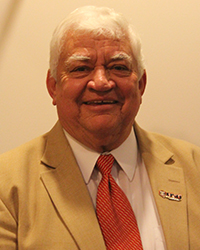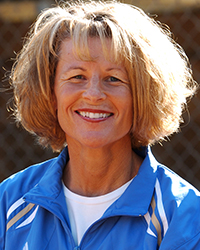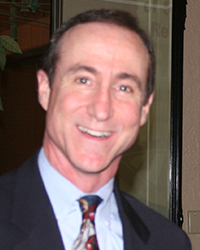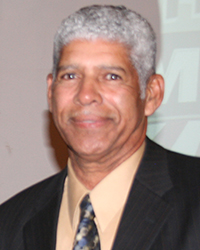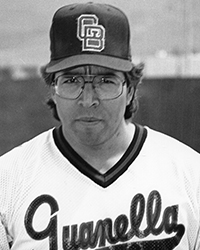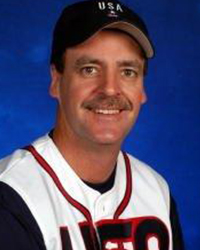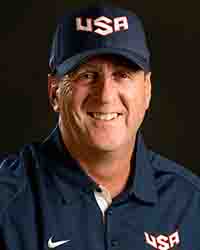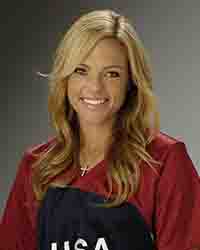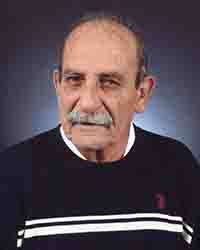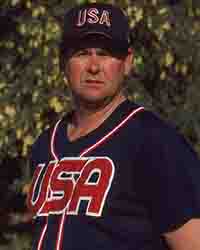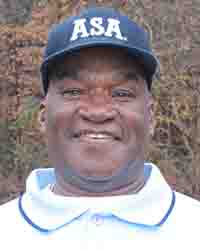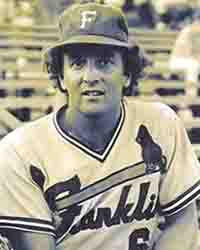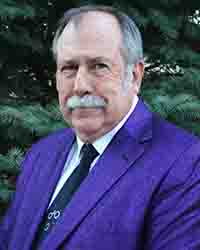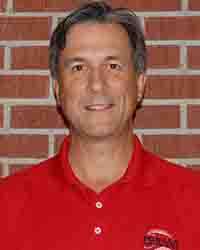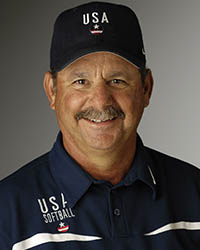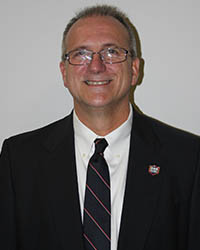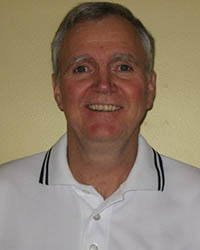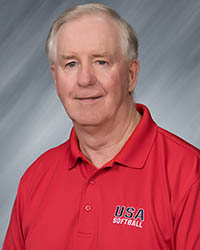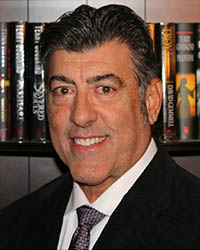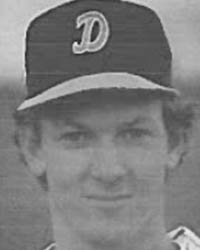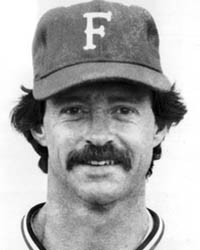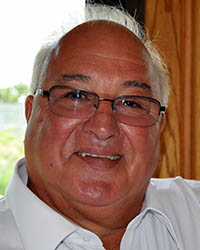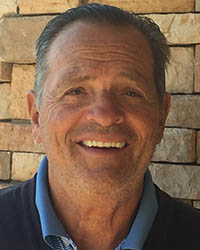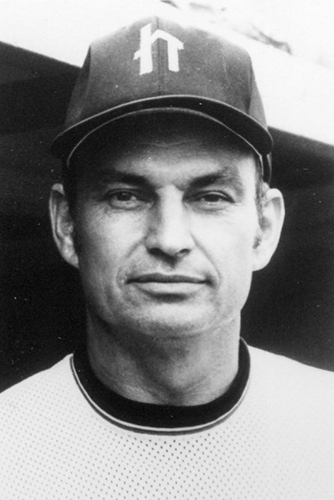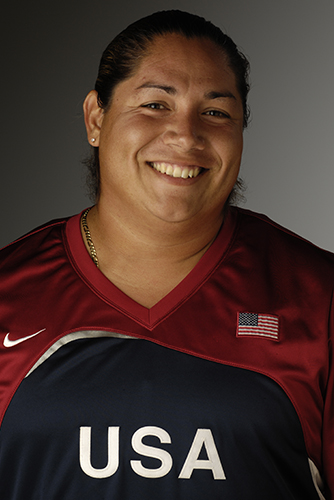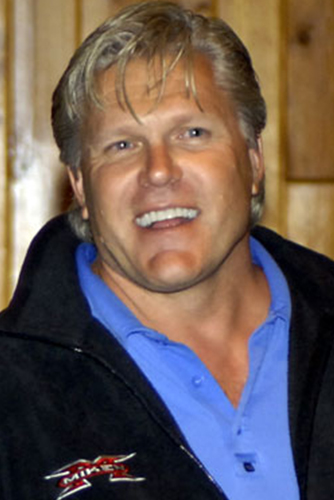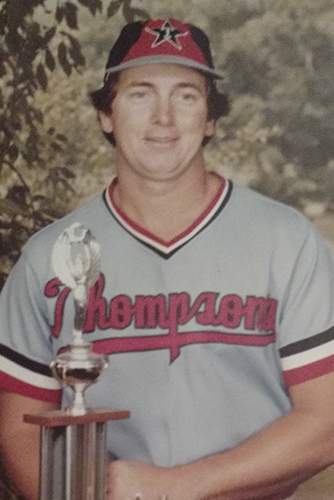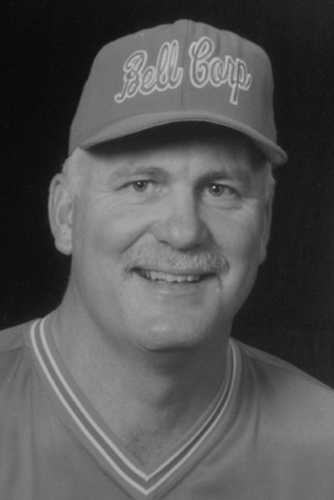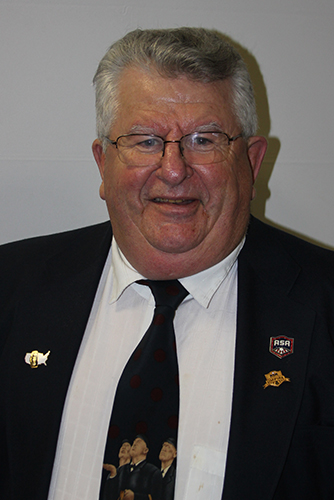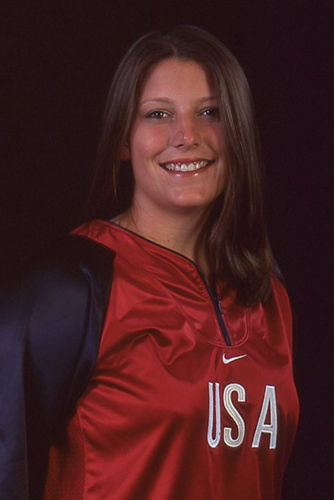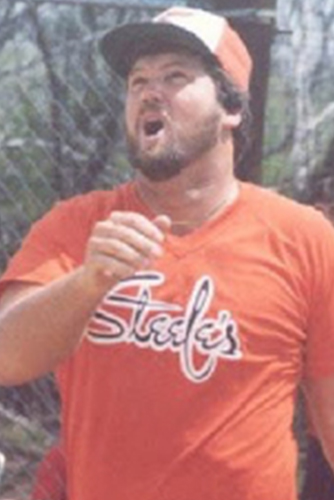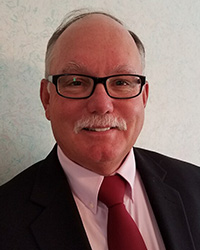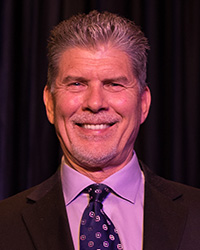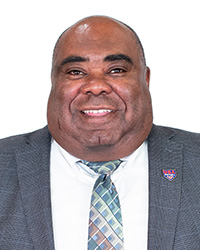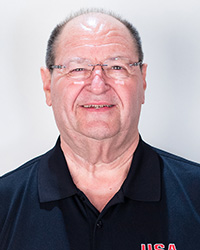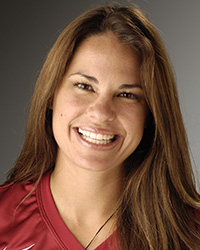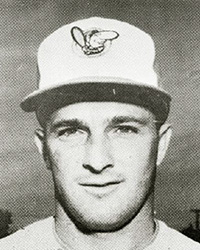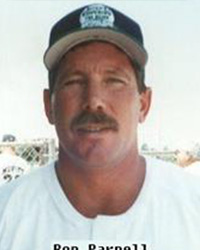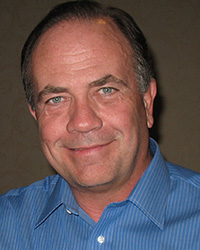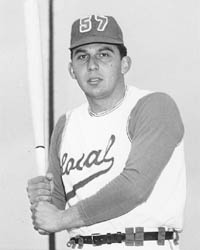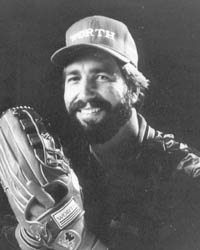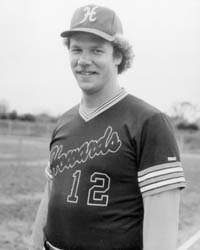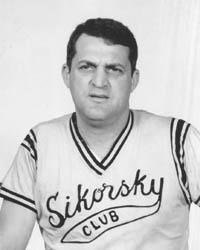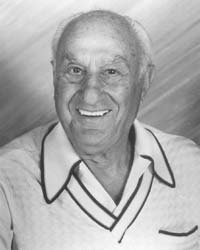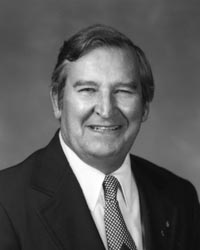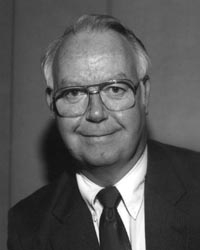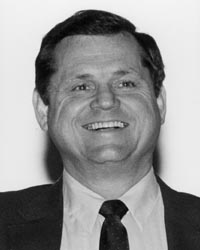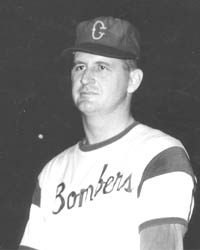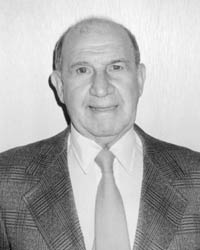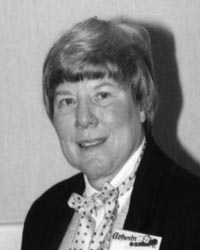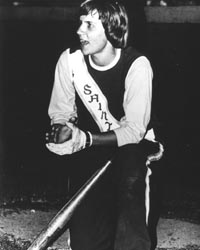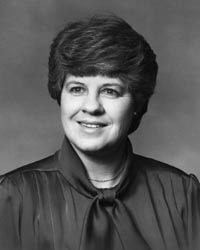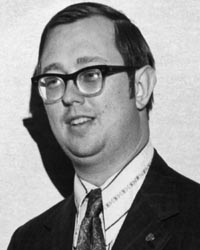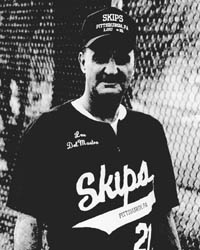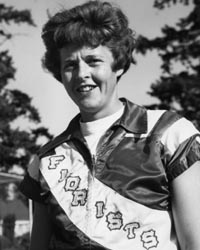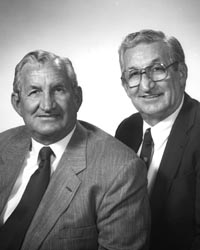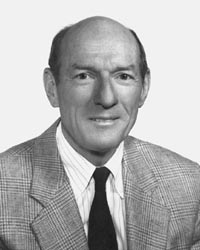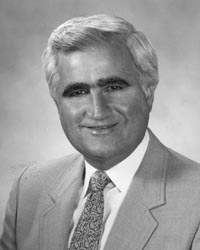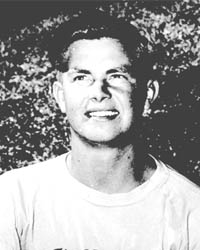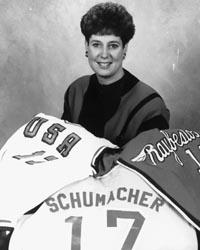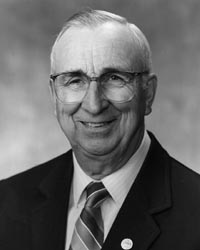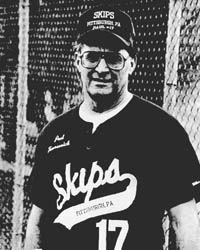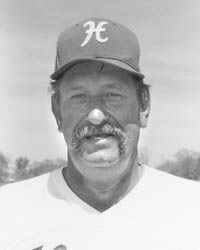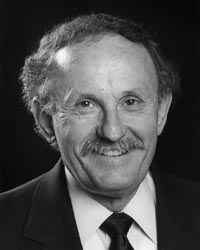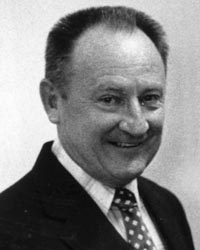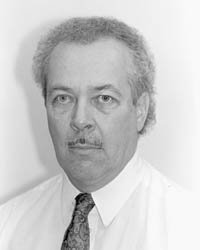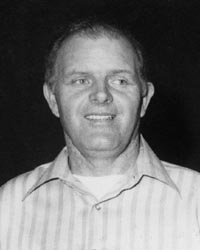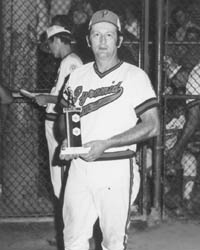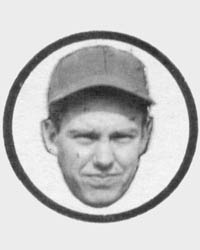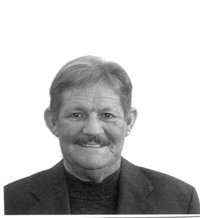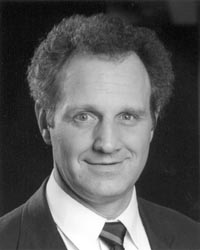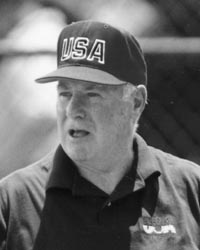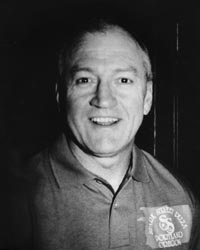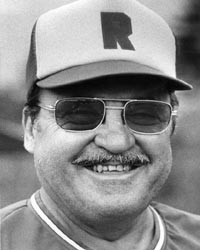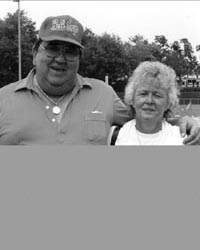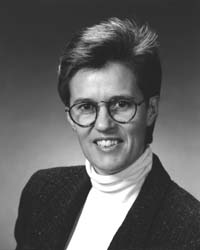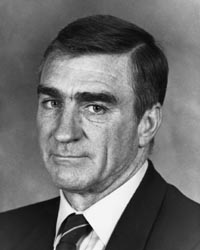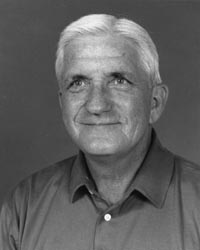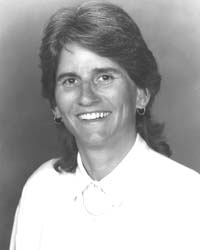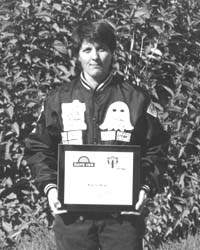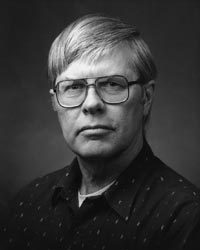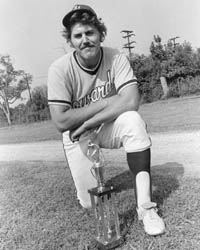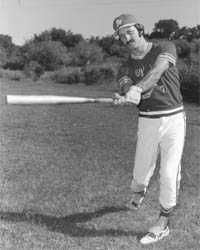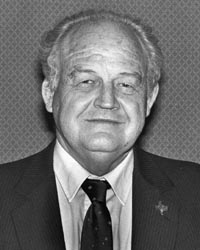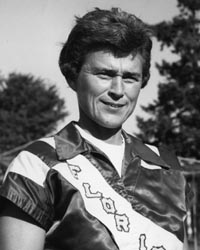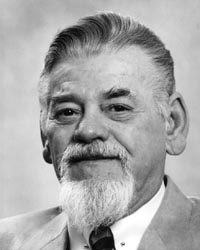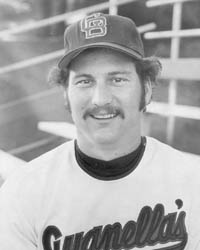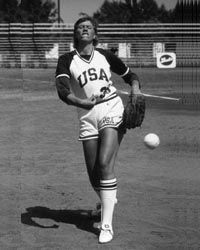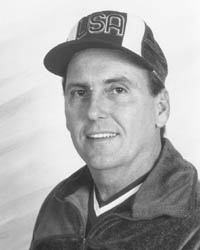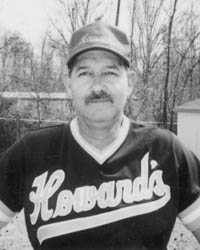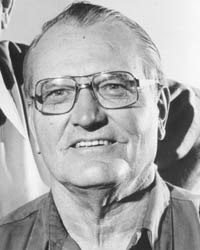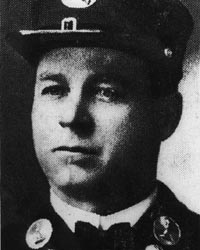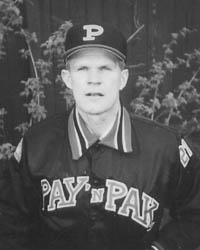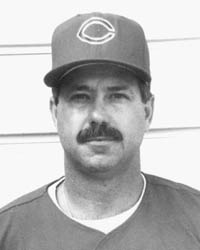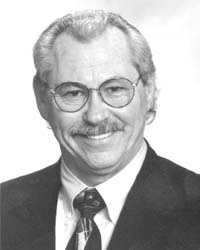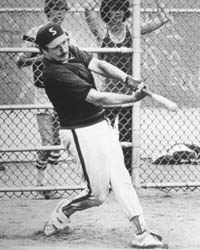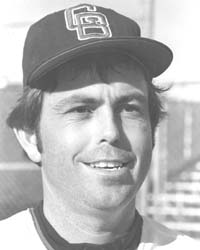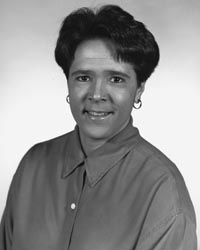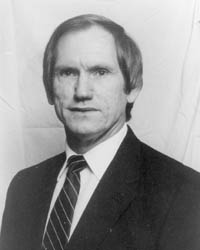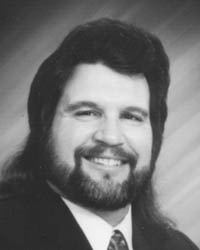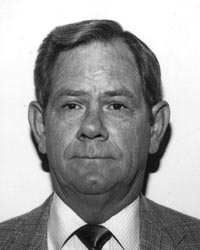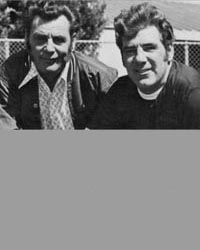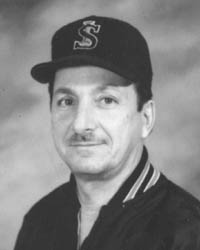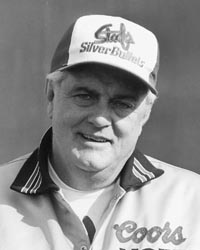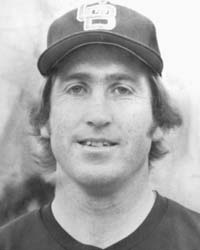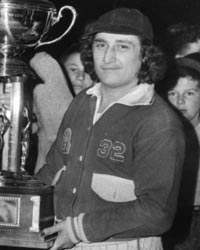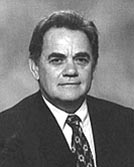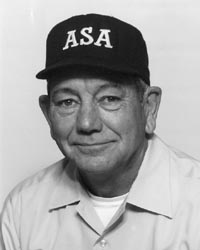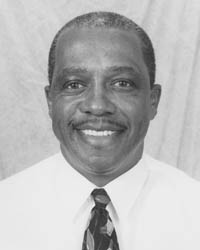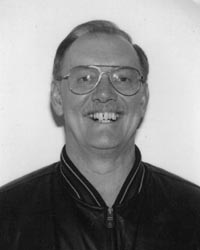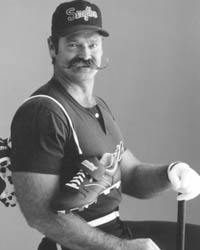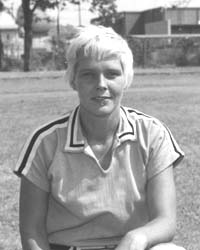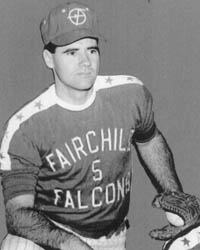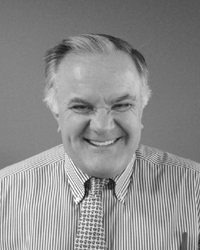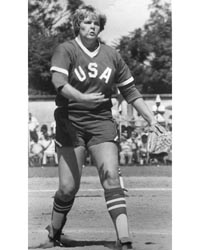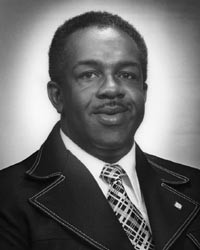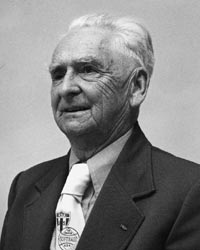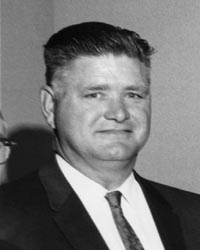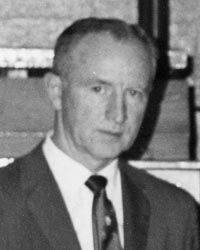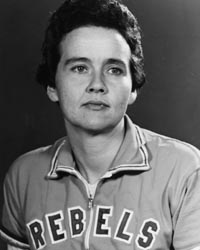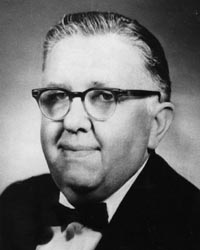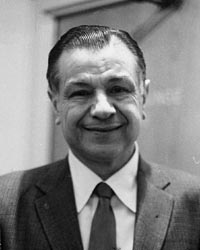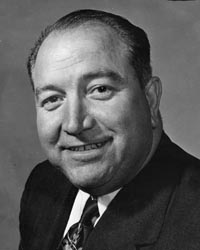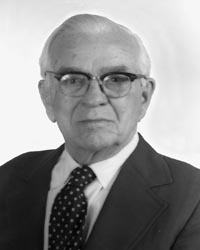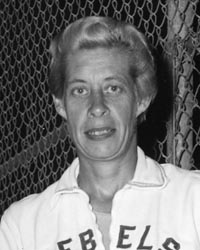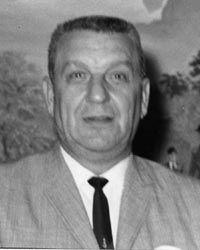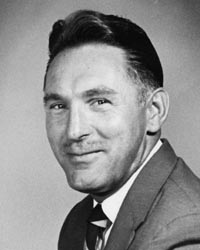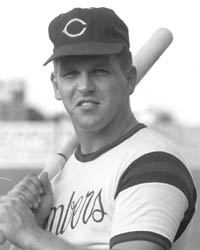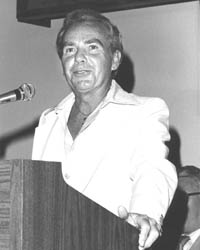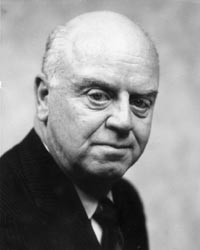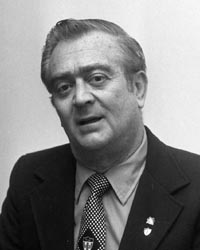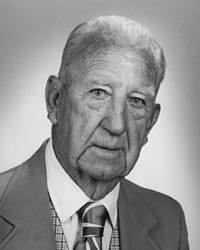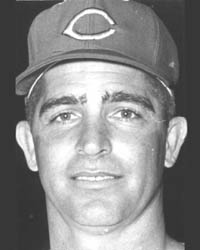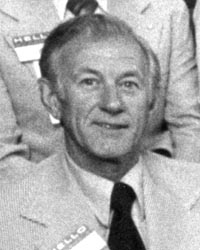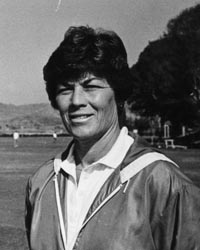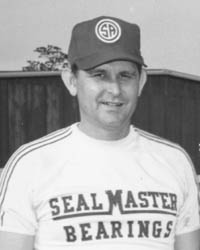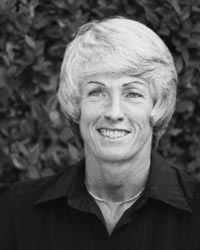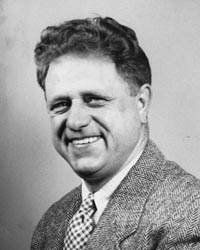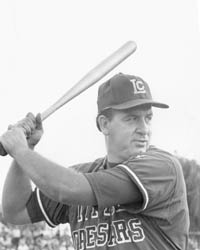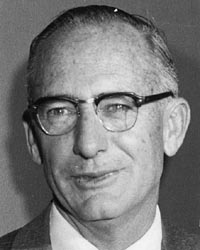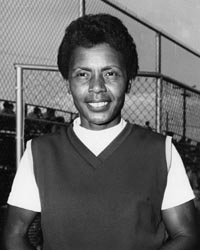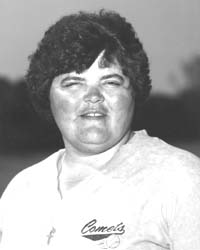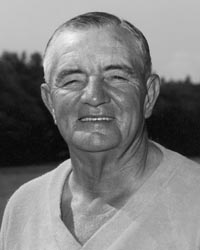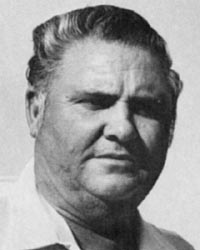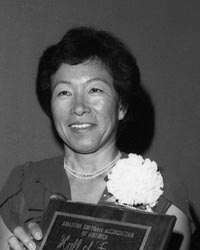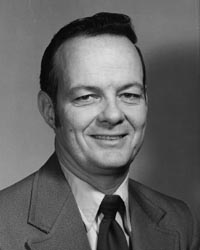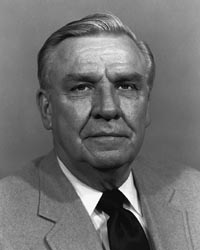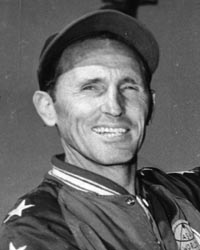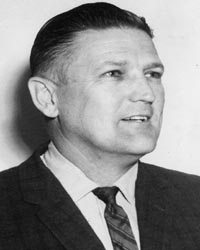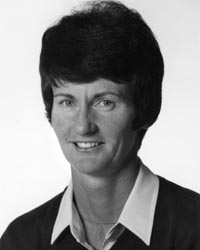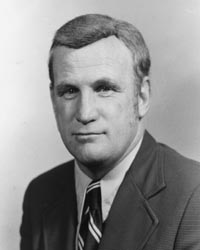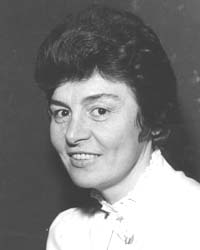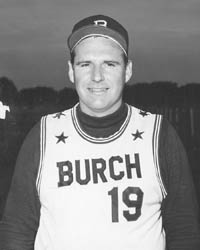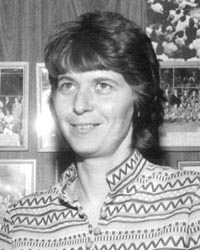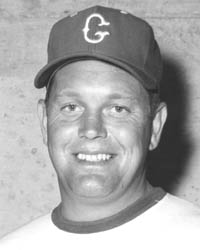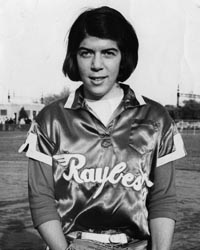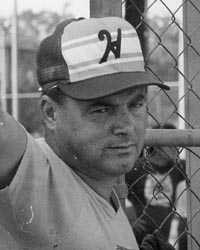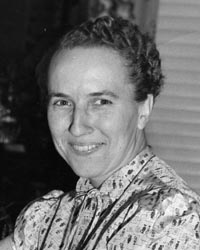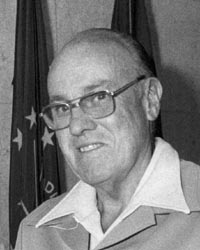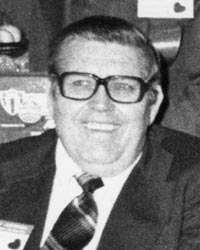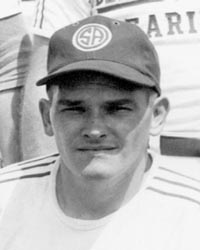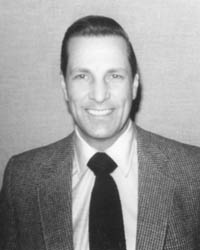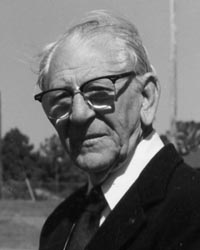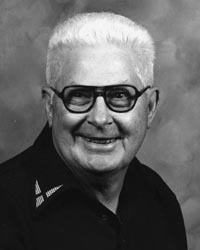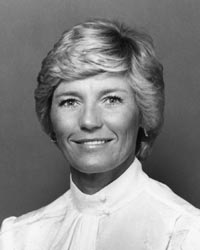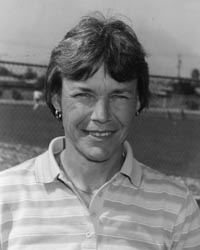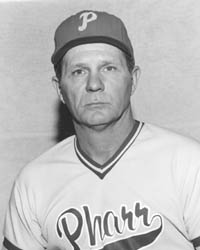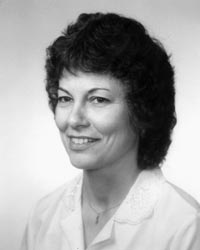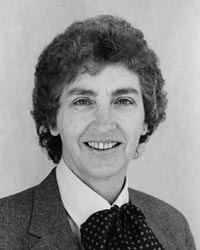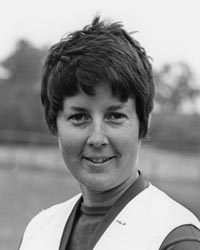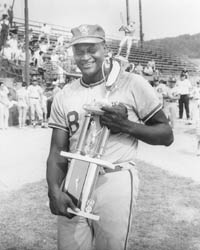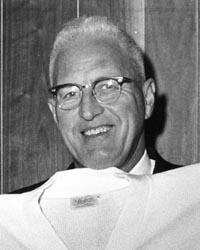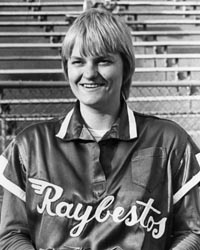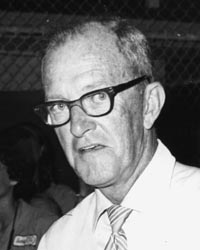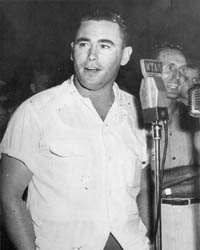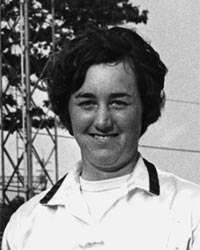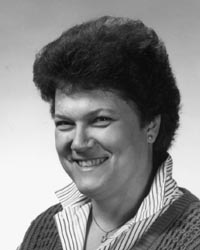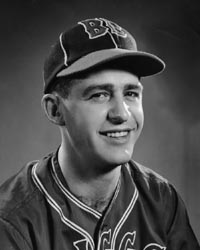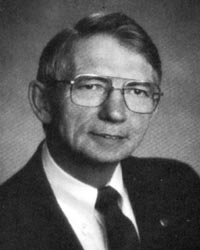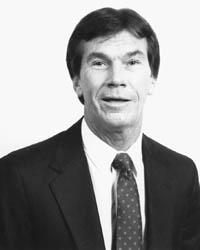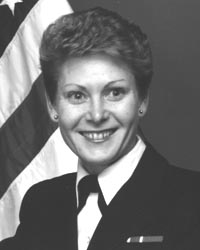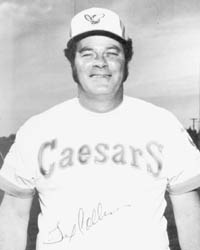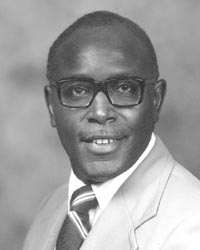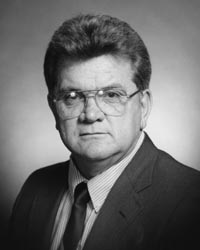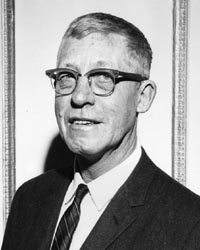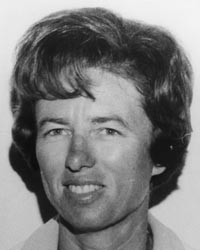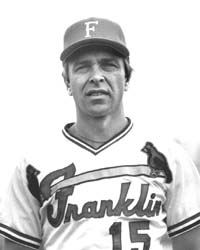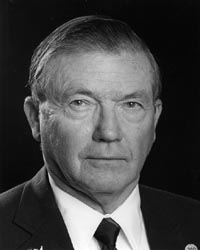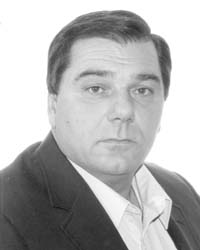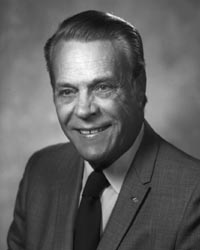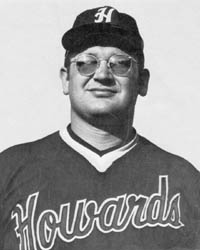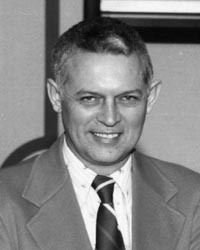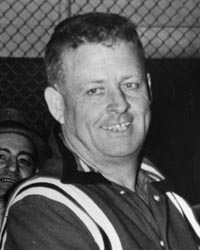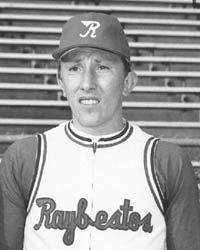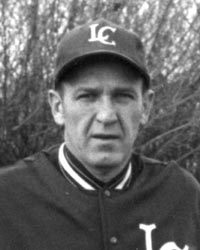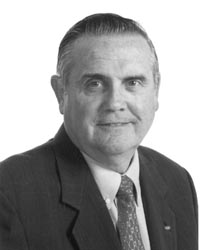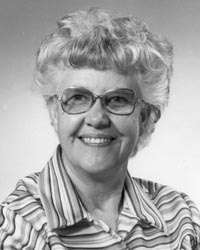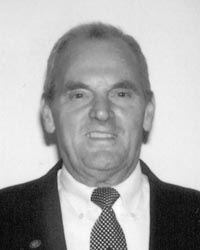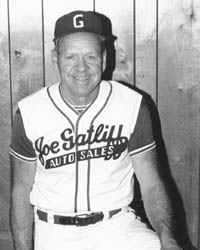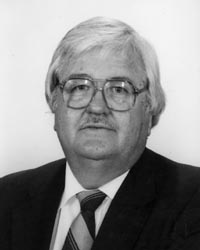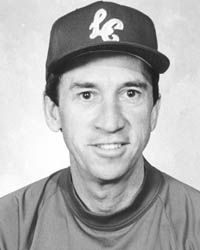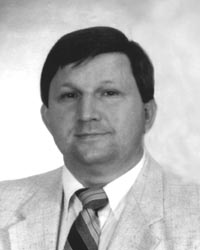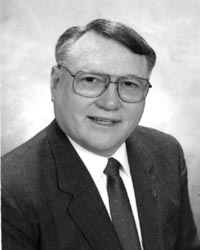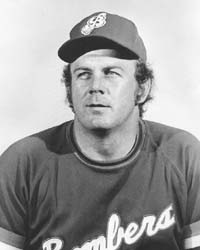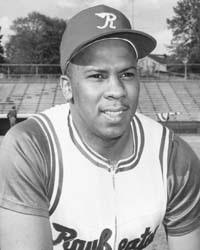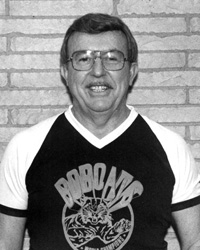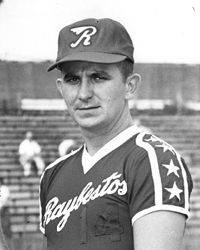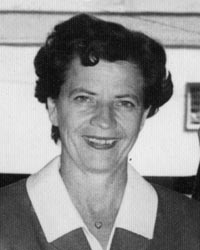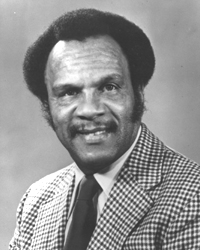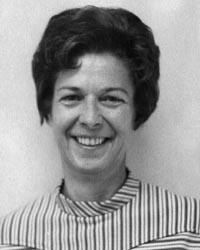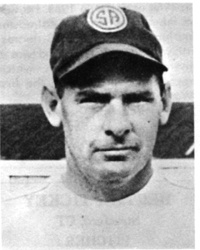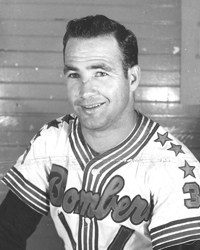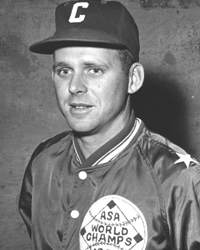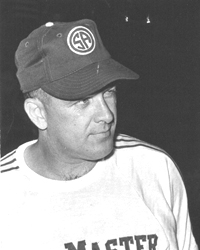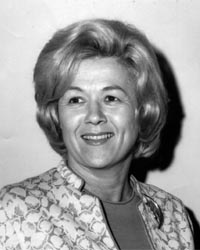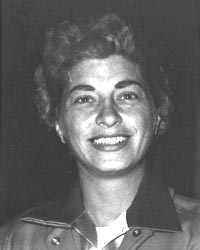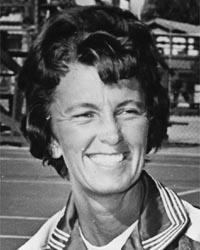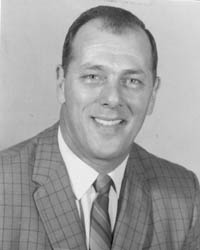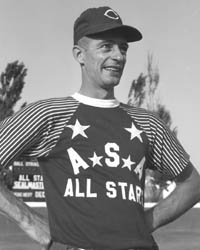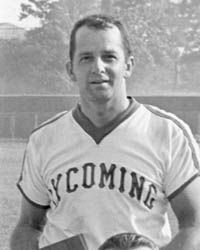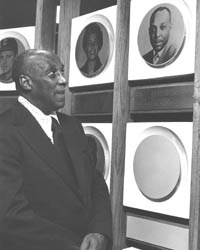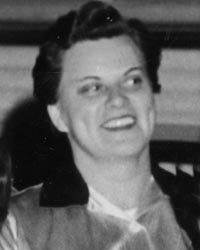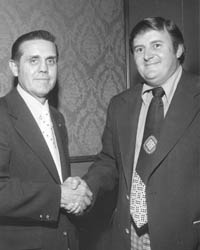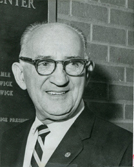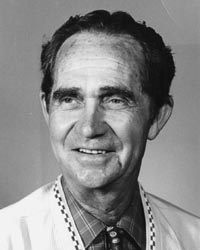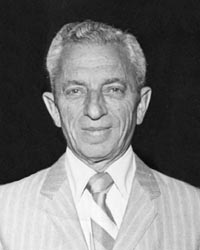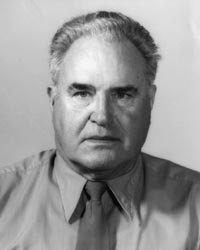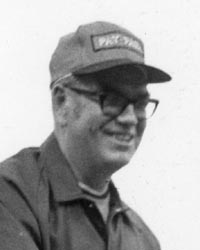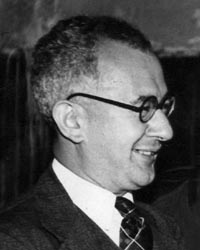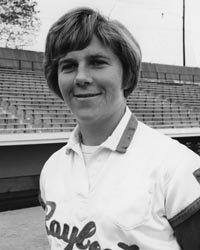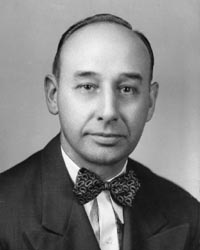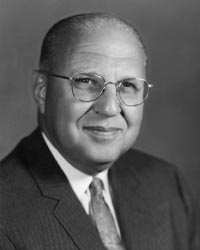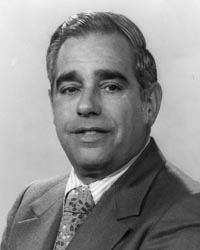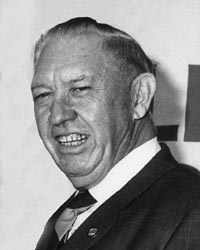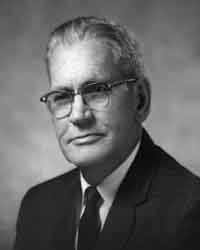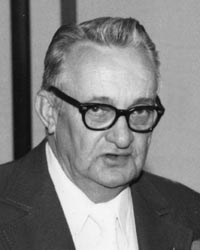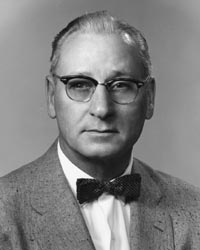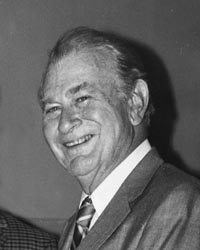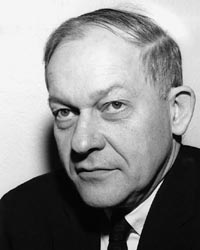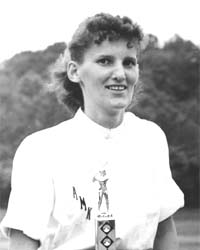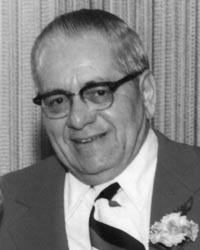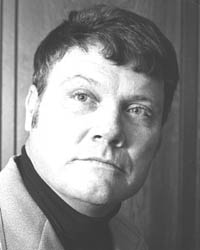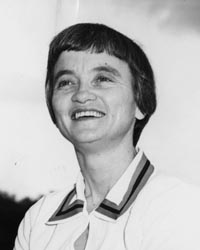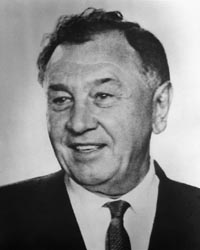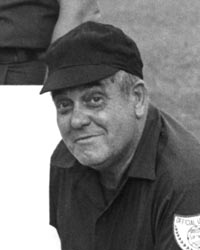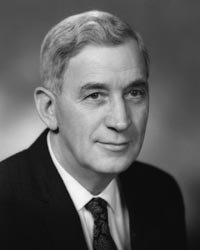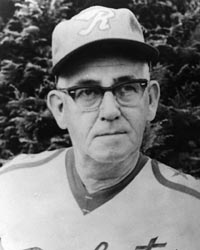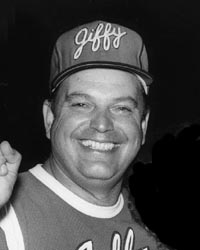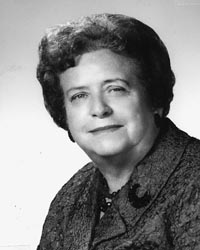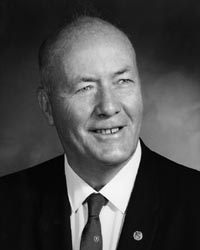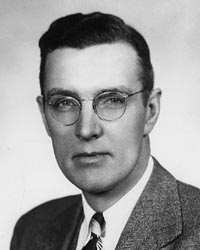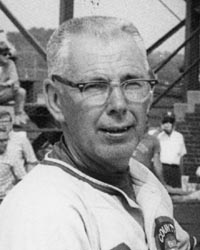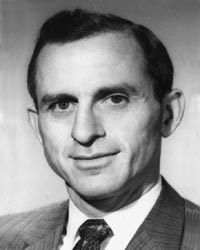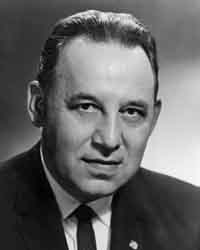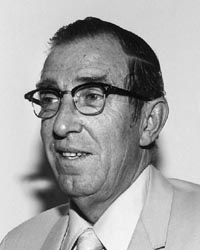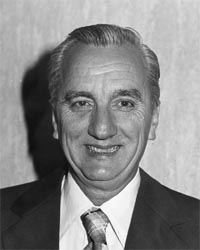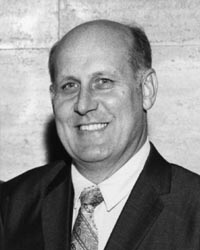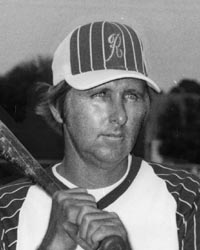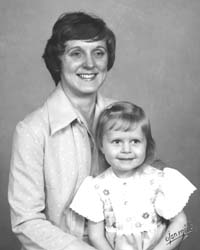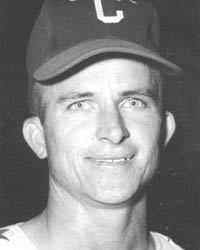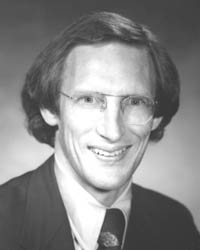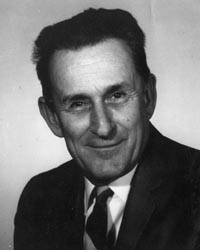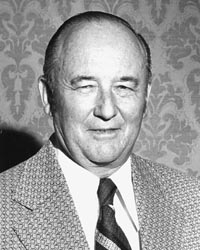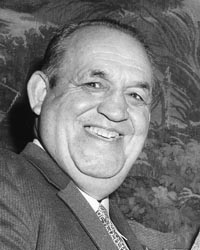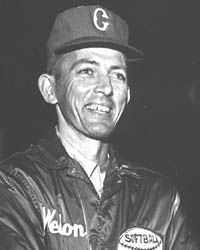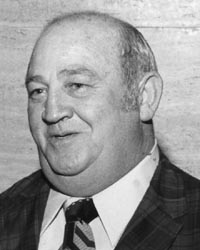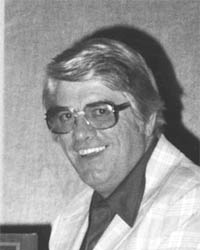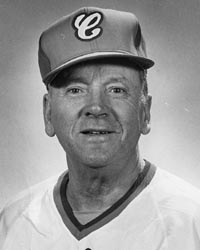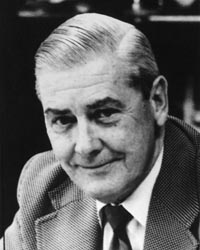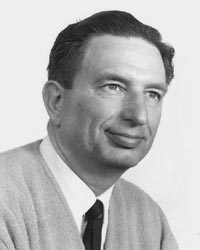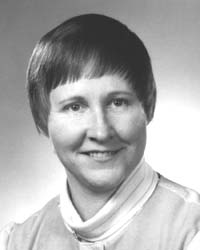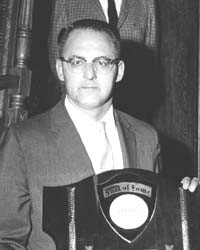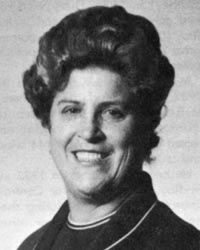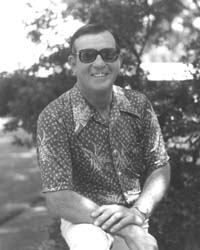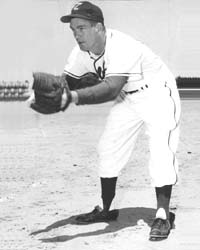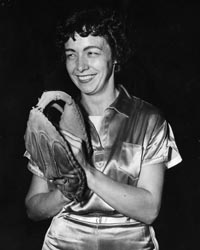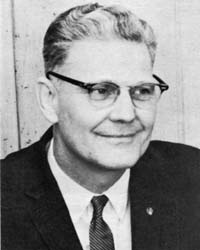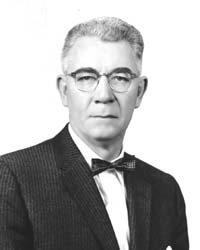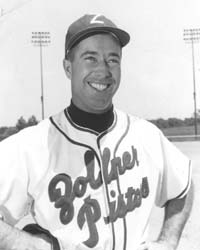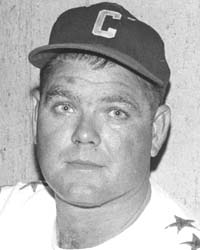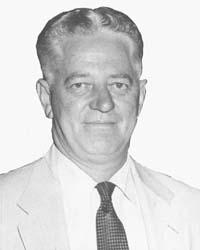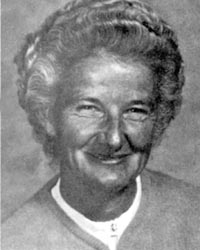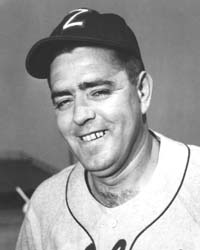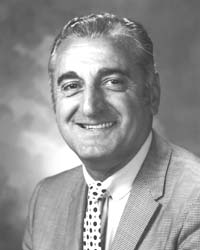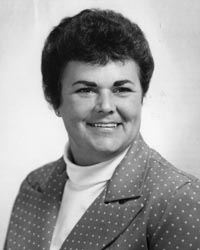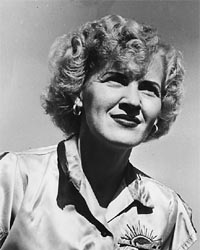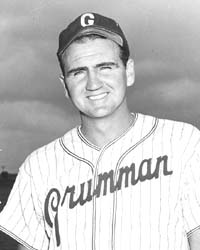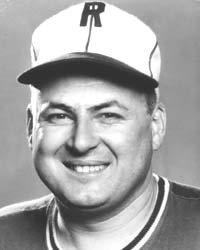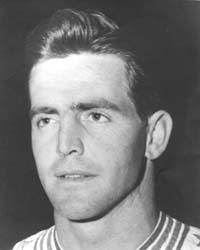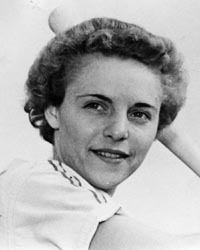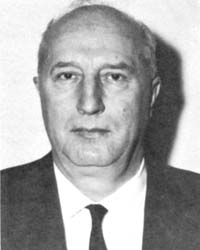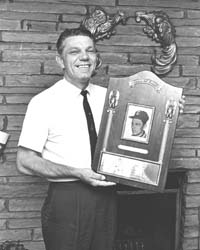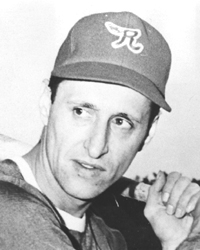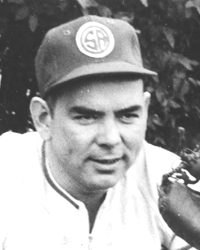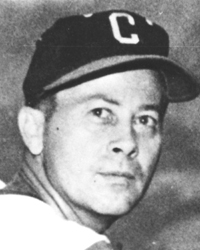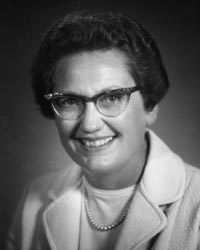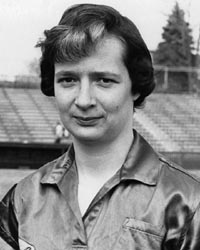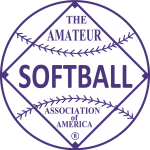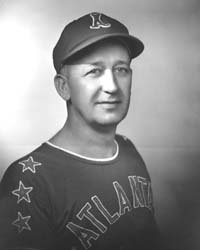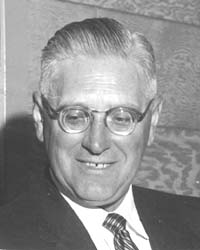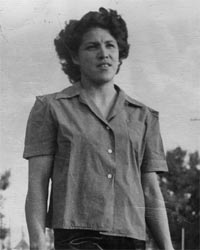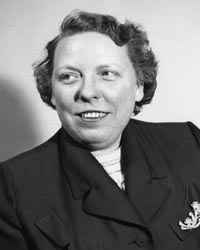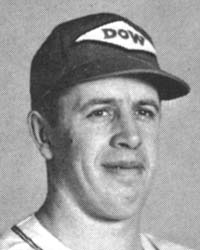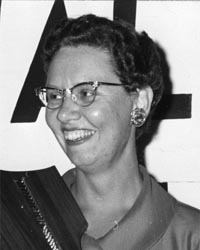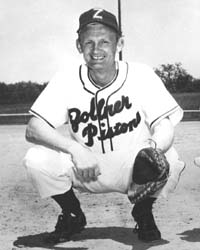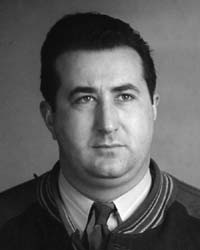The National Softball Hall of Fame is the ultimate goal for any player, coach, umpire or administrator who aspire to greatness in the sport. With over 400 inductees, the National Softball Hall of Fame is among the most difficult sports halls in the nation in which to gain membership.
Take a moment to browse through the Hall of Fame section and learn more about some of the sport’s greatest athletes and their accomplishments. If you get a chance to visit us in person while in Oklahoma City, please observe these hours of operation:
National Softball Hall of Fame and Museum
2801 Northeast 50th Street
Oklahoma City, OK 73111
(405) 424-5266
Monday-Friday: 8:30 a.m.-4:30 p.m.
Saturday-Sunday: Check USA Softball Hall of Fame Complex for weekend hours
The Hall of Fame and Museum does not charge, but donations are greatly appreciated and accepted. Your donations help keep this history of softball alive through exhibit updates, upkeep and restoration projects.
Link to Video of the National Softball Hall of Fame
The National Softball Hall of Fame and Museum was established in 1957. Once USA Softball moved to Oklahoma City January 1, 1966 after having its offices in Newark, NJ, the decision to establish a Hall of Fame Building in Oklahoma City was made in January of 1965. Groundbreaking ceremonies for the Hall of Fame were held December 19, 1970 in Oklahoma City. The late John Nagy, former Cleveland Metro commissioner, was USA Softball President at that time. Hall of Famers Harold (Shifty) Gears and Carolyn Thome Hart were among those attending the ceremonies.
The National Softball Hall of Fame was officially dedicated May 26, 1973 in Oklahoma City. The building was opened to the public July 1, 1973.
The first of two additions to the National Softball Hall of Fame/USA Softball Headquarters was started July 5, 1976 and completed July 13, 1977 for an additional 4,350 square feet of space. Dedication ceremonies for the expansion were held July 23, 1977. Counting the National Softball Hall of Fame/USA Softball Headquarters and the USA Softball Hall of Fame Complex, there is 28,406 square feet of space.
A second expansion was added July of 1980 for an additional 5,182 square feet of space, with total footage 18,140 square feet of space.
The National Softball Hall of Fame and Museum has over 400 members with two categories of membership: players and non players. Within the player category, there are five categories: Men’s/Women’s Fast Pitch, Men’s/Women’s Slow Pitch and Modified Pitch. Within the non player category, there are five different divisions one can be nominated in: Commissioner, Meritorious Service, Umpire, Managers and Sponsors. A nominee needs 75 percent (nine votes) of the votes cast by the 12 member Hall of Fame Committee to be elected. Annual inductions are held at the USA Softball Annual Meeting.
Through our vast collection of artifacts, the National Softball Hall of Fame and Museum strives to educate the public about softball’s rich history. Your support is critical to these efforts.
The Hall of Fame Donation Fund was established to ensure that the National Softball Hall of Fame has a future and is committed to educating people about the great former players and non players and the role they played in the development of the sport.
Your tax-deductible contribution helps the National Softball Hall of Fame continue its mission of educating, collecting and honoring as well as the preservation of the history of softball, the maintaining of present exhibits and purchase of new exhibits and possible expansion of the Hall of Fame building.
Click here to make a donation
Due to the volume of offers we receive, we cannot accept the donation of an artifact without a completed artifact description form. Please see our Mission Statement and Collections Management Policy to see what types of objects we will and will not accept. Once we have received your form, our staff will evaluate the object’s potential and will be in contact with you as to whether or not we will be able to accept the donation. If your object is chosen, the donated material will be recommended to the Executive Director for consideration. Following the meeting a staff member will contact you regarding the next steps.
 Click here for the Donor Questionnaire Form
Click here for the Donor Questionnaire Form
NATIONAL SOFTBALL HALL OF FAME CLASS OF 2000
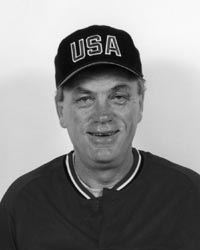
Russ Boice
Russ Boice, St. Louis, Missouri – Manager
Russ died on Christmas Day of 1998 at age 53 after suffering heart attack. Former player from 1964-1971 who turned to managing men’s fast pitch teams and became one of the game’s best. In 1982 and 1983 managed St. Louis Budweiser before beginning five-year stint as manager of Decatur, IL Pride. In 1985, Decatur was national runner-up and finished fourth in 1986, seventh in 1987, fifth in 1988 and runner-up in 1989. Served as an assistant coach for Penn Corp of Sioux, IA in 1990-91. Led National Care Discount of Sioux City, IA to ASA national titles in 1992 and 1993. In 1988 and 1992 served as assistant coach of the USA National Team. The team won a gold medal in 1988 ISF World Championship. In 1995 was assistant coach of USA Pan American team and was named head coach for 1999 Pan American team. Was named head coach of 1996 USA National Team for ISF World Championship in Midland, MI. Was born April 2, 1945.
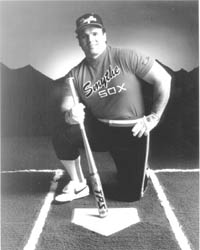
Bill Gatti
Bill Gatti, Louisville, Kentucky – Men’s Slow Pitch – Catcher
Louisville, KY has had its share of good softball players, but there was no one that was as well-known as the Great Gatti, Bill Gatti. A former University of Louisville football and baseball star, Gatti was one of the top players playing Major and Super Slow Pitch for more than 20 years. Gatti started playing slow pitch for a local team, Guards, in 1969 before joining Jiffy Club in 1971. That year, he led Jiffy club to a 11th place finish in the national tourney and led the tournament in batting (.867). He also earned the first of his five first-team All-America selections. In 1972, he led Jiffy Club to the national title, batting .714 with 14 homers to lead the tourney as well as being named tourney MVP. In 1973, Jiffy placed fourth before Gatti played pro football for two years before re-joining Jiffy Club in 1976. In eight Major/Super Nationals, Gatti batted .674 with 123 hits in 187 at-bats, driving in 144 runs and hitting 70 homers. During his career, Gatti smashed 1,937 homers and drove in 4,076 runs. In 1989, he led Ritch’s Salvage to ASA Major and Super Slow Pitch national titles and was the MVP in the Major National.
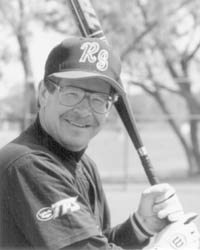
Dennis Graser
Dennis Graser, New Berlin, Wisconsin – Men’s Slow Pitch – First Base
The first Wisconsin slow pitch player elected to the Hall of Fame, Graser played from 1977 to 1996. Eight times he was named an ASA All-American and was a member of five Super slow pitch national championships teams: 1985-1987, 1988 and 1992 and three Super Division runner-up finishes. In six Super Nationals, he batted .645, hit 35 homers and drove in 90 runs. In 1989, he was a member of the gold medal team in the U.S. Olympic Festival in Oklahoma City. It was the first-time slow pitch was on the Festival program. From 1977-1982, he played in the American Professional Slo-Pitch League and was a member of three championship teams. He batted .706 in the 1982 pro softball World Series with five homers and 19 RBI. Besides the pro teams, Graser played amateur softball for Elite Coatings, Steele’s Sports, Starpath, and Ritch’s Superior. In three years with Steele’s, he had a .671 batting average and in 1987 had 217 doubles. In 1999, Graser was inducted into the Wisconsin ASA Hall of Fame.
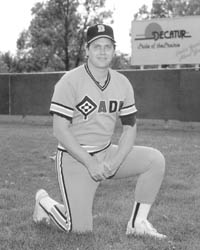
Ted Hicks
Ted Hicks, Chillicothe, Missouri – Men’s Fast Pitch – Third Base
If it was not for the persistence of his brother, Al, Ted Hicks might not have played major fast pitch softball. After injuring his right knee in college (Central Missouri University) playing football, Ted figured his major league baseball aspirations were over. He figured he would be labeled as “damaged goods.” In the ensuing years he continued to have problems with the knee resulting in four operations. Concerned about his brother, Al called Ted and asked him to play on a local softball team. He called him another day and said he had good news and bad news. The bad news was that the team Ted was going to play for had picked up a couple of players and did not need him. The good news was that Al quit the team and formed his own team and wanted Ted to play for him. The rest, as they say, is history as Ted played a couple of games and “loved it.” He went on to play 14 years (1975-1989) and establish himself as one of the top hitters in the game. From 1981-1989, he played for Decatur, IL and batted .318 with 121 homers and 841 RBI. Seven times he was named an ASA All-American and in 1978 set the record for the highest batting average in a Men’s Major Fast Pitch National Tourney, .632 (12-for-19). That year Ted also was named co-MVP of the tourney.
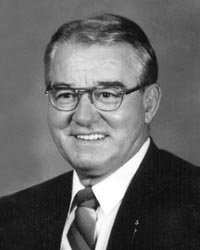
Wayne L. Myers
Wayne L. Myers, Terre Haute, Indiana – Commissioner
Wayne Myers took over from Tony Dyer as Indiana ASA commissioner in 1976 and has done an outstanding job the past three decades in making Indiana ASA among the top five associations within the ASA in membership. Started Indiana ASA Hall of Fame banquet and re-organized state into districts. Former fast pitch hurler. Served as vice president of the ASA and was ASA president from 1995-1996. Was team leader for USA National Team in 1986 ISF Women’s World Fast Pitch Championship. Vice-chairman of the ASA Hall of Fame Selection Committee. One of the best promoters of ASA softball. Was born August 11, 1925 in Terre Haute, IN.
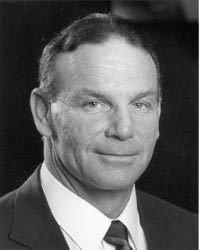
Billy Peterson
Billy Peterson, Woodbury, Minnesota – Umpire
Has been a member of the ASA National Umpire staff since 1985. Has umpired in five ASA nationals, two ISF World Championships and four NCAA College World Series. Was ISF certified in 1984. Is outstanding clinician and instructor. Has been an instructor at 44 ASA National Schools, 10 ASA Advanced Schools and four All-American Umpire Schools. Has been the UIC at 50 events ranging from ASA nationals to U.S. Olympic Festivals. In 1998, was inducted into the Minnesota Softball Hall of Fame. Second Minnesota umpire elected to ASA Hall of Fame.
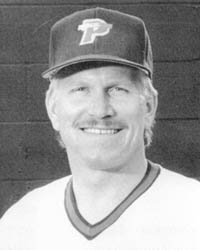
Denny Place
Denny Place, Livingston, Illinois – Men’s Fast Pitch – First Base
A model of consistency for the teams he played for during his 20-year career, Place could play shortstop, the outfield and first base, where he established himself as one of the premier first sackers in the game. In 11 years with Decatur, IL, Place had a .326 batting average hitting 111 homers, driving in 505 runs and scoring 763 runs. He played in 12 national championships and posted a .306 average with 89 hits in 291 at-bats with three homers and 27 RBI. Seven times Place was named an ASA All-American and was a member of the 1981 Men’s Major Fast Pitch National Champions. Besides the national championships, Place played in four U.S. Olympic Festivals (.301 batting average) and the 1992 ISF Men’s World Fast Pitch Championship in Manila where he batted .368 as the USA won a bronze medal. A 1979 graduate of University of Wisconsin at Platteville, Place had been a four-sport standout at Iowa Grand High School in Livingston, WI where he once rushed for 300 yards in a game and his high school football coach, Jim Piquette, turned out to be his father-in-law. Place was born May 21, 1956.
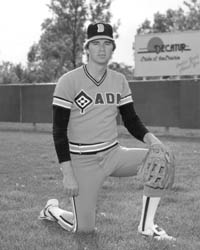
Brian Rothrock
Brian Rothrock, Stewardson, Illinois – Men’s Fast Pitch – Outfield
Ideally Brian Rothrock would have liked to have been pitching in the major leagues. As fate would have it, Rothrock spent three years pitching in the Minnesota Twins organization. But after being shuffled around coupled with arm problems, Rothrock decided to give up professional baseball and return to Central Illinois to try fast pitch softball. It was a move neither he nor his teams would regret. Although struggling at first to find his stroke, he eventually found it and developed into one of the game’s most feared hitters during the 11 years he played major fast pitch for teams in Illinois, including nine years for Decatur, IL. Between 1981-1989 Rothrock batted .335 with 928 hits in 2,770 at-bats and hit 148 doubles, 72 triples and 181 homers or at least 20 per year against some of the best pitching in the United States. Only once did he hit below. 300 (.298 in 1982) and in 1988 batted .411 and .379 in 1985. That season included 33 homers, 106 RBI, 21 doubles, eight triples, 128 hits and 100 runs scored. His 1985 performance helped Decatur place runner-up in the national championship. It also placed second in 1982,1983 and 1984 plus won the national title in 1981, Brian’s first year with the team. Rothrock batted .283 in nine nationals and five times was named an ASA All-American. He led the 1988 ASA national in batting with a .458 average and in 1983 shared the home run leadership with three. He batted .286 in four Olympic Festivals and starred in two World Championships.
NATIONAL SOFTBALL HALL OF FAME CLASS OF 2001
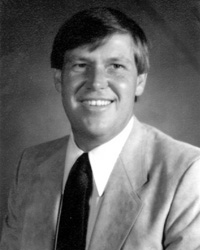
Horace Bruff
Horace Bruff, Piedmont, Oklahoma – Umpire
Former Metro Oklahoma City UIC who served as a member of the National Umpire staff from 1981-1987. Before joining staff, umpired Women’s Major Fast Pitch National (1975), Men’s Church Slow Pitch National (1978), Men’s Major Slow Pitch National (1979) and Women’s Church Slow Pitch National (1981). In 1982, was the UIC for the Girls’ 15-under Fast Pitch National and the Men’s Class A Slow Pitch National twice. In 1985, named UIC for men’s competition in U.S. Olympic Festival in Baton Rouge, LA. In 1983, served as a guest clinician for the United States Army Europe Officials in Germany and was praised for his outstanding abilities as an organizer, communicator, and motivator of people. The clinics were given in Frankfurt and Nuremberg. In 1987, was assistant UIC for Junior Girls’ World Championship in Oklahoma City and Men’s Industrial Slow Pitch National. In 1986, became a member of the National Indicator Fraternity. Former high school football and basketball coach. Has a B.S. degree from Oklahoma Christian College.
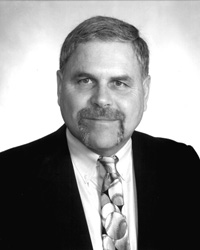
Don Clatterbough
Don Clatterbough, Mechanicsville, Virginia – Men’s Slow Pitch – Outfield
Throughout his career, outfielder Don Clatterbough was a model of consistency and played slow pitch without a lot of fanfare. He played baseball growing up and after a couple of seasons of semi-pro baseball, was asked by a friend to play slow pitch softball. He liked it so much that he continued to play and had a career that spanned three decades. Considered a tough out, Clatterbough was named an ASA first-team All-America five times, second team in 1988 and third team in 1989. In 1985, he helped Blanton’s of Fayetteville, NC win the ASA Major Slow Pitch National title followed by a runner-up finish the following year. In at least nine ASA nationals Clatterbough batted between .419 and .800. In 1987, he led the Men’s Major National in RBI with 38 and shared the home run trophy with 15 to go along with his .769 batting average. In 1988, he batted .684 in the national tourney followed by a .667 average in the 1989 Super National and a .476 average in the 1989 Major National. Clatterbough played for some of the nation’s top teams including Starpath/Kirk’s Glass, Steele’s Sports, Blanton’s, and Dave Carroll Sports. He estimated he hit between 3,500 and 4,000 home runs and had a lifetime batting average between .675 and .725. He calls his election to the Hall of Fame “a very gratifying award. My whole life has been dedicated to being as good a softball player as I could be.”
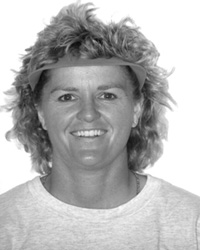
Suzie Gaw
Suzie Gaw, Dayton, Ohio – Women’s Fast Pitch – Infield
Gaw joined the Sun City, AZ Saints as a teenager and during the next two decades established herself as one of its all-time top players, earning All-America honors 11 times and appearing in more than a dozen nationals playing the outfield and infield. In 1979, she helped the Saints win the ASA Women’s Major Fast Pitch National Championship and was named a second-team All-America. Four times Gaw was selected to the USA Pan American team: 1979, 1983, 1987 and 1991. In the 1987 Pan American Games, she led USA team in batting with.636 average. In the 1979 Pan Am Games Gaw batted .347 and led the team with two homers. In the 1983 Pan Am Games, she batted .235, but had 10 RBI. Eight times Gaw played in the U.S. Olympic Festival and was a member of three gold-medal winning teams (1978, 1981 and 1982). After an outstanding high school career, Gaw earned a scholarship to Arizona State University where she was named all-conference twice and had a .281 batting average with 16 homers and 86 RBI. Since retiring, Gaw has remained active in softball and has served twice as a member of the USA Softball Women’s Selection Committee. She lives in Scottsdale, AZ working as a fireman. She was born March 9, 1960 in Dayton, OH.
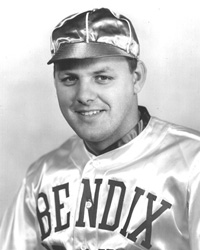
Harry Kraft
Harry Kraft, Kenosha, Wisconsin – Men’s Fast Pitch – Pitcher
Harry Kraft’s career in softball started as a teenager in 1929 when he hurled a no-hitter in his first start as a pitcher in the Kenosha, WI City League. Between 1931-33 Kraft won 89 games and lost 17 for Miller’s of Kenosha. He wins included nine no-hitters and in 1933 had a 47-7 record. Although his career lasted into the 1940s, the highlight of it came in the 1934 national championship in Chicago, IL where Kraft dazzled the Newport, KY team, striking out a then record 38 batters in a quarter-final 2-1 win. It was a dazzling display of pitching class and endurance as Kraft bested Cannonball Bailey, allowing only six hits. It was the only game Kraft hurled in the tourney as the Ke-Nash-A’s of Kenosha went on to win the national title. Kenosha finished the year 64-10 but was unable to repeat in the national the next year. From 1931-1935 Kraft compiled a 132-34 record with 14 no-hitters before joining Bendix Brakes of South Bend, IN. Kraft won 18 of 19 games in 1937 as Bendix compiled a 59-6 record. Kraft had a win against Hall of Famer Shifty Gears in the national tournament that year, which was another highlight of his career. He had a 2-1 record in the nationals. Kraft continued to play until 1945, then umpired from 1946-1961. He compiled a 525-75 won-loss record in his career with three perfect games and 32 no-hitters. He estimated he averaged 15 strikeouts per games. Kraft passed away May of 2000 at age 87.
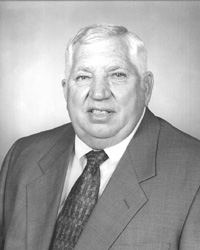
Kinard Latham
Kinard Latham, Columbus, Georgia – Meritorious Service
Latham has been involved in the ASA umpire program since 1962. Has served as the UIC at more than two dozen ASA nationals and umpired in 15 ASA nationals. Also served as the umpire coordinator for various international events, including Superball in 1995 and 1997 and Junior Superball in 1998. At the 1996 Olympic Games coordinated the bat and ball girls for each team. Held the first umpire school in Georgia in 1983 and has held one every year since then. In 1986, was elected to the National Indicator Fraternity. A year later, was elected to the Georgia Hall of Fame. In 1997, received the ASA Award of Excellence for his region. In 1994, received the Al Bishop Award for his outstanding contributions to the sport of softball in Georgia. In 1995, was recipient of the Georgia ASA Recognition Award. Kinard is a graduate of St. Bernard College, Cullman, AL and has a master’s degree from Georgia State University.
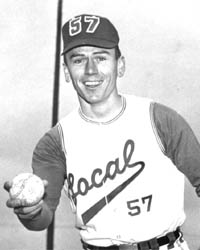
Bob Quinn
Bob Quinn, Branchville, New Jersey – Men’s Fast Pitch – Pitcher
A graduate of Boston State College, where he starred in hockey, Quinn also excelled as a fast pitch pitcher during the summer, earning All-America honors four times during a career that spanned more than 40 years. Quinn was a first-team selections in 1965 and 1973 and a second-team choice in 1966 and 1972. In 1965, he compiled a 4-1 record in the nationals in pitching Local 57 of Providence, RI to a third finish Quinn finished the year 34-4. In 1966, Quinn led the team to a second-place finish, losing 4-2 to the Clearwater, FL Bombers. Quinn joined the Bombers in 1981 and remained with them the remainder of his career. He hurled the Bombers to the 1973 national title as well as a runner-up finish in 1972. In the 1972 nationals, Quinn compiled a 2-2 record in the nationals. In 1973, he won three games including beating Sunnyvale, CA 4-1 in the finals on a four-hitter. Quinn says winning the 1973 national was his greatest thrill in softball. In 18 ASA nationals, Quinn compiled a 22-17 record and was certainly one of the most competitive players to wear a Bomber uniform. Quinn made his last appearance in a national tourney in 1986 in Seattle, WA. Quinn was born November 19, 1941 in Somerville, MA and died on July 31, 2015.
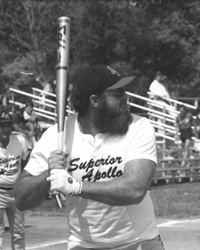
Rick “The Crusher” Scherr
Rick Scherr, Slinger, Wisconsin – Men’s Slow Pitch – Third Base
Nicknamed “The Crusher,” that’s what Scherr did to softballs during an almost a 20-year career, hitting more than 4,000 homers and driving in more than 7,000 runs. Ten times Scherr was named an ASA All-America and played in 10 national championships. He was a member of four national championships teams and was MVP of the ASA Super National three times (1981, 1983 and 1984). In the 1981 national, Scherr batted .842 and hit eight homers, driving in 23 runs. In 1983, he batted .882 with 12 homers and 30 RBI while in 1984 connected for a .774 batting average with 20 homers and 37 RBI. Between 1989 and 1989 Scherr had a phenomenal decade. He averaged a homer every 2.30 times at bat, hitting 2,985 while driving in 6,021 runs and bating .710. In 1989, Scherr appeared in the U.S. Olympic Festival slow pitch competition in Oklahoma City and batted .720, hitting 13 homers and driving in 30 runs to help the North team win a bronze medal. That year he also was MVP of the prestigious Smokey Mountain Classic in Maryville, TN. Twice Scherr set national home run records, 356 in 1982 and 451 in 1985. Scherr was born and raised in Slinger, WI and weighed more than 280 pounds, standing 6-feet-5 inches tall. He is the ninth former Howard’s-Western Steer, Denver, NC player elected to the ASA Hall of Fame. He also played for Superior Apollo of Winsdor Locks, CT retiring after the 1991 season.
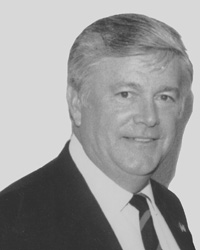
Walt Sparks
Walt Sparks, San Antonio, Texas – Umpire
Involved in ASA umpiring for more than 40 years, Sparks serves as the Texas Region UIC as a member of the ASA national umpire staff. Sparks was named to the staff in 1981. Five years earlier he was named San Antonio, TX UIC. Sparks served as the first president of the Southwest Softball Umpires’ Association and helped develop the University Interscholastic League High School Program in Texas. An accomplished clinician, Sparks has instructed at more than 40 ASA National Schools as well as giving clinics overseas in Europe. He has served as the UIC at more than 50 ASA nationals as well as three U.S. Olympic Festivals. He is a member of the National Indicator Fraternity and the Texas Softball Hall of Fame. Walt says umpiring the Clearwater, FL Bombers in the 1970s was the highlight of his softball career.
NATIONAL SOFTBALL HALL OF FAME CLASS OF 2002
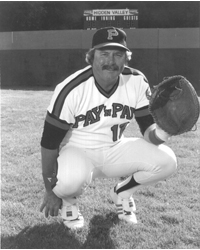
Butch Batt
Butch Batt, Seattle, Washington – Men’s Fast Pitch – Catcher
Fast Pitch softball teams must be strong up the middle. And the Seattle, WA Peterbilt and Pay ‘n Pak fast pitch teams certainly did not have to worry about their strength up the middle, starting with catcher Butch Batt, who played the sport 21 years. Batt earned ASA All-American honors five times, played on two ASA national championship teams (1980 and 1982), participated in 12 ASA nationals, one ISF World Championship, two Pan American Games (1979 and 1983) and three U.S. Olympic Festivals (1978, 1981 and 1983). After retiring as a player, Batt coached for Pay ‘n Pak in 1987 and managed the Knoll Lumber Legends to three ASA Master’s Championships (1995-1997). Solid defensively and adapted to handling pitchers, Batt could swing the bat with authority and was consistent .290 plus hitter. He was first named an All-American in 1973 when he batted .286 in the national championship for Pay ‘n Pak to earn second-team laurels. In 1978, he helped the West Team win the gold in the first National Sports in Colorado Springs, CO, finishing the year with a .305 average with 63 RBI. The National Sports Festival was later re-named the U.S. Olympic Festival. Batt was again named a second-team All-America in 1979 and batted .280 in the tourney and .289 for the season as his team, Peterbilt Western, finished fifth in the national championship. He also was a member of the first USA Men’s team to play in the Pan American Games, but the USA had to settle for a silver medal, losing in 14 innings to Canada, 1-0. In 1980 Peterbilt Western won the national championship and Batt was a second-team All-America for the third time, batting .167 in the tourney and .289 for the season (59-for-204). That year he also was a member of the USA National Team, represented by Midland Michigan’s McArdle Pontiac, that won a gold medal in the ISF World Championship in Tacoma, WA where Batt drove in the USA’s first run in the championship game against Canada with a sacrifice fly. Batt smacked two homers, drove in six runs, and batted .286 in leading his team to the gold medal in the 1981 National Sports Festival in Syracuse, NY. Batt had one of the best years of his career in 1982 when he was named the MVP in the Men’s Major Fast Pitch National Championship in Midland, MI in leading Peterbilt Western to the national title. Batt batted .353 (6-for-17) and drove home six runs and was named the tournament MVP as well as a first-team All-America. It was the second time in the history of the ASA Men’s Major Fast Pitch National that a catcher was named the tournament most valuable player. Batt also was nominated for the James E. Sullivan Award that year as well as Seattle’s outstanding professional/amateur athlete of the year. In 1983, Batt was again named to the USA Pan American team, but the USA unfortunately lost again to Canada in the gold medal game. Batt, however, emerged as one of the leading hitters with a .320 average (8-for-25), six RBI and a pair of home runs. Pay ‘n Pak won the gold medal that year in the National Sports Festival in Colorado Springs, CO with Batt batting .294 (5-for-17 with four RBI and one home run). He also had a fielding percentage of .969 with only one error in 31 chances. Batt is the second Peterbilt Western player elected to the National Softball Hall of Fame. “Butch was a leader,” said former Peterbilt and Pay ‘n Pak manager Tommy Wagner. “He was an excellent hitter in the clutch and if we had a close play at the plate, you could always count on Butch in blocking the plate. He was very strong behind the plate and did an excellent job at calling the game.”
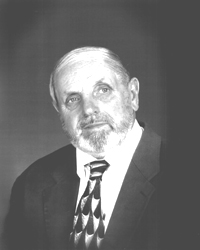
Bill Fraley
Bill Fraley, Lexington, Kentucky – Sponsor
In Kentucky, Fraley’s Wildcats made a name for themselves on the softball field thanks to sponsor and manager Bill Fraley. Without the help of a corporate sponsor, Fraley coached and sponsored the women’s team for almost 29 years at the Major and Class A levels. Fraley’s Wildcats dominated after being started in 1972 and won 23 of 26 City championships in Lexington, KY. The Wildcats won seven consecutive Class A championships before Class A was discontinued after 1989. In 1989, the Wildcats started participating in ASA National Championship play and continued through 2000. The Wildcats compiled a record of 1,848 wins and 327 losses for a winning percentage of .85. Fifty-seven of Fraley’s players were named ASA All-Americans at the Major and Class A levels. In 1985, Fraley sponsored three teams and participated in ASA national championship play. His Wildcats finished runner-up in ASA national championships twice 1990, (Women’s Major) and 1994 (Women’s Class A). His Major team finished seventh in 1983 and 1984, 25th in 1986, ninth in 1988 and 13th in 1989. In 1988, Fraley was inducted into the Kentucky ASA Hall of Fame.
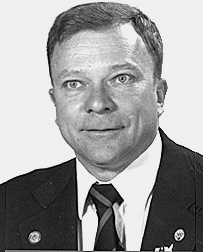
Jerry Hanson
Jerry Hanson, Midland, Michigan – Umpire
Jerry Hanson’s umpiring career spanned 33 years starting in 1956. In 1975, he was named Midland, MI Softball Association UIC and served in that position until 1979. A year later, he was named assistant UIC for the Michigan ASA and five years later the UIC for the Michigan ASA. After five years as the Michigan UIC, Hanson was named to the ASA National umpire staff in 1990 representing the Great Lakes Region. He remained on the staff until November of 2002 when he was named to replace Bill Humphrey as Michigan ASA commissioner and executive director of the Michigan Softball Association after Humphrey joined the ASA national office staff. During his career, Hanson umpired five men’s Major Fast Pitch Championships (1977, 1979, 1982, 1986 and 1989), two ISF World Championships (1980 and 1987) and one Olympic Festival (1978 in Colorado Springs, CO). As a member of the National Umpire staff, he was the UIC at 32 ASA National championships, the 1997 Women’s National Team Tryouts, and the 1999 Men’s National Team Tryouts. He was assistant UIC at the 1996 ISF Men’s World Championships and at the ASA 1991- and 1992-Men’s Fast Pitch National Championships. He was an instructor at 26 National Umpire Schools and hosted four national schools in Michigan. He also served as vice-chair of the Fast Pitch Playing Rules Committee, vice-chair of the Playing Rules Committee and has been a member of the Umpire Committee since 1990. As a member of the National Umpire staff, he served on a committee to annually review the rule changes, mechanics, clinic guides and other publications. In 1979, he was ISF certified and in 1986 became a member of the National Indicator Fraternity. He is a member of three other Halls of Fame besides the National Softball Hall of Fame: Michigan ASA (1991), Indiana ASA (1999) and Midland County (2000). In 1999, Hanson joined the ASA Medals Program. Hanson retired from the Dow Corning Corporation after a 33-year career as a millwright.
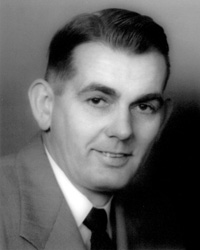
John Sigfrid “Sig” Lawson
John “Sigfrid” “Sig” Lawson Glenpool, Oklahoma – Men’s Fast Pitch – Pitcher
John “Sigfrid” “Sig” Lawson’s career in fast pitch softball covered the period 1933-1957. During that time, the lanky Lawson (6-foot-3) established himself not only as a pitcher but as an excellent hitter who could hit with power. Lawson compiled a 11-1 pitching record in ASA championship play (1934, 1938, 1939, 1941 and 1942) and had an overall record of 20-3 counting National Softball Congress (later the ISC) competition. He was named to the NSC All-Star team in 1954. Lawson compiled a 2-1 record in his first ASA national championship (1934) playing for National Bank of Commerce, OK. The team advanced to the third round before being eliminated. Lawson joined the Deep Rock Oilers of Tulsa, OK in 1938 and led them to the third round of the championship before being eliminated. Lawson showed his power at-bat when he hit a homer that cleared a fence 240 feet away from home plate with the ball landing on the top of a three-story building. Distance between the fence and the building was estimated at 50 feet with the ball traveling an additional 35 feet before dropping on the middle of the building. Deep Rock won the national title in 1942 and Lawson played a major role in the team’s success by winning four games and allowing only two earned runs in 36 innings. After opening with a 6-0-win Deep Rock won its next game, 1-0, in 15 innings with Lawson hurling a four-hitter with 16 strikeouts in beating Phalanx Fraternity of Phoenix, AZ. Deep Rock won its next two games beating St. Joseph, MO (2-0) and the defending Bendix Brakes, 3-2, before losing to Briggs Beautyware of Detroit, MI to fall into the loser’s bracket. Al Linde hurled a no-hitter against Bendix Brakes, which scored its two runs on errors in the third inning. Deep Rock came back with three runs in the fourth inning and Lawson’s double brought across the plate the winning run. Lawson next beat the renowned Fort Wayne, IN Zollner Pistons on a four-hitter to advance Deep Rock to the championship game against Briggs. Linde was scheduled to pitch the championship game but had a change of heart with Lawson taking the mound for the Oilers and responding with a nifty one-hitter and 12 strikeouts for the national title. It was the first national title for the Oilers, who had never advanced beyond the quarterfinals in four previous trips to the national championship. After hurling Deep Rock to the title, Lawson served three and one-half years in the military from 1943-1946 until resuming his softball career in 1947 and continuing to play until 1957. In 1975, at 62, he came out of retirement and pitched the Kerr McGee Oilers to the Tulsa City title. In 2002, Lawson died on February 24 at 88 in a nursing home in Jenks, OK. He was born September 9, 1913. Lawson is the only Oklahoman in the ASA National Softball Hall of Fame.
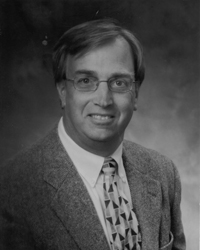
Marty McGuire
Marty McGuire, Midland, Michigan – Meritorious Service
McGuire has been involved in ASA softball for more than 20 years and distinguished himself in different administrative positions ranging from a committee chair to director of an ISF World Championship. From 1983-1987 he served as president of the Midland Redcoats and was president of the Michigan ASA from 1980-1983, helping to form and develop the Michigan ASA Hall of Fame. In 1995, he was elected to the Michigan ASA Hall of Fame. In 1998, he was inducted into the Midland County Sports Hall of Fame. During his career, the articulate McGuire has been the tourney director for 10 ASA national championships and four ASA National Sports Festivals. At the international level, he has been the director for two ISF Men’s World Championships (1984 and 1996). In 1997and 1998 he was a delegate to the ISF Congress and in 2000 was the team leader for the USA Olympic Team in Sydney, Australia. He was named chairman of the USA Women’s National Selection Committee in 1996 and reappointed in 2000.
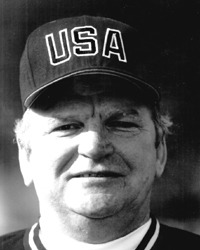
Tom Wagner
Tom Wagner, Federal Way, Washington – Manager
Only three men’s team have won three consecutive Major Fast Pitch national titles, the Fort Wayne, IN Zollner Pistons, Pay ‘n Pak of Seattle, WA and Frontier Casino Players of St. Joe, MO. Tom Wagner, a former third baseman and a two-time ASA All-America, managed the Pay ‘n Pak team. Starting his managing career in 1979, Wagner’s teams won five ASA national titles, including three in a row (1985-1987). Two other national titles were won under the sponsorship of Peterbilt Western in 1980 and 1982. Between 1979-1988, Wagner’s teams won 917 games and lost 191 for a winning percentage of .83. In 10 ASA national championships Wagner’s teams won 47 games and lost 10 for a winning percentage of .810. His teams played in four U.S. Olympic Festivals and won gold medals in three of them: 1981, 1983, and 1986. In 1981, his Peterbilt Western team won a gold medal in World Games One. In 1980, Wagner was a coach for the USA National Team, represented by McArdle Pontiac Cadillac of Midland, MI, which won a gold medal in the ISF World Championship that year in Tacoma, WA. In 1988, Wagner managed the USA National Team to a gold medal in the ISF World Championship in Saskatoon. In 1995, he was the head coach of the USA Pan American team and managed the team to a silver medal in the Pan American Games in Argentina, losing a 2-1 decision in the gold medal game to champion Canada. A year later, he led the USA National Team to a fourth-place finish in the ISF World Championship in Midland, MI. In 1986, he was a nominee for the Seattle Post-Intelligencer Sports Star of the Year. He also is a member of the Seattle ASA Hall of Fame. Wagner was born October 27, 1942 and ranks among the greatest managers in fast pitch history.
NATIONAL SOFTBALL HALL OF FAME CLASS OF 2003
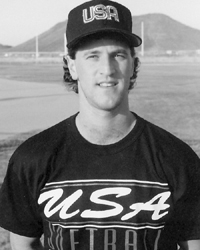
Bill Boyer
Bill Boyer, Auburn, Washington – Men’s Fast Pitch – Player
One of five former Pay ‘n Pak players in the National Softball Hall of Fame, Boyer was as exciting a player as there was during the 1980s and 1980s with his outstanding speed on the base paths and his hustling outfield play. His all-out, full throttle type of play helped teams win seven ASA Major Fast Pitch National Championships between 1983-and 1995. Pay’n Pak of Seattle won in 1985-1987 and Penn Corp of Sioux City, IA won in 1989, 1990, 1992 and 1993. In the process, the 6-foot-1, 175-pound Boyer (nicknamed The Whip) earned ASA All-American honors seven times: four first team, one second team and two third team. In 1989, in addition to being a first-team All-America, Boyer was named tournament MVP. Boyer played in at least 10 ASA national champions and had a .261 batting average. Three times Boyer played in ISF World Championships (1988, 1992 and 1996) and had a .465 batting average with 46 hits in 99 at-bats, driving in 14 runs and scoring 35. He played in his only Pan American Games in 1995 in Parana, Argentina and batted .306 as the USA came up short against Canada in the gold medal game losing 2-1. Seven times Boyer played in the U.S. Olympic Festival and had a .338 batting average with 49 hits in 145 at-bats. His five homers in the 1993 Festival in San Antonio, TX is a Festival record. Besides Pay ‘n Pak and Penn Corp, Boyer also played for National Health Care Discount, Ski Tavern, Colonial Cedar and the Gateway 2000 Soos before retiring after the 1996 season. In 1986, he received the Inspirational Chapman Award from the Seattle Softball Hall of Fame and four years later was inducted. Boyer is a graduate of Auburn, WA High School where he starred in football, basketball, and baseball. He resides in Sumner, WA and was born June 10, 1960 in Renton, WA.
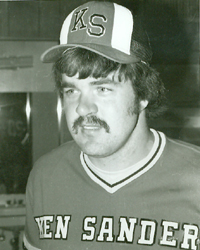
Ronnie Ford
Ronnie Ford, Jacksonville, Florida – Men’s Slow Pitch – Outfield
Between 1974 and 1993, Ronnie Ford established himself as one of the top all-around players of his era. Originally, Ford wanted a career in professional baseball. But, when that did not pan out, he started playing softball in 1974 in Manatee County, FL. That year, Ford smashed 124 homers. He appeared in in his first ASA national championship the following year and batted .545 (6-for-11, one homer and five RBI) for Copher Brothers. He finished the year with a .650 batting average, hitting 147 homers. In 1976 Ford had a spectacular season leading Warren Motors of Jacksonville, FL to the Men’s Major Slow Pitch National title. He batted .733 in the tourney and .707 for the year as the Motormen won the national title for the first time and finished the year 94-2–78 of the wins were consecutive. Ford hit 12 homers and drove in 27 runs in the national and shared MVP honors with teammate Mike Nye. Between 1977-1979 Ford played in the American Professional Slo-Pitch League and was named all-league each year. In 1977, he batted .607, smashed 85 homers and drove in 183 runs. In 1978, Ford was named league MVP and batted .645 with 80 homers and 201 RBI. In 1979, Ford paced the league in homers (43) and RBI (122). Ford returned to amateur softball in 1980 and hit 200 homers in 150 games for Ken Sanders Ford of Phenix City, AL. Between 1982-1985, Ford played for Elite Coatings of Gordon, GA and helped the team win 311 games while losing only 33. Ford earned All-America laurels three times (second team in 1982 (.571 batting average) and 1984 (.520 batting average) and first team in 1983 (.600 batting average). With his daughters growing up, Ford opted to play for a local team, Vernon’s, and played Class A between 1988-1990. He was MVP of the Class A National Tourney in 1990, batting .738 and hitting nine homers to lead Vernon’s to a second consecutive national title. Softball was a demonstration sport in the U.S. Olympic Festival in 1989 and Ford was selected to play for the South team, which won a bronze medal. Between 1991-1992 Ford played Major division softball for Vernon’s before concluding his career in the Super Division in 1993. In 1992, he batted .615 (195-for-312) for Vernon’s, hitting 58 homers as it won the Major division national title. He batted .500 (11-for-22) in the nationals with seven homers and 13 runs batted in. Ford starting out playing shortstop, but later in his career moved to the outfield to take advantage of his outstanding athleticism and strong throwing arm. Time and time again, he would scale outfield fences to make an outstanding catch. He was complete player who would make the spectacular play time and time again. He could run, field, hit and throw. He was named to the “SLOW PITCH NEWS” named Ford to the team of the decade for the 1970s as well as co-player of the decade with Mike Nye. When “SUPREME SOFTBALL,” named its All-Time Team for the 20th century, Ford was named at one of the outfield positions.
Eugene Kwalek, Shelton, Connecticut – Manager
Sikorsky Aircraft of Stratford, CT has dominated the ASA Men’s Major Industrial Slow Pitch Division like no other team since the ASA started having industrials national championships in 1957. Since competing in its first Industrial championship in 1967, Sikorsky has won 16 ASA Major Industrial National titles under four different managers. Eleven of the national championships were won with Eugene Kwalek as the manager from 1982-1998, with seven of them consecutive. Under Kwalek, Sikorsky compiled a won-loss record of 105 wins and 15 losses for a winning percentage of .876 in national championship play and a record of 75-4 (.949 winning percentage) in winning 11 national titles. It is the highest winning percentage for a team in Major Industrial Slow Pitch. Kwalek’s association with the team dates to 1964 when he was asked to join the team. He was a reserve that year, but in 1965 and 1966 he was the team’s regular shortstop. In 1976, Hall of Famer Ken Clark took over as the team’s manager, with Kwalek alternating between shortstop and third base. In 1980, he was assistant coach before becoming manager in 1982. Besides the 11 national titles, Kwalek guided the team to three second places, a fifth, an eighth and a ninth place in the Major Industrial National Championship. From 1979-1997, Kwalek ran the Sikorsky Interdepartmental Softball League and served as secretary and induction dinner chairman for the Connecticut ASA Slow Pitch Hall of Fame. He still assists with the annual induction program.
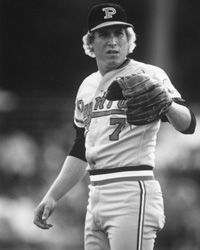
Jimmy Moore
Jimmy Moore, Butte Falls, Oregon – Men’s Fast Pitch – Player
One of the dominant pitchers in the 1980s, Moore became an outstanding pitcher through hard work and determination after joining a team in his hometown of Butte Falls, OR. “At 135 pounds back then, I was too small to play football but played baseball,” said Moore. “After the baseball season, some of the guys got up this softball team so I joined them and played shortstop. That was back in the summer of 1973.” It was in the Medford gym the following winter where Moore started to learn how to pitch. “I was just catching for this top pitcher on our alumni team and he showed me how to throw a drop, rise and change-up,” said Moore. “I worked on it most of the winter and the next summer they let me pitch in the later innings and a few games. Things just developed from there.” Gradually Moore improved and by 1980 he was one of the top pitchers at the Class A Level. That year he earned the MVP Award in the ASA National Championship in Oswego, NY, compiling a 5-2 record with 58 strikeouts and an ERA of 1.09. For the year, Moore was 40-20 with three no-hitters and 10 shutouts. After the Class A Championship, some of the nation’s top Major teams, including the Clearwater, FL Bombers and Peterbilt Western of Seattle, WA heard about Moore’s pitching prowess. He joined Peterbilt Western in 1981 and played Major level fast pitch continuously through 1992. Besides Peterbilt, he also played for Pay ‘N Pak, Northdurft Tool and Sea First Bank. In 1996 he was selected to the USA National Team, which for the first time in ASA history did not medal in an ISF Men’s World Championship, finishing fourth. Between 1981 and 1991, Moore participated in 11 ASA national championships and compiled a 31-8 record with an ERA of 0.77, striking out 380 batters in 263 2/3 innings. He was an ASA All-American six times (four first team, one second team and one third team), and was named the Outstanding Pitcher in the 1982, 1985 and 1986 ASA Men’s Major Fast Pitch Nationals. He was a member of three ASA national championship teams (1982, 1985-1986) and played in six U.S. Olympic Festivals. He is the winningest pitcher in Festival history (20-4) and fanned 186 batters in 163 2/3 innings with an ERA of 1.11. In 1985, he hurled the first perfect game in Festival history. Besides the 1996 ISF World Championship in Midland, he also appeared in the 1992 ISF World Championship in Manila and was 3-0 with 17 strikeouts in 15 innings. Said former Pay ‘n Pak manager Tom Wagner about Moore, “He was the best pitcher I ever saw at spotting the ball. He was a good leader and a great team player.” Moore is one of five former Pay ‘n Pak players elected to the Hall of Fame. He was born February 8, 1955.
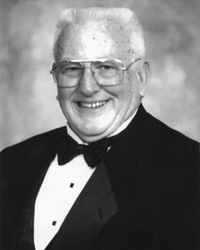
Cliff Warrick
Cliff Warrick, Round Rock, Texas – Commissioner
To say that Cliff Warrick has been involved in ASA softball is an understatement. Since 1967, when he was appointed as a district commissioner in the Texas ASA, he has been heavily involved in the ASA at all levels. Born September 11, 1935 in Wellington, TX, Warrick graduated from Harlandale High School in San Antonio, TX in 1953, then attended Texas A&M University where he earned a B.S. degree and a M.Ed. Degree in 1965. After working for the Gary Job Corps as a coach from 1965-1967, Cliff was hired by the Austin Parks and Recreation Department in 1967 and served as superintendent of athletics and aquatics from 1967-1979. When the new position of deputy executive director opened at the ASA National Office in Oklahoma City, Warrick was hired and remained in that position until 1987, when he was hired to be the executive director of the Texas Amateur Athletic Federation. Under his leadership, the TAAF flourished and today has a rent-free headquarters in Austin, TX and a competent staff. While TAAF executive director, Cliff also served as Metro Austin ASA commissioner (1971-1979 and 1990-2002). He is Texas ASA district 40 commissioner and a Texas at-large player rep. He also is the Texas Region Director. He served as Southwest Regional vice president from 1974-1978. He was the USOC Olympic Festival NGB coordinator for eight U.S. Olympic Festivals and the USA Men’s Softball Team Leader for the 1984 and 1998 Pan American Trials and the Team Leader for the 1995 Pan American Games in Parana, Argentina. He is chair of the USA National Men’s Selection Committee and an ASA Commissioner Emeritus. Retired as TAAF executive director in 2004.
NATIONAL SOFTBALL HALL OF FAME CLASS OF 2004
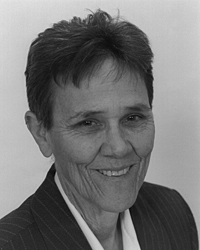
Emily Alexander
Emily Alexander, Phoenix, Arizona – Umpire
The first female umpire elected to the Hall of Fame, Alexander said, “It doesn’t carry a lot of meaning for me. I think myself as an umpire and not a woman umpire. Along the way I encountered unique obstacles because of being a woman but I also have been given unique opportunities for the same reasons and so I figure it evens out. I still had to do the job. “The full impact of this honor has not completely sunk in yet,” continued Alexander. “I don’t know if it will. It seems strange and almost illogical to be rewarded for an obsession. Had I worked toward this end (Hall of Fame election) I would feel satisfaction. Because I did not, and it has come to me anyway, I feel humble and very happy. To be elevated–so to speak–to the level of the people you have always respected and by an organization you have almost revered is a sense of wonderment.” Alexander started umpiring in 1974 and umpired her first ASA national in 1980, (Women’s Major Fast Pitch), then did the Women’s Major National in 1987 and the Men’s Major Fast Pitch in 1994. She also has umpired the Men’s Class A Fast Pitch National twice (1991 and 1993) and the Men’s Class B Fast Pitch National in 1988. Besides the ASA nationals, Alexander has umpired two Olympic Festivals (1990 and 1995), three National Team Tryouts (1979, 1995 and 1997), SuperBall in 1997, North American Women’s Fast Pitch Championship (1980), World Games One (1981), Junior Girls World III (1987) the 1995 Pan American Games in Argentina and the 1996 Olympic Games in Atlanta, GA with the softball competition in Columbus. Since 1981, she has been ISF certified in fast pitch and has been a National Federation of State High Schools Associations certified umpire since 1975. From 1979-1982, she was the NAGWS National Softball Rules Interpreter and served as Phoenix deputy UIC from 1981-1983. In 1994, she was named Phoenix UIC for fast pitch and from 1999-2001 was the Phoenix UIC for both fast pitch and slow pitch. She founded the Cactus Umpire Association in 1978 and has been an assistant instructor or instructor at various ASA umpire schools. She has been recognized and honored including being the Arizona Softball Official of the Year twice (1995 and 2000), ASA Region 13 Award of Excellence (1994), John McGonigle Memorial Award for Umpire Excellence (1993) and the National Indicator Fraternity (1988). In 2007 was named one of 52 most influential in officiating history by Referee Magazine.
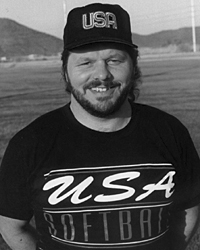
Jeff Borror
Jeff Borror, Shoreline, Washington – Men’s Fast Pitch – Third Base
Fast pitch softball teams must be strong defensively up the middle and at the corners (first and third base). The Pay ‘n Pak and Peterbilt Western major fast pitch teams of the 1970s-1980s didn’t have to worry about the “hot corner” because Jeff Borror of Shoreline, WA was there. Joining the team in 1976, Borror played in 12 ASA national championships and was a member of five national championship teams (1980 and 1982, 1985-1987). In addition to ASA national championships, Borror also played in five U.S. Olympic Festivals, and was a member of the 1987 USA Pan American Team and the 1988 ISF World Championship Team. Jeff’s first national championship in 1980 was a memorable one because he drove in the tying and winning runs in the 14th inning of the national championship game with a double for Peterbilt Western in beating Cedar Rapids, IA, 2-1. Borror batted .318 in the tournament yet was not named an All-American. He finished the season with a .258 average after batting .285 a year earlier including a .133 (2-for-15) average in the national championship. Peterbilt changed sponsors and in 1982 it won the ASA national title under the Pay ‘n Pak banner. Pay ‘n Pak also played in the Major Fast Pitch All-Stars and swept five games, with Borror batting .200 (two-for-10). Borror played in his second Major Fast Pitch All-Star Series in 1987 and batted .222 (2-for-9) in four games for Pay ‘n Pak. Three years later (1985), Pay ‘n Pak won the national title for a second time with Borror batting .500 (six-for-12) and earning All-America laurels. Pay ‘n Pak repeated in 1986 and 1987 as national champions and Borror did likewise on the All-American team. In the 1986 national championship Borror batted .357 (5-for-14), scoring one run and driving in a pair. Pay ‘n Pak’s third national title in a row tied Fort Wayne’s record of three consecutive national titles and Borror batted .208 in the national championship, including smashing a grand slam to beat Guanella Brothers of Santa Rosa, Calif., to keep Pay ‘n Pak alive in the tourney. Pay ‘n Pak lost its first game of the tourney, then won 11 in a row to equal Fort Wayne’s record. Coming through in the clutch was nothing new for Borror. Tom Wagner, former Peterbilt and Pay ‘n Pak manager, said,”Jeff was a tremendous clutch hitter for us. He won a lot of games for us.” Between 1978 and 1987, Borror played in five U.S. Olympic Festivals and was a member of gold medal-winning teams in 1981, 1983 and 1986. He batted .316 in the 1981 Festival, .167 in 1983 and .125 in 1986. In four of the five Festivals Borror had a .167 batting average (10-for-60). With softball on the Pan American program since 1979, Borror was selected to the 1987 USA Pan American Team in Indianapolis, IN and batted .182 (4-for-22) with a 1.000 fielding percentage as the USA lost in the finals to Canada. In 1987 Pay ‘n Pak won the national title and the right to represent the USA in the 1988 ISF World Championship in Saskatoon, Saskatchewan, Canada. Borror played a solid third base for the team (13 assists and two putouts) but managed only two hits in 26 at-bats as the team won the gold medal, the last time the USA has won a gold medal in ISF Men’s World Championship play. Borror played the 1988 season before turning to managing in 1989 and continued to manage men’s fast pitch teams until 1996.
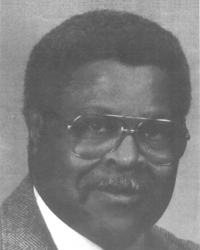
Edward J. Lindsey
Edward J. Lindsey, Buffalo, New York – Commissioner
A former fast pitch player, Lindsey was named Buffalo ASA Commissioner in 1976, replacing David Florko. Lindsey had played fast pitch (outfield and first base) for some of the top Buffalo area teams, including Bobek’s and Big 3’s before being named the commissioner. In 1974, he was named MVP of the Buffalo MUNY Softball League. Since becoming commissioner, Lindsey has served on various ASA committees, including Meetings, Legislative, JO, Foreign Relations and Ethics. Twice he’s served as Mid-Atlantic Regional Director (1985-1986 and 1998-99). Between 1987 and 1997, Buffalo received six membership awards for increases in adult and Junior Olympic teams. In 1977, Lindsey was inducted into the Western New York Softball Hall of Fame. In 1996 was one of the charter members inducted into the Buffalo ASA Hall of Fame. In 1997, Lindsey received a distinguished service award from the Niagara Frontier Girls’ League. Four years earlier, Lindsey had been honored by his employer, Bethlehem Steel, when he received the Black Achiever Award. He retired from Bethlehem in 1984. But the award Lindsey is most proud of is the Buffalo Comeback Courage Award. Lindsey received the award after his battle with cancer, which began in December of 1997, starting in his spine, going to his left arm and gradually to the right side of his head. Today Ed’s cancer is in remission and he is extremely grateful for the support and encouragement he received from the members of the ASA during his battle with cancer. In 1986, Lindsey served as the men’s coordinator at the Olympic Festival in Houston, TX. He volunteers as a mentor for the Western New York and Finger Lakes Chapter of Leukemia and Lymphoma, advising stricken patients. Lindsey was born August 31, 1938 in Geneva, Alabama.
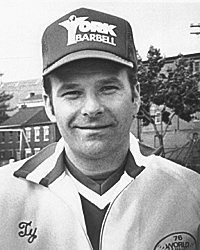
Ty Stofflet
Ty Stofflet, Coplay, Pennsylvania – Men’s Fast Pitch – Pitcher
Growing up in Coplay, Pa., Ty Stofflet’s father, Harold, told him “to be the best at whatever I do. He said there is no excuse for not trying to be the best.” There were no excuses for Stofflet, who was inducted in the Hall of Fame in 2004 after a 40-year career which will be difficult to surpass let alone equal. He put the Leigh Valley on the national softball map, leading his teams to ASA national titles in 1975,’ 77 and ’78. He appeared in 16 Major fast pitch national championships, compiling a 46-20 won-loss record. (second all-time) Ten times he was named an ASA All-American and five times he won or shared the MVP award in the national championship. Stofflet spent a couple hours each day (six days a week) with his Dad tutoring him. “I wanted to see how far I could go in softball when I started out,” said Stofflet. After pitching Sal’s Lunch of Philadelphia, Pa., to the ISC title in 1969, Stofflet joined a team (Rising Sun) in 1971 managed by Hall of Fame Manager Rocky Santilli playing out of Reading, Pa. Rising Sun qualified for the Men’s Major Fast Pitch National Tourney that year and finished fourth. Stofflet was 3-2, earned first-team All-America honors and won the first of his five MVP awards. Between 1971 and 1979 the hard-throwing southpaw appeared in seven ASA national championships and compiled a 28-6 record before a hairline fracture of his pitching wrist sidelined him for the 1980 season. The injury also prevented him from being a member of the USA National Team (McArdle Pontiac-Cadillac). Ty was replaced by Hall of Famer Chuck D’Arcy and the team went on to win the ISF World title in Tacoma, WA. Four years earlier in Lower Hutt, New Zealand Ty appeared in his first ISF World Championship as the USA team shared the title with New Zealand and Canada because heavy rains prevented the playoffs from being played. The USA achieved a 11-2 record with Stofflet winning four of six games. One of his wins was a remarkable 1-0 win over New Zealand and its ace pitcher, Kevin Herlihy, in 20 innings. For 18 2/3 innings Stofflet had a perfect game before a batter was hit by a pitch. Stofflet had two of the five hits off Herlihy including the game’s only RBI with a single in the top of the 20th inning. Stofflet finished with an incredible 32 strikeouts in a game that was one of the greatest ever pitched in the history of softball and certainly the best pitched in ISF World Championship play. Stofflet won the event’s Most Valuable Player and Most Valuable Pitcher awards. In 1978, the National Sports Festival (later changed to Olympic Festival) was started and held in Colorado Springs, CO. Stofflet pitched his East Team to the gold medal and capped the year by pitching Billard Barbell to the ASA national title. Ty finished the season 46-1 with 641 strikeouts in 334 innings and an ERA of 0.67. On August 19th, the Aurora, Ill., Sealmasters snapped his winning streak over two years at 71 consecutive wins. In the two-year span Stofflet compiled a 90-4 won-loss record. In 1979, when softball was added to the Pan American Games, Stofflet was named to the USA Team, which was favored to win the gold medal. After beating Canada in the round-robin, 3-0, Stofflet lost 1-0 in 14 innings in the championship game. Ty was named to the 1983 Pan American Team and was 2-0, yet the USA still came up short again, losing to Canada in the gold medal game. In addition to the 1978 Festival (4-0), Stofflet also played in the 1979, (2-1) 1982 (2-2) and 1986 (1-1) Festivals. Stofflet retired from active play after the 1992 season and is second on the all-time list for most wins in ASA national championship play. He holds the record for most consecutive wins in national championship play (14) and the most consecutive innings (76 2/3) without allowing an earned run. During his career, he hurled more than 500 one-hitters and 650 shutouts among his approximately 1,500 wins. He hurled 172 no-hitters and 58 perfect games.
Ty died on January 23, 2021.
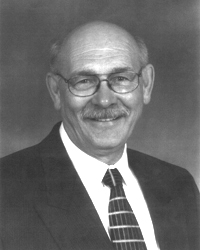
Metro Szeryk
Metro Szeryk, London, Ontario, Canada Men’s Fast Pitch – Pitcher
Metro Szeryk grew up in Windsor, Ontario and began pitching for various local teams at the age of 14. Szeryk gave a hint of what fast pitch softball fans could expect in the ensuing years when, in 1959, he pitched Sudbury’s Internationals to the Senior B Northern Ontario, Canada Championship. Szeryk posted a regular season record of 21-1 and won six of seven games in the playoffs, with four of the wins no-hitters. Szeryk eventually migrated to play in the United States and established himself as one of the top hurlers in the 1960s and 1970s playing for the renowned Raybestos Cardinals of Stratford, CT, Local 57 of Providence, RI, the Cajun Kings of Shreveport, LA, the Poughkeepsie Brewers of Poughkeepsie, NY, and the Mid-Hudson Merchants before returning to his native Canada to play until retiring in 1984. Szeryk won more than 400 games during his highlight-filled career, including almost 200 games with the Raybestos Cardinals. In an eight-year span (1965-1972) with the Cardinals, Szeryk won 198 games and lost only 31 for a winning percentage of .86 percent. In 1,634 2/3 innings, he fanned 2,732 batters and walked only 281, allowing 651 hits and 188 runs. His won-loss records with the Cardinals were: 1965 (33-6); 1966 (36-8); 1967 (22-3); 1968 (6-0); 1969 (23-2); 1970 (27-5); 1971 (24-2) and 1972 (27-5). Szeryk appeared in six ASA nationals, including four with the Cardinals, compiling a 14-3 record (.824 winning percentage), striking out 152 batters in 112 innings. He allowed only 79 hits, 25 runs and walked 14 batters. Szeryk joined the Cardinals after compiling a 26-6 record in 1964 for Local 57 of Providence, RI including a 4-1 mark in the national championship. That year Metro won 11 of 15 games playing in the Atlantic Seaboard League, one of the nation’s top men’s traveling leagues. With his 4-1 record, Szeryk earned second-team All-America laurels. After joining the Cardinals, Szeryk earned his second All-America selection in 1970 as the Cardinals won the national title. Szeryk was 3-0 in the national championship and 27-5 for the year. He also participated in the Men’s Major Fast Pitch All-Star Series that year and compiled a 1-1 record. In 1971, the Cardinals finished runner-up in the national tourney with Szeryk 2-1 in the national tourney. In 1972, Szeryk had one of his best seasons, winning four games in the national tourney and earning the tourney MVP award in leading the Cardinals to the title. He also was named an All-American for the third time. Between 1970-1973, Szeryk appeared in four Men’s Fast Pitch All-Star Series before leaving the Cardinals after the 1972 season to play for the Cajun Kings of Shreveport. Szeryk had a 3-1 record in the All-Star Series. In 1974 he joined the Poughkeepsie Brewers and played for the Mid-Hudson Merchants before moving back to Canada to play for local teams until retiring for good in 1984. Szeryk, who was born August 1, 1938, now resides in London, Ontario with his wife, Carol. On November 24, 2002 Szeryk was inducted into the Connecticut ASA Fast Pitch Hall of Fame. Szeryk said the greatest thrill of his softball career was winning the three ASA national championships with the Cardinals and noted that this was made possible by the world class teams behind him.
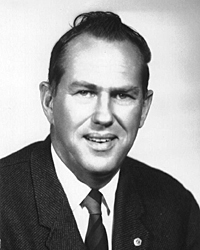
A.C. Williams
A.C. Williams, Prescott, Arizona – Commissioner
Moving to Prescott, AZ in 1957, Williams served as the town’s recreation services director until retiring in 1983. In 1970 he was named Arizona ASA commissioner. During the 1960s and 1970s, he helped put Prescott on the softball map by hosting international teams from New Zealand, Argentina, Japan, Holland, The Netherlands, and Taipei. He also took teams to such places as New Zealand, Australia, the Caribbean, Trinidad, and South Africa. In 1987, Williams was the guest speaker for Softball New Zealand’s 50th Jubilee celebration. In 1982, he received the Distinguished Service Award from the Arizona Parks and Recreation Association. He served as a member of the Arizona State Parks Board until 1984. In 1968, Williams was named Prescott’s “Man of the Year” and received the “Fellow Award” from the Arizona Parks and Recreation Association. In 1977, the American Society for Public Administration gave him a superior service award for establishing one of the most comprehensive recreational programs in the Southwest. As ASA commissioner, Williams has helped various cities in Arizona in bidding on ASA national championships. Prescott itself has hosted five ASA nationals. Born May 16, 1925, Williams has been a member of the ASA Executive Board since 1984. He is a graduate of Northern Arizona University with a B.S. degree in political science and history and a minor in physical education and recreation. Williams calls his election to the Hall of Fame “the biggest honor that I’ve had.” Williams also is a member of the Arizona Softball Foundation State Hall of Fame.
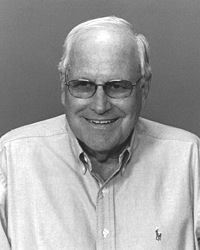
Bill Williams
Bill Williams, Midland, Texas – Meritorious Service
Bill Williams has been instrumental in developing Midland, TX into one of the ASA hotbeds for hosting ASA national championships (more than 20) during the past 30 years. “I’m a big sports fan,” said Williams. “If there’s a ball thrown up in the air, that’s where you’ll find me.” And it will be probably at the Bill Williams Softball Complex, which was named in his honor after being built in 1984. A long-time sponsor of youth and adult softball, Williams helped Midland plan and build nine youth softball fields and 11 adult fields. He also helped the Texas ASA expand its districts throughout the state and since 1989 has served as president of the Texas ASA. Williams has had a Midas touch on Midland and the people of Midland have benefited as well as the Texas ASA. “It’s fun to have fun when you are doing what is fun,” said Williams, who managed and sponsored teams for years before turning to the administrative side of softball in 1981. Bill died on October 26, 2012.
NATIONAL SOFTBALL HALL OF FAME CLASS OF 2005
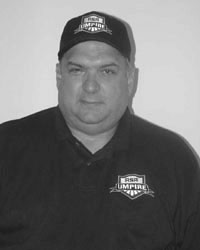
Nick Cinquanto
Nick Cinquanto, Bensalem, Pennsylvania – Umpire
The first Philadelphia umpire elected to the ASA National Softball Hall of Fame, Cinquanto started umpiring while in college (Rider) doing intramural games to earn extra money. “The more I umpired the more I began to enjoy it and wanted to learn more,” said Cinquanto. “I started attending local baseball umpiring clinics and camps.” After graduating from Rider, Cinquanto began umpiring high school baseball and gradually made it to the college level. To keep busy after high school and college baseball, Cinquanto started umpiring in the Atlantic Seaboard League, then one of the nation’s top men’s fast pitch leagues. Cinquanto really enjoyed working the games and one evening was asked to attend an ASA Rules Clinic given by Tom Mason, former ASA umpire-in-chief (1972-1980). After hearing Tom, Cinquanto said he knew that he wanted to become a member of the ASA and be part of the umpiring program. Although his goal was “to be the best (umpire) that I could be,” induction into the National Softball Hall of Fame was not a high priority. “I really never gave entering the Hall (of Fame) much thought. My thoughts toward the end of my umpiring career were focused on doing the best job I could and coming out of a game or tournament he same or better than when I began. I also wanted to give back to the game teaching other young umpires what I had learned through the years from veteran umpires and the ASA National Staff,” said Cinquanto. During his umpiring career, Cinquanto officiated 15 ASA and ISF events, including six Men’s Major Fast Pitch Nationals. In three of the Men’s Majors, he was selected to work the plate in the championship game. In the 1990 U.S. Olympic Festival in Minneapolis, MN, Cinquanto was selected to work first base in the championship game of the men’s division. His ISF assignments included the 1983 Pan American Games tryouts, the Tri-Nation Tournament in Colorado Springs, CO (1983), the 1984 ISF Men’s World Fast Pitch Championship in Midland, MI, the 1987 Pan American Games in Indianapolis, IN, the European Women’s Championship (1995) and the 1996 ISF Men’s World Championship in Midland. MI. In 1982, Cinquanto was ISF certified in fast pitch. Six years later, he was inducted into the Philadelphia Hall of Fame. In 1986, he was selected for the National Indicator Fraternity, and in 1993 received the ASA Award of Excellence for Region Three. Cinquanto became a member of the Medals program (gold level) in 2000 followed by his induction into the Pennsylvania Hall of Fame a year later. In 2003, Cinquanto was selected for the ASA’s Elite Umpire Program. Since 1979, Cinquanto has served as the Philadelphia UIC. In 1999, Cinquanto was named the Atlantic 10 Conference coordinator of softball umpires and the America East Conference coordinator of softball umpires. A 1972 graduate of Rider College, Cinquanto retired in January 2002, after a 32-year career as a therapeutic activities supervisor and state parole supervisor for the Department of Public Welfare and the Pennsylvania Board of Probation and Parole. On June 15, 2004, Cinquanto was recognized by the House of Representatives of the Commonwealth of Pennsylvania for his outstanding professional career as well as his umpiring career. Nick died on January 22, 2012.
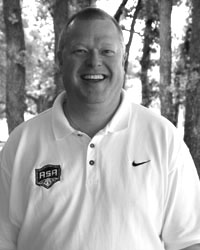
Craig Cress
Craig Cress, Terre Haute, Indiana – Umpire
Craig Cress got into umpiring when he least expected it. Cress had umpired Little League baseball with his Dad, but still enjoyed playing softball. One evening, however, he watched a softball game in Terre Haute, IN, his hometown, and asked to umpire a fast pitch game by Dean Russell when his partner did not show up. “I had played a lot of softball and watched a lot, so I said ‘sure,’ said Cress. Indiana ASA Commissioner Wayne Myers watched Cress work the game and registered him with the Indiana ASA. Myers then told the late Ed Mayhew, the Indiana UIC, about Cress so Mayhew watched him a tourney on a weekend soon thereafter. From there, Cress continued to excel and eventually gave up playing in favor of umpiring where he achieved a high level of competency, progressing up the umpire ladder quickly. By 1983, he had umpired three ASA national championships: Boys’ 12-under fast pitch and 18-under fast pitch and Men’s Class A Fast Pitch. Because the Men’s Class A Fast Pitch was held in Craig’s region (Midwest), he umpired the event because another umpire could not work because of an injury. Blessed with a “natural ability for umpiring,” Cress worked his first of six ASA Men’s Major fast pitch national championships in 1989, plus the Women’s Class B Fast Pitch National in 1987 and the Men’s Class A Fast Pitch again in 1990. During his umpiring career, he officiated 11 ASA national championships. After officiating the Men’s Fast Pitch National in 1994, Craig was selected for ISF championships and did the Junior Girls’ Fast Pitch in 1995 and the Men’s World in 1996 in Midland, MI, followed by an ISF invitational two years later in New Zealand and the Men’s National Sports Festival in Sioux City, IA. In 1992, Cress was named Indiana UIC and remained in that position until 1999. That year he also was named Indiana High School Federation Umpire of the Year and twice (1995 and 1995) worked the Indiana High School Fast Pitch Championship. In 1993, he was ISF certified in fast pitch after being admitted to the National Indicator Fraternity a year earlier. Besides serving as Indiana UIC, Craig was a member of the ASA National Umpire staff from 1998-2002 before leaving to join the ASA national office, replacing Bill Humphrey as membership services director in 2002. During his umpiring career, Cress officiated five Midwest Regionals and was the UIC at nine ASA national championships and taught at 15 ASA National Umpire Schools. He was a take-charge umpire who excelled at game control even under the most intense situations. He is the third umpire from Indiana elected to the National Softball Hall of Fame, proceeding Eddie Mayhew and Bob Quillen.
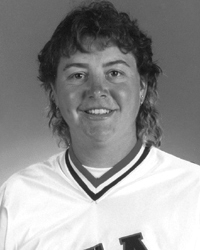
Pat Dufficy
Pat Dufficy, Westerly, Rhode Island – Women’s Fast Pitch – Infield
Pat Dufficy could play just about any position on the softball field and often did for the renowned Raybestos Brakettes of Stratford, CT. The 17th former Brakette elected to the National Softball Hall of Fame, Dufficy played 19 years for the Brakettes and because of this, holds no less than six Brakette career records, including games played (1,112), runs scored (788), hits (1,177), triples (80), home runs (91) and RBI (752). She compiled a 19-year batting average of .347 for the Brakettes. “She was an outstanding team player,” said former Raybestos Head Coach Ralph Raymond. “She came to play, and she played all the positions on the field for us. In one game (1990), we got away ahead and even put her into pitch.” The perfect mix of skill and enjoyment, Dufficy earned ASA All-America honors 11 times at three different positions (outfield, third base and shortstop). She was a first-team selection in 1983, 1986, 1988, 1993, and 1994, a second-team choice in 1980, 1989, 1990, 1992 and a third-team All-America in 1985 and 1995. Besides being named an All-American in 1983, Pat was named MVP of the ASA Women’s Major Fast Pitch National Championship. Now living in Tampa, FL, Dufficy was a member of 10 national championship teams and played in 11 U.S. Olympic Festivals, batting .300 or higher four times. In the 1994 Festival, she batted .347, hit a pair of game-winning homers and drove in eight runs in leading her team to a silver medal. A year later, she batted .381 in the Festival. Besides her national championship play, Dufficy twice was a member of the USA Pan American team, 1979 and 1983, and led the USA Team in batting in the latter with a .434 average and 14 RBI. She also played in three ISF World Championships (1978, 1986 and 1994) , achieving an accumulative .205 batting average (16-for-78), with a .300 batting average in the 1994 World Championship her highest batting average.
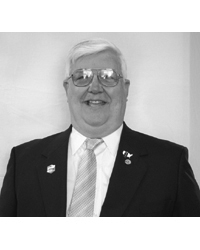
Robert “Bob” P. Savoie
Robert “Bob” P. Savoie, Easton, Maryland – Meritorious Service
Bob Savoie spent more than 20 years in the Air Force as a weatherman before retiring in 1974 and could not have forecast his eventual induction into the National Softball Hall of Fame, November 17, 2005 in Tucson, AZ. In fact, Savoie said, “When I started umpiring in Hawaii (1969), I probably didn’t know where the ASA Hall of Fame was located. After my appointment to the Metro DC UIC position and I became more familiar with the ASA, I would walk through the Hall and marvel at the accomplishments of the members, some I knew and got to know through the years. The fact that I am now one of them boggles my mind. I never in my wildest fantasies believe that this would happen to me. “Election to the Hall of Fame,” continued Savoie, “is the capstone of a satisfying career that could have easily ended without this great honor. The fact that my career and contributions were recognized and rewarded is far beyond my wildest expectations.” Savoie can thank his wife, Arlene, for getting him into umpiring when they lived in Honolulu. She sent him across the street to a neighbor’s house to borrow a screwdriver. “We were hanging the drapes in the living room, so I went to borrow one (screwdriver) from a neighbor,” said Savoie. “It turns out he (the neighbor) is president of the Little League Association. I came back with a black and white striped shirt and a rule book. That was it.” After retiring from the Air Force, Savoie and his family moved to the Washington, D.C. area where he joined the Greater Washington Umpires’ Association and served as the association UIC from 1977-1983. In 1978, Savoie was appointed Washington D.C. UIC and served in that position until March of 1990 when he was named to ASA National Umpire staff, representing Region Three (Central Atlantic). He replaced Henry Pollard after Pollard was named ASA deputy director of umpires in 1989. During his career, Savoie umpired two Central Atlantic Regionals, and four ASA nationals (Men’s A SP, 1976. Men’s Armed Forces SP, 1979; Men’s Major Modified Pitch, 1980 and Men’s Major Fast Pitch, 1981). In 1987, he was selected to umpire the ISF Junior Girls’ World Championship in Oklahoma City. In 1984, Savoie earned his ISF certification in slow pitch and is a member of the Greater Washington Slow Pitch and Fast Pitch Halls of Fame, the only person to achieve this recognition. In 1987, Savoie was inducted as a charter member of the National Indicator Fraternity. Bob is a member of the Indiana (1994), Tidewater, VA (2002) and Pennsylvania (2003) ASA Halls of Fame. Savoie has been an instructor at more than 20 national umpire schools and 13 advanced schools.
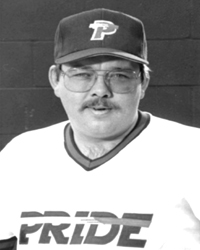
Dave Scott
Dave Scott, Decatur, Illinois – Men’s Fast Pitch – Player
Dave Scott set two goals during his softball career. One was to be a member of a national championship team by the time he was 25, and the other was to be elected to the National Softball Hall of Fame. Scott achieved the first goal in 1981 when, at age 24, he pitched Decatur ADM of Decatur, Il to the ASA Men’s Major Fast Pitch National Championship, with the tournament that year held in Decatur at Borg-Warner Field. In the tournament, Scott compiled a 6-1 record and was named MVP of the championship. He fanned 76 batters in 50.3 innings and allowed only three earned runs. Scott’s second goal was achieved November 17, 2005 when he was formally inducted into the ASA National Softball Hall of Fame in spectacular ceremonies at the J.W. Starr Pass Resort and Spa in Tucson, AZ. Originally from Williamsport, PA, Scott was taught how to pitch as a youngster by is Dad, Woody. After entering the Air Force, Scott compiled a record of 117-12 in 1979 pitching for teams in Houston, San Antonio, Mexico City and Fort Worth, TX. He pitched well enough in the Pan American Trials to earn a spot on the U.S. Pan American team. The Games were held in San Juan, Puerto Rico, the first-time softball was an official sport of the Pan American Games. The USA captured the silver medal, losing a heart-breaking 1-0 14 inning decision to Canada. Four years later, Scott was again named to the Pan American Team and compiled a 3-1 record as the USA again lost to Canada in the gold medal game. By 1979, Scott had been noticed by some of the top men’s fast pitch teams and he decided to cast his fate with Decatur ADM, which launched a sponsorship commitment to winning at the highest level of men’s play and needed an up-and-coming pitcher to anchor its pitching staff. It was a move that neither ADM nor Scot would ever regret in the years that following. Although Scott played for other teams beside Decatur in his career, he is still employed by ADM as the company’s corporate wellness/employee assistance director. He hurled for Decatur ADM and Decatur PRIDE from 1980-1989 and 1996. He is arguably Decatur’s most decorated athletes and he certainly helped put Decatur on the national softball map. After splitting four games in the 1980 ASA national for Decatur, which finished seventh, Scott hurled Decatur to its first ASA Men’s Major Fast Pitch National Championship in 1981. It remains one of the highlights of his career. Others include winning the gold medal game in the 1988 ISF World Championship in Saskatoon, Saskatchewan, Canada, and striking out Terry Muck of Aurora, IL to win a 1979 national tourney game in which Scott drove in three of his team’s five runs off losing hurler Dick Brubaker. But Scott’s outstanding career also had its share of disappointments, including losing the 1983 ASA title game in front of more than 8,000 fans at Borg-Warner Field. Scott had pitched eight games in four days to help Decatur get out of the loser’s bracket, only to lose by a run, 4-3, in the if necessary game to the John Anquillare led Franklin Cardinals. “That one tore my heart out,” said Scott.” It’s something none of us will ever forget.” In 1981, Scott compiled a 54-12 record, and it was one of three times he won 50 or more games in a season. Besides being name MVP in 1981, he was selected an All-American and duplicated that honor in 1983, 1985, 1986, 1986 and 1993. In all, Scott compiled a won-loss record of 40-20 in ASA national championship play for a .667 winning percentage. In addition to the national championships, Scott played in a record 11 U.S. Olympic Festivals and fashioned a record of 18-11—second best in Festival history—and was on five gold medal-winning teams, also a Festival record. In 1982, Scott was named U.S. Olympic Committee Softball Sportsman of the Year and he capped his career by pitching the Decatur Legends 40-over team to ASA national titles in 1991 and 2000. Between 1979 and 1996, Scott won 595 games and lost 151. Scott died on January 2, 2019.
NATIONAL SOFTBALL HALL OF FAME CLASS OF 2006
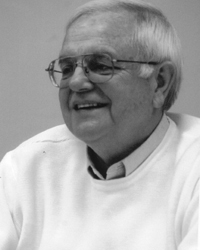
Don Brewer
Don Brewer, Murphysboro, Illinois – Meritorious Service
Involved with the Illinois ASA since 1961, Don Brewer has “touched all the bases” in his softball career. Former commissioner Charles L. McCord appointed him district commissioner for Southern Illinois in 1961 and during the next 40 plus years Don served as regional director, vice president, executive president, at-large player rep and assistant state commissioner before being named Illinois commissioner in 2001. Besides his involvement with the administrative side of softball, Don managed fast pitch and slow pitch teams. His fast pitch teams compiled a record of 1,630 wins and 557 losses for winning percentage of .745 between 1959-1998. As a player, Don compiled a .288 lifetime average between 1959-1984 and batted .300 or higher five times. Twice (1970-71), he was named all-state for the Murdale Martin Oilers. Don’s teams participated in eight 40-and-over nationals, three 45-and-over nationals, two 50-and-over nationals, and one Men’s Major Fast Pitch (1993). In 1997, his team won the first ASA 50-and-over fast pitch national title, which was held in Tulsa, OK. He sponsored teams from 1991-1993 and 1982-83 besides managing and playing. At the state level, his teams won three Illinois Major fast pitch titles, finished runner-up four times and twice in third place. A graduate of Southern Illinois University, Brewer retired two years ago after serving 17 years as regional superintendent of Jackson-Perry County Schools. During his professional education career, Don served as a teacher, coach, principal, assistant principal, dean of students and athletic director. He also was interim parks and recreation director for the city of Carbondale. Brewer’s commitment as an educator and administrator has not been overlooked either. In 1995, he was named Southern Illinois University Alumni of the Year. In 1996, he received the Illinois Association of Park District Quarter Century Award followed by the Southern Illinois University Phi Delta Kappen Outstanding Educator Award and the Southern Illinois University Educational Council of 100 Award of Merit. His softball honors include Illinois ASA Distinguished Service Award (1992), Illinois Meritorious Service Award (1997) and election to the Illinois ASA Hall of Fame (1979). Since being appointed Illinois commissioner in 2001, he and his staff have increased Illinois registrations from three to five thousand as well as holding an Illinois Hall of Fame induction banquet each year.
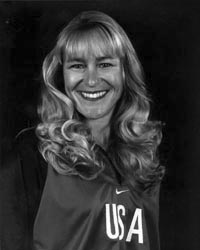
Sheila Cornell Douty
Sheila Cornell Douty, Phelan, California – Women’s Fast Pitch – First Base
For nearly two decades, Sheila (Cornell) Douty was among the best softball players in the world. At 38, Sheila had won every major title the sport has to offer. But it was not until after the 2000 Olympics that she really had a chance to take it all in. “My husband and son and I took a 10-day vacation in Australia immediately after the games,” said Douty. “I think that was probably the only time I had to reflect on it and understand what a huge accomplishment it was, coming back the way we did.” At the start of the Games, Douty and her American teammates seemed assured of a second consecutive gold medal. They won their first two games to extend their international winning streak to 112, but then suffered three straight losses and found themselves on the brink of elimination from medal contention before rallying to win four straight games, including a 2-1 eight inning verdict over Japan in the gold medal game. Douty started every game at first base, hitting one home run with four RBI. It maked just the second time women’s softball had been featured as a medal sort at the Olympics and American television audiences marveled at the skills of Douty and her teammates.” In 1996 it was the first time a lot of women’s sports were looked at (by a national audience),” Douty said. “It was ‘Oh look at that, they’re pretty good.’ This time it was ‘Look at those athletes out there.’’’ Douty started playing softball at age 10 in Southern California. She had just moved to a new neighborhood, so her mother took Sheila and her sister to a playground and told them to sign up for a sport. There was no professional softball then so Douty spent her summer evenings listening to Hall of Fame broadcaster Vin Scully describe Dodger games on the radio and thrilled to the exploits of first baseman Steve Gravey. By the time she reached college (UCLA) Douty was playing a pretty good brand of first base herself. She played for two national championship teams at UCLA. After college she played for various teams in Southern California before joining the Raybestos Brakettes in 1988 and staying with them through 1994. During her time with the Brakettes, she batted 1,105 times in 477 games, collected 462 hits (77 doubles, 48 triples and 44 homers) for an eye-popping .418 batting average. She earned All-America honors 16 times in her career and six of them were with the Brakettes, earning first-team honors in 1988, 1989, 1991, 1992, and 1993 and second-team laurels in 1994. Sheila was a member of seven national championship and three runners-up. The following year, she joined the California Commotion of Woodland Hills, CA and won three consecutive ASA national championships (1996-1998) and a second place (1995). Sheila’s first international experience came in the 1983 Pan American Games where the USA finished in second place–the only time the USA has finished second in the Pan American Games. Sheila also was a member of the 1987, 1991 and 1995 USA Pan American Teams. Starting in 1987, and continuing through the 2000 Olympics, Sheila was a member of USA Teams that won no less than 15 international titles, including three ISF World Championships, three Pan Am gold medals and two gold medals in the Olympics (1996 and 2000). Through it all, Douty and her teammates were able to blend their skills and personalities and keep each other motivated. “We push each other, she said. Whether it was in practice or in games or whatever. That’s what elite athletes do.” It’s a run that has never been equaled in the history of women’s team sports, which is a concept Douty is still trying to grasp.” When I think about the people who have impacted on women’s sports in general over the years, people like Billie Jean King and Chris Evert and Jackie Joyner-Kersey, to think that the USA Softball team could be out into that category; it’s so hard when you are part of it.”
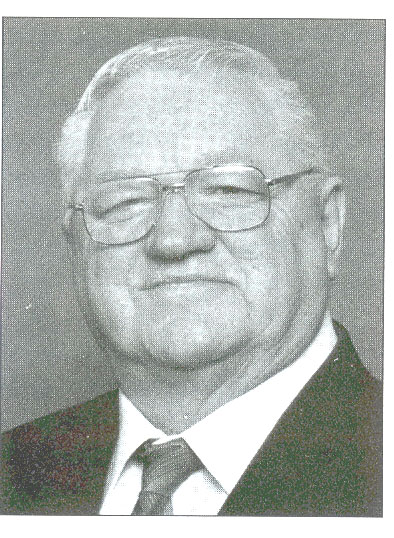
Norm C. Davis
Norm C. Davis, Auburn, Maine – Meritorious Service
The first person from Maine elected to the ASA National Softball Hall of Fame, Davis has been involved in the ASA program since 1964 when he started umpiring. During his umpiring career, he worked three Major nationals from 1981-1987, including the Men’s Major Modified and the Women’s Major Slow Pitch twice. In 1984, Norm was named Maine UIC and served in that position for 15 years. In 1989, he was appointed to the ASA National Umpire staff. As a member of the staff, Norm has been the UIC at more than 60 ASA nationals and has been an instructor at more than 30 National Umpire Schools. Known for his outgoing personality and sense of humor, Davis was selected to the National Indicator Fraternity in 1987. In 1999, Norm achieved elite status in the ASA Medals Program and was also named a deputy state commissioner for Maine. In 1997, Davis was inducted into the Auburn/Lewiston Maine Sports Hall of Fame. Davis was born March 16, 1934.
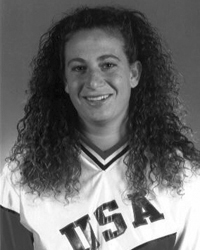
Michele Granger
Michele Granger, Valencia, California – Women’s Fast Pitch – Pitcher
Granger started her career at age 10 thanks to her Dad, Michael, who taught her a delivery that made use of her entire body, not just her arm. The instruction paid off and in the ensuing years Michele established herself as an outstanding pitcher. She was not only an outstanding pitcher, winning All-America honors six times, but she was an outstanding person who combined academics with athletics. Born January 15, 1957, Michele was senior class president and a student body vice-president vice president while in high school at Valencia High School, Valencia where she maintained a 3.5 grade point average. She was one of the most highly recruited high school athletes in the U.S.A her senior year and ultimately decided to attend the University of California at Berkeley. While at California, set the NCAA record for career strikeouts with 1,640 (a mark that has been surpassed) and finished with a career mark of 119-52. A four-time All-American, she holds school records for most victories (119), games pitched (183), complete games (155), innings pitched (1,202 2/3), strikeouts, no-hitters (25) and shutouts (94). After starring in the ASA youth program, Granger made her international debut in 1986 at age 16, leading the USA National Team to the ISF World Championship and a gold medal. She helped the USA win the World title in 1994 as well as the 1987 ISF Junior Girls’ World Championship in Oklahoma City, the 1991 and 1995 Pan American Games, the 1994 South Pacific Classic and Superball 1995. In 1987, Granger pitched in the Junior Girls’ World, the U.S. Olympic Festival, the Pan American Games, and the ASA Women’s Major Fast Pitch National Championship and is the only athlete to ever pitch in all of these prestigious events. She earned ASA All-America honors six times and her combined record in the Pan American Games, ISF World Championships and Olympic Games is 15-0. She compiled a 13-7 record (.650 winning percentage) in five U.S. Olympic Festivals with an ERA of 0.93. In 1986, 1987 and 1988, she won the Bertha Tickey Award as the outstanding pitcher in the national championship. In the 1988 ASA national championship in Pekin, Il she broke Hall of Famer Bertha Tickey’s record for consecutive strikeouts (11) with 16 straight, then broke her own record the next day with 18 in a row. She played in eight ASA nationals, compiling a record of 16-6 in seven of them. In her first three ASA national championships, she did not allow a run (earned or otherwise) in 68 consecutive innings. In 1996, Granger helped the USA win the first-ever gold medal in the Olympics, pitching the opening game and the gold medal game. After basically retiring after the 1996 Olympics, Granger attempted a comeback to try to make the 2000 Olympic Team. Her attempt was unsuccessful, however, and she retired as an active player after the 2000 season. Married to attorney John Poulos in 1989, the couple has four children. Besides being a mother, Michele has still been active in softball, giving pitching lessons to aspiring pitchers. From 2001-2001, she was the pitching coach at the University of Tennessee. She also served as the volunteer pitching coach at UC Davis and San Jose State.
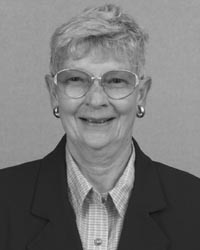
Pat Lillian
Pat Lillian, Medford, Oregon – Commissioner
Pat Lillian will not be the person who speaks the greatest number of times at a meeting. But you can be sure that when she says something, it will be something worthwhile and will be in the best interest of ASA in coming up with a solution to a problem. Pat was born in Lingsborg, KS in 1936 and graduated from Douglas County High School in 1955. She attended Colorado State University and the University of Colorado. In January of 1998, she retired from the Bureau of Land Management after a 37-year career, working as a cartographer (the science or art of making maps) and as a budget analyst. Pat retired in November of 2005 as Alaska ASA commissioner. She began her association with the Alaska ASA in 1963 when she was named a district commissioner by Gordon Berg and served in that position until she was named by Berg as assistant commissioner in 1970. She served as assistant commissioner until 1973 when Berg resigned as commissioner. In May of that year (1973), Pat was named Alaska ASA commissioner. Before beginning her administrative softball career, Pat played fast pitch softball for 23 years for teams in Colorado and Alaska. In Alaska she played for Fairbanks’ 49ers, Tommy’s Elbow Room, Denali Fuel and Gold Nuggets. She started her playing career in 1949 in Denver playing for Garden Farm Dairy. She later played for Elcar Fence. During her career, Pat served on various ASA committees. They included Domestic Events, Equipment Standards ,Fast Pitch Development, vice chair of Finance, vice chair and chair of Foreign Relations, Hall of Fame Selection, Jr. Olympic vice chair, Jr. Olympic Awards vice chair, vice chair, chair and co-chair of Legislative; Long Range Planning, Player Representative, Trophies and Awards, Umpire and USOC Oversight. She served as Northwest Region vice president from 1986-1987 and 1990-1997. In 2004, she served as at-large female representative on the ASA Board of Directors. In addition to serving on ASA Committees, she was appointed by ASA presidents to serve in different capacities including ASA delegate to the USOC Committee (1978), Pan Am Selection Committee vice chair and chair (1983 and 1991), administrative manager for the 1983 Women’s Pan American Team, chief of delegation, 1990 Women’s World Championship in Normal, IL, Code Revision Committee (1992), Women’s National Team Selection Committee (1993-1996), team leader, 2002 Pan American Qualifier, Hermasillo, Mexico, women’s fast pitch coordinator at eight USOC Olympic Festivals, served as ASA rep at the Men’s and Women’s Major Fast Pitch National Championships and eight times a member of the ASA National Tournament All-American Selection Committee. She also has been involved at the international level. In 2002 she was appointed to the ISF Executive Council. She is the chair of the ISF Athletes Commission and a member of the ISF Legislative Commission. In 1994, she attended the Women’s World Fast Pitch Championship in Newfoundland and the South Pacific Classic in Sydney, Australia as chairman of the National Team Selection Committee. In 2000, she was chief of the delegation in the Canada Cup. As guest of the ISF, she attended the Women’s World Championship Saskatoon, Saskatchewan and was named to the ISF Executive Council at this event. In 1996, she attended the Olympic Games in Columbus, GA as a member of the National Team Selection Committee. She also attended the 2000 Olympic Games in Sydney and the 2004 Games in Athens, Greece. In Athens, she served as the ISF Executive Council liaison for scorekeeping. Her dedication and commitment to excellence has been recognized by various organizations. She has been elected to the Northwest Region Hall of Fame and received the Alaska 49er Sports Award and the Alaska First Lady Volunteer Award. She is a charter member and a member of the Board of Directors of the Girls Clubs of Alaska. She is a life member of the Arctic Winter Games Association and was a gold medalist in basketball (1974) in the Arctic Winter Games.
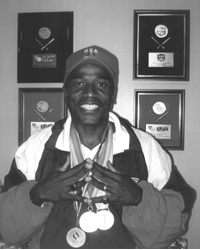
Avon Meacham
Avon Meacham, Upper Marlboro, Maryland – Men’s Fast Pitch – Player
The opposition knew once Avon Meacham got on base he was a threat to steal a base. In fact, Meachem was once clocked in the 40-yard dash in 4.3 seconds. Meacham could also swing the bat and in the 1994 U.S. Olympic Sports Festival, Meacham hit the first pitch of the event for a home run, going over the center field fence at the 250-foot mark. Meacham also singled, scored a pair of runs and stole a base in a losing effort. He dazzled the crowd with his speed and power, scoring from first in the seventh inning on a triple by Mike Larabee. Meacham’s 4.3 clocking came in 1983 when at age 27, he got a tryout with the National Football League’s Seattle Seahawks. But, after checking Avon’s age, the Seahawks felt they did not need a 27-year-old free agent. Meacham was one of four walk-ons offered a contract. Although Avon did not make it in the NFL, he resumed his major softball career and four years later made the USA Pan American Team, which won a silver medal in Indianapolis, Ind. Avon batted .238 in the 1987 Games as the USA finished runner-up to Canada. In 1990, he was selected to play for the USA in the Labatt’s Challenge Cup in Saskatoon, Canada and led all hitters with a .536 average. In 1991, Meacham made his second Pan American team and batted .355 (11-for-31) as the USA again finished runner-up to Canada. Four years later, he made his third and final Pan American team and batted .276 as the USA again finished behind Canada. In three Pan American Games, Avon batted .296 (24-for-81). Besides playing in three Pan American Games and the U.S. Olympic Festival, Avon was a member of two ASA national championship teams, 1994 and 1995, with Decatur PRIDE of Decatur, Ill. In 1994, Avon batted .407 and in 1995 he batted .353, marking the third consecutive year he was named an All-American. He also was named an All-American in 1993. In 1994, he also was named the most valuable player in the national championship. In four years with Decatur, Avon batted .299, .380, .353 and .258. Meacham, who started playing fast pitch in 1980, participated in six ASA national championships and batted .306 (30-for-98). In addition to playing for Decatur PRIDE, Meacham also played for the Twangers, Washington, D.C., Metros, Spokane, Wash., Monarchs, Washington, D.C., Radiators, Annapolis, Md., Sunners, Reading, Pa., and the Clearwater, Fla., Bombers. Since 1998, Avon has been a member of the ASA Board of Directors and from 1996-1998 was the assistant coach at Columbia Union College, in Tacoma Park, Md. He also served on the USA Men’s National Team Selection Committee and continues to play ASA softball in the 40-and-over division of play. He graduated in 1980 from the University of Maryland, Eastern Shore, and in May of 2001 earned a Master’s degree in business administration from Bowie State University. He has 28 years of Federal service as a budget and program officer for the Department of Transportation. He also is a member of the USOC Athletic Advisory Committee and is the head coach and treasurer for the Track Express and Youth Track Club.
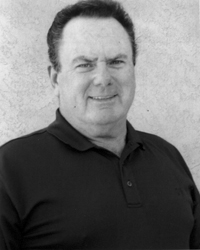
Ralph B. Miller
Ralph B. Miller, Emeryville, California – Umpire
The first umpire from California selected to the National Softball Hall of Fame, Miller had a reputation as a no-nonsense umpire who applied the rules to all participants equally. Ralph wanted to bring a sense of fairness and control to each game that he umpired. Miller was particularly proficient at controlling difficult situations while maintaining his approachability. His umpiring and leadership skills were second to none. The 33rd umpire overall selected to the Hall of Fame; Miller umpired from 1978 to 2002. During that time, he worked some of the top events in softball, including five ASA Men’s Major Fast Pitch National Championships, two Class A championships, one Class B and two ISF events, including the Men’s World Championship in Midland, MI in 1996 and the Women’s Asian Zone Qualifier in Manila in 1997. Although Miller worked more than his share of national championships and quality softball events, he said that his greatest accomplishment was “the umpires I mentored in various clinics, the Oakland Metro Clinics and the Hayward Umpire Association Plate School.” After starting his career in 1978, Ralph served as president of the Mission Valley Umpires’ Association from 1980-84, president of the Hayward Umpires’ Association from 1987-89 and was deputy UIC for the Oakland ASA from 1998-2001. Miller attended two schools, the National School in Stockton, CA in 1985 after a year earlier attending the Region 14 School. Although retired from umpiring, Miller said while he gained a sense of fulfillment as an umpire, there was nothing more fulfilling than the many friends he made while umpiring. “I only regret that I didn’t start umpiring sooner,” said Miller. “I would have loved to have umpired with some the greats of the game, both locally and at a national level.” Miller was born July 11, 1945 and resides in Fremont, CA.
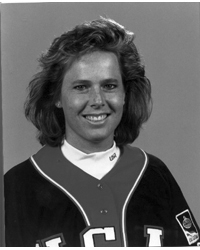
Dot Richardson
Dot Richardson, Orlando, Florida – Women’s Fast Pitch – Shortstop
At 13 Dr. Dot Richardson played in first ASA Women’s Major Fast Pitch National Championship, making her the youngster player in ASA history to play in a Women’s Major Fast Pitch National Championship. She started her career in 1972 playing for the Union Pack Jets in Orlando, FL. Before Richardson retired as an active player following the 2000 Olympics, she set a standard of excellence that will be difficult to equal, let alone surpass. Between 1972 and 2000, Richardson earned All-America honors 15 times, played on 10 championship teams, won the Erv Lind Award (top defensive player in Women’s Major Fast Pitch National Championship) seven times, won two Olympic gold medals, was a member of five Pan American teams and four ISF World Championship teams. After beginning her career with the Orlando, FL Rebels, Dottie joined the Raybestos Brakettes of Stratford, CN in 1984 and remained with them through the 1994 season before joining the California Commotion of Woodland Hills, CA for the remainder of her career. While she continued to excel at the Major level, Dottie continued to pursue her career in medicine and obtained her medical degree from the University of Louisville in May of 1993. Earlier, she obtained a master’s from Adelphi University, Garden City, Long Island and a B.S. degree from UCLA in June of 1984. She did her postdoctoral residence at the University of Southern California/Los Angeles County Medical Center from July of 1993 to June of 1999. From July of 1999 to May of 2000, she did an orthopedic sports medicine fellowship at the Kerlan-Jobe Orthopedic Clinic in Los Angeles, CA. Since October of 2001, Dr. Richardson has been the director/medical director at the South Lake Hospital/National Training Center in Clermont, FL. She has received numerous national honors including the 1998 Sports Legends Award, the 1997 Babe Zaharias Award (Female Athlete of the Year), the 1996 Amateur Athletic Foundation Athlete of the Year, inducted into the UCLA Hall of Fame in 1996, Nuprin Comeback of the Year Award in 1990, named MVP in the Women’s Major Fast Pitch National Championship four times, four-time Sullivan Award nominee and inducted into the Florida State Hall of Fame in 1999. Her college honors include NCAA Player of the Decade (1980s), three-time NCAA All-American, two-time AIAW All-American, three-time ULCA MVP and 1983 All University Award at UCLA, which was shared with Jackie Joyner Kersey.
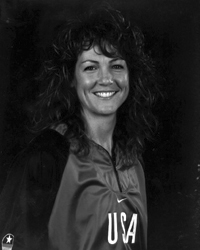
Michele Smith
Michele Smith, Califon, New Jersey – Women’s Fast Pitch – Pitcher
Although she did not start pitching until her sophomore year in high school (Voorhees, N.J.), Michele Smith more than made up for her late start by becoming one of the premier double-threat players in the United States and the world. After going 46-6 in high school and being named all-state three years in a row, Smith continued to develop as a pitcher and hitter while in college at Oklahoma State University. She compiled a record 82-20 in college and batted .269, .211, .393 and .379 during her four-year career. She graduated in 1990 with a degree in health wellness and pre-med at had considered a career in medicine. After being named Academic All-Big Eight in 1989 and MVP of the Big Eight Tournament, Smith played for a variety of ASA teams, including the Linden, N.J. Majors, Budweiser Bells, the SSK California Invasion and the Redding, CA Rebels. It was with the Rebels, however, that she enjoyed tremendous personal success while making the Rebels one of the consistent top finishing teams in the 1990s. Smith earned All-America honors ten times (1989, 1990, 1991, 1992, 1993, 1994, 1995, 1996, 1997 and 1998) and was the winner of the Bertha Tickey Award as the outstanding pitcher at the Women’s Major Fast Pitch National Championship in 1990, 1993, 1994 and 1995. In 1990 and 1994 she was named ASA Sports Woman of the Year. She was a member of various USA international teams, including two Olympic teams (1996 and 2000), two Pan American Teams, and three ISF World Championship teams. The success Smith enjoyed on the softball field was not however, achieved without a lot of hard work, determination, and rehabilitation, especially after she was injured in a bizarre truck accident returning from an oral surgeon.in 1986. As she was sitting in the passenger seat of the truck, she took off her seat belt and the strap caught the door handle. The door flew open. Smith fell out of the truck, which was traveling between 40 and 45 miles per hour. Smith tumbled off the road and crashed into a pole. The accident detached the triceps from the bone in her left arm and chopped off the tip of her elbow. The accident was a wake-up call for Smith who lived for softball her freshman year, knowing that in three years she would be out working and “I wouldn’t be making half a million dollars to throw the ball around the diamond.” The accident pointed out to Smith that no matter what happens it takes “a lot of practice and a lot of perseverance. You have got to keep striving forward. You cannot expect things to happen overnight. It takes a lot of work.” After going 12-6 her freshman year at OSU, she missed the fall semester her sophomore year while undergoing rehabilitation. In 2002, Michele announced she was retiring from the USA National Team program after she played in the ISF World Championship, batting .500 (5-for-10, one HR, 4 RBI) and winning her only game on the mound. She, however, is still playing softball overseas in the Japan Pro League, which she has been doing since 1994. Besides still playing, she has served as a spokesperson for Worth Sports Company and does softball color commentary for ESPN.
NATIONAL SOFTBALL HALL OF FAME CLASS OF 2007
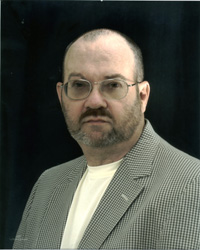
Hank Bassett
Hank Bassett, Monticello, Kentucky – Manager – Manager
In 1971, Hank Bassett started a managing career that would achieve national recognition for his teams and ultimately lead to his induction into the ASA National Hall of Fame in 2007. As the third slow pitch manager from Kentucky to earn enshrinement, Bassett’s teams were an embodiment of himself. They played with class and intensity while displaying sportsmanship, enthusiasm, and a genuine love for the game of slow pitch. Although Hank’s teams never had the benefit of a large sponsorship budget, they more than made up for that with a team comprised mostly of home-grown talent. This approach paid off where it counts most—in the won and lost column. When Bassett concluded his managing career in 1991, he had a winning percentage of 73.6 percent. His teams won 1,060 games and lost only 381. His Starpath team put Kentucky slow pitch softball on the national map winning 434 games and losing 141 for a winning percentage of 75.5. Hank’s teams competed in five ASA Major Nationals and finished first, second, fourth, fifth and 13th, winning 26 games and losing eight. When ASA started the Super division in 1981, Hank’s teams competed in four of them and won the national title in1988, finished second in 1989 and third in 1990 and 1991. In 1989, he managed the West team to a gold medal in the U.S. Olympic Festival in Oklahoma City. But Hank has been more than just a manager in slow pitch. He has embraced the sport in many ways, including serving as a district, regional and deputy state commissioner for the state of Kentucky. He served as a player rep for Kentucky and has been the driving force behind the Kentucky ASA Hall of Fame.
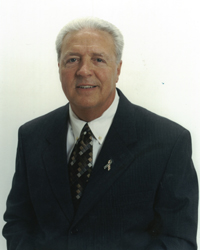
Dave Epperson
Dave Epperson, Topeka, Kansas – Umpire
Dave Epperson started his ASA umpiring career in 1973. Eleven years later, Dave was named to the ASA National Umpire staff representing the Mid-America region. Dave proved to be an outstanding member of the staff. Over the years, Dave honed his skills as an instructor. His down-to-earth, common sense approach as a clinician was popular and brought numerous requests from people for Dave to return as an instructor at their schools and clinics. Besides giving clinics and instructing, Dave served as the UIC at 70 ASA national championships and one U.S. Olympic Festival. He conducted National Umpire Schools and clinics in 45 states and was an instructor at 49 National Umpire Schools and five Advanced Fast Pitch camps. Earlier in his career, Dave umpired various softball championships ranging from the Women’s Major Fast Pitch in 1981 to the Pan American Games tryouts. Dave was ISF certified in fast pitch in 1984 and in 1986 became a member of the National Indicator Fraternity. In 2000, he was elected to the Kansas Softball Hall of Fame. Dave is the fourth person from Kansas elected to the ASA National Softball Hall of Fame and follows in the footsteps of Kansas umpire Harold Adams, who was Dave’s umpiring idol.
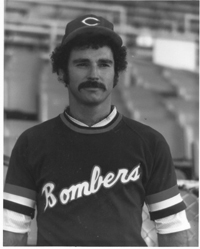
David Grimes
David Grimes, Lakeland, Florida – Men’s Fast Pitch – Player
An ASA All-America five times, David Grimes (5-10, 175-pounds) was the kind of player a manager liked having on a team because David could play just about any position in softball. After lettering in college baseball at Florida State University (1970-71), and receiving a degree in criminology and corrections, two years later (1973), Grimes joined the famed Clearwater, Fla. Bombers. The timing could not have been better for Grimes as the Bombers won their 10th and final ASA national championship. Grimes was named a second-team All-America utility player, batting .263. He finished the year with a .318 average, hitting 10 homers. After gaining the championship round in 1973, the Bombers advanced to the championship game in 1978, but lost in the finals to Reading, Pa., and Larry Bergh. Grimes, however, was selected a second-team All-American outfielder. Dave played in the next two nationals, 1974-75, and batted .200 and .300. In 1974, he batted .343 for the Bombers and was the third leading hitter on the team. He was the team leader in homers (24) and RBI (81), which was a team record. He became only the fourth Bomber ever to get 100 or more hits in a season. Grimes had 102 hits in 297 at-bats. In 1975, Grimes led the Bombers in batting with a .330 average and was second in runs (63), doubles (20), homers (20) and RBI (63). In 1977, he batted .316, second best on the team, hitting 10 homers. He led the team in game-winning hits (15), RBI (62), runs (63), hits (73) and doubles (19). With softball accepted as a Pan American sport for 1979, Grimes was one of the 17 players selected to the team and was named captain of the team by Manager Cliff Smith. The Games were held in Puerto Rico and the USA lost to Canada 1-0 in 14 innings. Grimes batted .391 in the Pan American Trials and exhibition games. He batted .412 in the Games (7-for-17), scoring the tying run against the Virgin Islands, and having the game-winning RBI and hitting a two-run homer against Puerto Rico. Earlier in the year, Clearwater played in the U.S. Olympic Festival in Colorado Springs, Colo., and won a silver medal. Grimes batted .217 and hit a HR against Ty Stofflet in a 3-2 win. A versatile player, Grimes played second base in 1981 and batted .278 in the national championship to earn another second-team All-America honor. Grimes’ performance earned him a spot on the Fast Pitch All-Stars Team against the national champion, Decatur, Ill. Grimes batted .214 in the All-Star Series and one of his hits was a grand slam homer. It was the third and final All-Star Series Grimes played in during his career. He also was named the Bombers’ MVP that season. In 1987, nearing the end of his career, Grimes led the Bombers with a .394 batting average and hit 14 homers. He connected for three homers in the Southern Regional and was named a Southern Regional All-Star, one of eight times he was selected for that honor. In 1988, Grimes batted .357 and was named to the third-team All-America team. He duplicated that feat the following year before retiring for good after the 1992 Men’s Class A National Championship. After retiring, he was president of the Clearwater Bomber Booster Club for 1990, and co-manager of the team with Hall of Famer Ray Truluck that season. Based on information available, Grimes batted .250 (26-for-104) in seven ASA national championships. He played in 12 nationals overall. Grimes, a third-generation cattle rancher, was born August 8,1949. He owns a 1,300-acre cattle ranch in Lakeland, Fla. He has two daughters, 15 and 17, both fast pitch players, and coached a travel ball softball team for seven years. Grimes finished his career with a .321 batting average including 126 homers and played four different positions: DH, shortstop, second base and center field and left field. Elected November 8th, 2007 to the ASA National Softball Hall of Fame, Grimes said, “I am very, very humbled by this.”
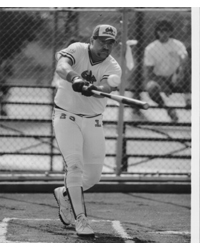
Mike Macenko
Mike Macenko, Brook Park, Ohio – Men’s Slow Pitch – Player
The first former member of the Steele’s Silver Bullets elected to the ASA National Softball Hall of Fame; Mike Macenko had a slow pitch career that will be difficult to duplicate let alone surpass. For 26 years, (starting in 1974) Mike (6-foot-3, more than 260 pounds) slammed more than 6,000 home runs, earning ASA All-America honors 11 times including two MVP Awards (1987 and 1990). He was an ASA All-American in 1977, 1984-1988, 1990, 1991, 1993-94. Born November 21, 1955 in Brook Park, Ohio, Mike started his career playing for the Brook Park Merchants in 1973 and caught the eye of Pesano’s manager, Dave Neale, in 1975, who saw Mike in a home-run derby in Lakewood, Ohio and asked him to play for a team he was managing in Cleveland. Mike played for Neale’s team, Hillcrest Tavern from 1976-1980, Nationwide Advertising in 1981 and the Cleveland Competitors in 1982 before joining Steele’s in 1983 through 1990. Mike was a member of five ASA national championship teams. In 1991 Mike joined Sunbelt-Worth before going back to Steele’s-Sunbelt in 1991 and playing another season. In 1994-1995 Mike played for Ritch’s-Superior before joining the Steele’s Hit Men in 1996 and 1997. Mike retired in 1998 but playing briefly in 1999 for R&D/Nike before deciding to retire for good after the 2000 season. Mike had some outstanding seasons for Steele’s and his back-to-back seasons in 1987 and 1988 may never be duplicated. In 1987, he smashed 844 homers and drove in 1,534 runs to go along with a .744 batting average. He followed that season with 830 homers and 1,667 RBI with a .745 batting average. One of only two players (Don Arndt is the other) to hit more than 6,000 homers in a career and between 1983-1997 hit 4,411 and batted .702 (8,227 hits in 11,720 at-bats). In 1986-1987, he was named MVP of the Smoky Mountain Classic, annually the best men’s invitational slow pitch tournament in America. In 1989, when softball made its debut in the U.S. Olympic Festival (first and only time), Mike batted .568 (21-for-37) and led the festival in homers and total bases (69) in leading the East team. During the 1987-88 seasons, Mike put up some impressive numbers: 12 including nine homers in one game (1987); 16 homers in a doubleheader (1988); 4 homers in one inning (twice in 1987); he had 3 homers in an inning 11 times; five hits in one inning (1987); he had four hits in an inning four times; 17 RBI in one game (twice in 1987); 10 RBI in one inning (on a grand slam and two three-run shots in 1987); 5 home runs in one game out of a minor league baseball park; 12 consecutive homers in 1988; had 11 in a row in 1987; 172 games in a row with at least one hit (1987) and 29 hits in a row, including 14 homers (1987); he had 10 or more consecutive hits a total of 29 times. In 1987, Macenko hit a ball into the media parking lot outside the Las Vegas Softball Complex that was measured at 508 feet. During a 1993 exhibition, he hit 16 of 47 pitches over the fence at the old Cleveland Municipal Stadium, including a 430-foot blast into right-centerfield. Mike is the 31st slow pitch player elected to the ASA National Softball Hall of Fame.
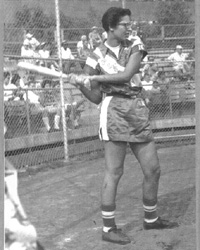
Louise “Chris” Mazzuca
Louise “Chris” Mazzuca, Tacoma, Washington – Women’s Fast Pitch – Player
Although Louise “Chris” Mazzuca lacked confidence and discipline in the beginning of her softball career, in time she gained the needed confidence and discipline to become one of the outstanding pitchers of her era. Mazzuca participated in six ASA national championships and compiled a 17-11 record with an ERA of 0.64. In 240 innings, she fanned 382 batters and earned ASA All-America honors four times, three times with the Portland Erv Lind Florists and once with Buena Park, Calif. Her pitching led her teams to runner-up positions in 1959 and 1960, fourth in 1961, 1962 and 1966 and tied for fifth in 1958. Carol Spanks, a member of the Hall of Fame and one of the greatest players in the history of the sport, said this about Mazzuca. “In my opinion, Mazzuca was an awesome pitcher. I faced her many time, not only when she played for the Oregon teams but more often when she was Whittier. I always felt that from the standpoint of sheer pitching talent she was in the same league as Joan Joyce. She had as much movement and speed on the ball and was tough to hit. Just a different pitching style (windmill). She didn’t play that many years, but while she did, she was a real standout on the mound.” A natural talent who could deliver the ball with overpowering speed, Mazzuca hurled 35 no-hitters and nine perfect games during her career. Three of the no-hitters came in the 1960 ASA Women’s Major Fast Pitch National Championship as he compiled a 4-2 record, striking out 75 batters. She hurled the Erv Lind Florists to the finals before losing 2-0 to the Raybestos Brakettes. Mazzuca hurled five innings and allowed two hits and two runs (one earned) before Hall of Fame Jackie Rice hurled the last inning. It was the second year in a row Mazzuca hurled the Florists to the championship game only to lose to Hall of Famer Bertha Regan Tickey, 1-0. In the 1959 national, Mazzuca also hurled a pair of no-hitters. In 1960, she no-hit Vancouver, Pekin, Il and Orange, CA., with the last two in succession. For the year, Louise finished 36-3 with an ERA of 0.10 and 534 strikeouts. In the 1958 national championship, Louise, then 18, struck out 26 Fresno Rockets in a losing cause against Fresno’s Ginny Busick, who fanned 19. Louise finished the tourney 2-2/ In 1960-1962, Mazzuca plated in three Women’s Major Fast Pitch All-Star Series and compiled a record of 2-0-1. In 1960, Louise beat Hall of Fame Joan Joyce 1-0 on a two-hitter. In 1961, she and Joyce battled to a 0-0 tied after 18 innings with the game called because of darkness. Louise had allowed four hits. In 1962, Louise beat the national champion Whittier Gold Sox, 3-1, on a one-hitter. Born December 23, 1939, Louise began playing softball at age 11 in various leagues in Tacoma, WA. By the time she was 14 she was playing for the Tacoma Shamrocks in the Northwest Major League, which was one of the top women’s leagues at that time. She also played for the Hollywood Boat and Motor, the Forest Grove Meadowlarks, the Erv Lind Florists, the Whittier Gold Sox, Huntington Park and Buena Park. In 2005, she was elected to the Tacoma –Pierce County Sports Hall of Fame. She is the first Tacoma woman elected to the ASA National Softball Hall of Fame. Mazzuca died on March 27, 2018.
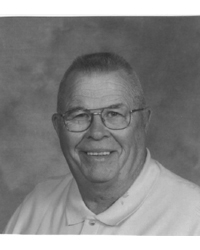
Jack Mowatt
Jack Mowatt, Odenton, Maryland – Meritorious Service
Jack Mowatt has been involved in the ASA since 1968 when he started umpiring and eventually became vice president of the Greater Washington Softball Umpires’ Association. Jack did three ASA nationals as an umpire and later became the assignor for the umpire organization, which is one of the largest umpire groups in the ASA. He was the umpire coordinator for the first ASA Men’s Class A as well as hosting the first ASA 35-under master’s National Championship. He is a life member of the organization and a member of the ASA’s National Indicator Fraternity. In 1983, he was named Washington D.C. commissioner and continues in that position. During his career Jack has been instrumental in improving the overall quality of umpires in the Central Atlantic Region because he was one of the co-founders of the Central Atlantic Region Umpires Clinic, which eventually became one of the most successful clinics in the country. The number of attendees grew to more than 400 and Jack would invite one of the members of the ASA National Umpire staff to serve as head clinician. The breakout sessions that were used at this clinic were later added to the National UIC Clinic, which is held in Oklahoma City every two years. Jack has served on numerous ASA committees including the Umpires Committees and had worked tirelessly to improve the conditions and fees for umpires at national tournaments. He served as chair of the umpire committee for four years and was instrumental in outlining the duties and expected performance of the National Umpire staff. He has received the National Award of Excellence and the Tom Mason Award, which was presented by the Central Atlantic Region. Jack also assisted with the production of the Umpires’ Case Book and provided many hours of proof reading and technical help to the committee. Jack also comes to the national office on a regular basis to help where needed with various national office-run events.
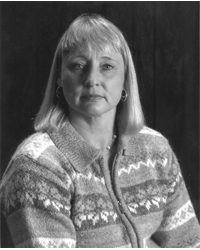
Brenda Smith-Foster
Brenda Smith-Foster, Mechanicsville, Virginia – Women’s Slow Pitch – Second Base
It is rare when a teenager wins the MVP Award at one of the ASA’s Major National Championships. But in 1982, at age 18, Brenda Smith did in leading the Richmond, Virginia Stompers to the national title in the Women’s Major Slow Pitch National Championship. It was her first year with the team. Brenda hit 12 homers and drove in 58 runs as the Stompers compiled a record of 68-9. In addition to being named MVP, Brenda was named the ASA Sportswoman of the Year and was recognized by the United States Olympic Committee. In the years that followed Brenda continued to excel at the Major level, winning ASA All-America honors eight times and being a member of four national championship teams. When the Stompers dropped down to Class A in 1987, she again was an All-American as well as the tourney MVP. Brenda was a total player. She could spray the ball to all fields and with power. Defensively, she had an outstanding arm and was a ballerina on the field, moving back and forth with ease and grace to make difficult plays look easy. A complete player in every sense of the word. In 2001, Brenda was inducted into the Central Virginia Hall of Fame. She is the 10th female elected to the ASA Hall of Fame in slow pitch. She joins Don Clatterbough, also of Mechanicsville, in the Hall of Fame. Foster also is a member of the Henrico High School and Virginia Commonwealth University Athletic Halls of Fame. At VCU, she scored 1,072 points in three seasons—1985-1987. She also had 761 rebounds and 215 steals.
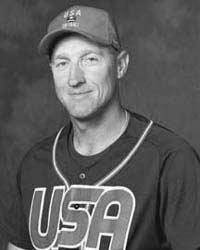
Peter Turner
Peter Turner, Stockton, California – Men’s Fast Pitch – Player
Peter Turner Jr. played almost every position in fast pitch except for shortstop during his two-decade career and was humbled by his election in 2007. “I am flattered that I have been elected to the Hall of Fame. To share this award with some of the greatest names in our game, is by far one of the most humbling experiences in my life,” Turner said.” This honor gives me an opportunity to acknowledge those who have made the sacrifices that have allowed me to continue to play this game; my sponsors, the ASA, my teammates, as well as my family deserve the recognition for their support and sacrifices along the way. I have received far more than I ever expected from this game as softball has enriched my life, both on and off the field.” Turner earned All-America honors five times: 1989, 1990, 1996, 1999 and 2000 playing for some of the nation’s top major fast pitch teams including Guanella Brothers, Nava Brothers, Seafirst Bank and Larry Miller Toyota. He was a member of Guanella’s national championship team in 1991 and was a member of other teams that finished runner-up in 1990, third in 1999, fourth in 1996 and 2000, fifth in 1989 and tied for seventh in 1998. In 13 ASA national championships Turner batted .262 with a personal best of .563 in 1989. Four other times he batted .333 or higher in national championship play. Besides the ASA national championships, he played in five U.S. Olympic Festivals and batted .294 (25-for-85). In 1993, he batted .350 (7-for-20) to help Guanella’s win the gold medal. He twice was a member of the USA Pan American qualifying team (1989 and 1993) and in 1995 he batted .320 (8-for-25) to help the USA Men’s Team win a silver medal in the Pan American Games in Argentina. After retiring from major competition in 2001, Pete turned his attention toward managing and was an assistant coach for the Junior Men’s Team in 2001 before being named the head coach of the Men’s National Team. He led the Men’s National Team to a silver medal in the Pan American Games qualifier in 2002 and to a silver medal in the 2003 Pan American Games. In 2007, he led the USA Men’s National Team to a runner-up position in the ISF World Cup in Prague, Czech Republic. A graduate of Sacramento State, Turner has a master’s degree from Hamilton University. He was an assistant coach at Delta College for 11 years before being named head coach in 2004. That same year he was named head coach at San Jose State University, San Jose, CA. Born October 19, 1956, Turner grew up around fast pitch softball because his father, Peter Turner Sr., was an accomplished player in his own right, and was Pete’s idol. Pete started playing fast pitch at 16 years-old on his Dad’s teams and was a standout football and baseball player in high school.
NATIONAL SOFTBALL HALL OF FAME CLASS OF 2008
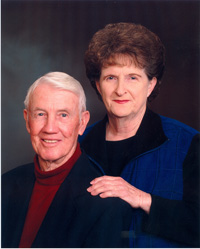
Freddie & Virginia Ezell
Freddie & Virginia Ezell, Midland, Texas – Meritorious Service
Freddie and Virginia Ezell have lived in Midland, Texas for more than 47 years. And during that time, they certainly have made an impact on ASA softball in that community. In 1970, Freddie was named district 26 commissioner and a few years later Virginia was named a deputy for the district. The two register more than 1,000 teams each year. Freddie and Virginia are a team and they certainly know how to take care of the ASA teams when they play in an ASA National Championship in Midland, which ranks among the best ASA cities for hosting ASA nationals. Midland has hosted 28 ASA nationals and Freddie and Virginia are there to take care of the teams. As Virginia said earlier in 2008, ‘’He opens up the park, he does the talking and I do the paperwork.” Freddie, who played softball and umpired, has been an ASA national player rep since 1986 In 1989, Freddie was inducted into the Texas ASA Umpire Hall of Honor. In 2002, Freddie and Virginia were inducted into the Texas ASA Hall of Fame in recognition of their dedication to improving softball in Midland. In 2003, the Midland Girls complex was re-named the Freddie Ezell Softball Complex. And in 2004, the Midland Minor League Baseball organization, The Rock Hounds, presented Freddie and Virginia with the Community Achievement Award. Freddie and Virginia also have received the Scott Douglas Seator Community Achievement Award for their outstanding contributions to Midland United Girls Softball. In the past Freddie has served as the vice chairman of the Junior Olympic Committee and has been the rep for 13 ASA national championships. On November 12, 2008 Freddie and Virginia were inducted into the ASA Hall of Fame during impressive ceremonies at the Sheraton Hotel in downtown Oklahoma City. They are the second husband-wife couple in the Hall of Fame.
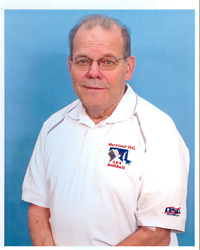
Ron Galemore
Ron Galemore, Gaithersburg, Maryland – Umpire
When the ASA had its Super Slow Pitch division of men’s slow pitch, Ron Galemore often was one of the umpires penciled in to work the championship. Galemore was good at putting out fires, on and off the softball field. A retired fire fighter, Galemore used his calm, level-headed approach in fighting any “heated” discussions between players and managers. And at the Super level it was not uncommon for some players or managers to lose their cool. During his umpiring career, from 1979 to 2003, Galemore worked five Super National Championships and one Major Slow Pitch Championship, establishing himself as one of the premier slow pitch umpires within the ASA. But besides working the national championships, Ron also did the Hooters ASA Championship Series in Oklahoma City twice (2001-2002). In 1999, Ron received the ASA Award of Excellence for the Central Atlantic Region and he also is a member of the National Indicator Fraternity and the ASA Elite Program. Galemore is the 35th umpire elected to the ASA Hall of Fame. He was inducted on November 12, 2008 before a crowd of 510 people at the Sheraton Hotel in downtown Oklahoma City.
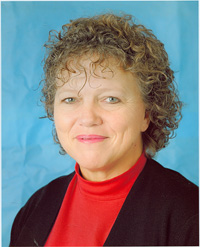
Jenni Harp Oliver
Jenni Harp Oliver, Chattanooga, Tennessee – Women’s Slow Pitch
The fourth person and the second player from Chattanooga elected to the ASA National Softball Hall of Fame, Jenni Harp Oliver starred in women’s major slow pitch for 32 years, earning All-America honors five times. Although she played just about every position in softball, Oliver played either first base or catcher when she played for some of the Nation’s top teams. She was an anchor on three National Championships teams and three National runners-up. She had a .453 batting average with 65 RBI in 13 ASA National Championships. In her first national (1988), she batted. 667 (20-for-30), driving in 14 runs. Oliver played in her last ASA national in 1994 and had two hits in the Championship game as UPI shut out the Armed Forces, 8-0. The championship was played in her hometown of Chattanooga. Now a teacher in the Hamilton County School system, Oliver played the game with class, dignity, and sportsmanship. In 2000, she was inducted into the Greater Chattanooga Sports Hall of Fame and in 2005 into the Velocity Sports Hall of Fame. Oliver was the 11th women’s slow pitch player elected.
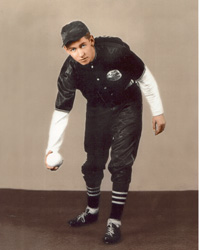
Kermit Lynch
Kermit Lynch, Oklahoma City, Oklahoma – Men’s Fast Pitch
In the 1940s the Hammer Field Raiders of Fresno, Calif. won back-to-back ASA National Fast Pitch Championships in 1943-44. They are the only service team to accomplish this feat. Of course, the Raiders had two outstanding pitchers, Private Al Linde, who already is a member of the Hall of Fame, and Sergeant Kermit Lynch. Lynch was a double-threat. He could beat you from the pitcher’s mound and at-bat. In fact, in the 1943 ASA national championship game in Detroit, Mich., Lynch beat the Sam Lombardo-led Detroit Bombers, 1-0, in the championship game before 5,000 people. Lynch shutout the Bombers on one-hit and drove in the game’s only run with a triple in the third inning, his team’s only hit. And he threw out Lombardo when he attempted to steal home plate in the last inning. Lynch finished the tournament 3-0 and had beaten Detroit earlier in the tourney, 2-0, as the Raiders finished the year 25-3. On the mound, Lynch had a devastating fastball, a sharp-breaking curve and a wicked change-up, and all thrown with pin-point control. He was known throughout softball as the “wonder pitcher.” And after teams played the 6-1, 170-pound Lynch, they wondered if they would get a hit off him let alone beat him during his 13-year career which ended in 1950. He joined teammate Linde in the Hall of Fame on November 12, 2008 in colorful ceremonies in Oklahoma City during the ASA’s 75th diamond-jubilee celebration. Lynch died on October 21, 2017.
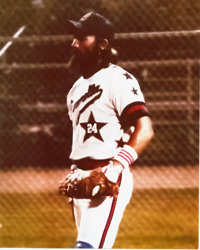
Jim Marsh
Jim Marsh, Yukon, Oklahoma – Men’s Fast Pitch
Jim Marsh did not have an especially long career in fast-pitch, about 15 years, but he certainly made the most of it and especially when he competed in the ASA Men’s Major Fast-Pitch National Championship. Between 19777 and 1981 Jim played in five consecutive ASA national championships and each year was named an ASA All-America. In fact, in his first game in an ASA national championship Jim hit a pair of homers in a 12-1 win over Oklahoma City leading Napa Auto to a fifth-place finish in Midland, Mich. Besides the five All-America selections, Marsh played in the first National Sports Festival in 1978 in Colorado Springs and helped his team win a silver medal. He finished the season with a .327 batting average, hitting 10 home runs and driving in 45 runs. Three years later, in Syracuse, N.Y. Jim batted .333 in the National Sports Festival, which was later changed to the U.S. Olympic Festival. After batting .333 in 1979, Jim was again named All-America in 1980-1981, batting .571 in the latter event. He also played in World Games One in 1981 for Guanella Brothers of Santa Rosa, Calif. In four years with Guanella, Jim posted a .287 batting average and smashed 27 homers. Besides being a threat on offense, Jim was solid defensively and kept runners honest with his outstanding arm. The wear and tear of catching, however, took its toll, forcing Jim to retire from playing in 1990 and eventually have both of his hips replaced. Jim is one of nine former Guanella Brothers elected to the Hall of Fame. He and teammate Mitch Munthe were both enshrined on November 12, 2008 in Oklahoma City.
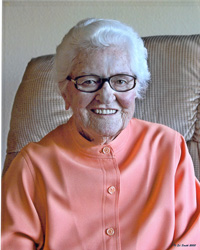
Roberta “Robbie” Mulkey
Roberta “Robbie” Mulkey, Vancouver, Washington – Women’s Fast Pitch
One of the most talented and popular athletes in the 1950s and 1960s, Robbie could play the outfield and first base. She even caught one year because of her outstanding arm. The bigger the game the better Robbie played. She was a crowd-pleaser and did a lot to promote the game. People came out to see her hit the long ball and that she did. In fact, she formerly held the record for most homers in a Women’s Major Fast Pitch National Championship, hitting four in 1949. The record was not broken until 44 years later. Besides batting .333 and hitting four homers in 1949, Robbie was named the MVP of the tournament in leading the Erv Lind Florists to a second-place finish. Robbie was again named an ASA All-America in 1956, batting .277 in helping the Orange, Calif. Lionettes to the national title. Robbie was named second-team All-America in 1957 and a first-team choice in 1958 before retiring as an active player in 1960. Before retiring, however, she was asked by the Erv Lind Florists to accompany them on a tour of the Far East and the Pacific Island for six weeks. In 1996, Mulkey became a member of the Portland Hall of Fame. She was enshrined on November 12, 2008 in impressive ceremonies during the 75th anniversary celebration of the ASA at the Sheraton Hotel in downtown Oklahoma City.
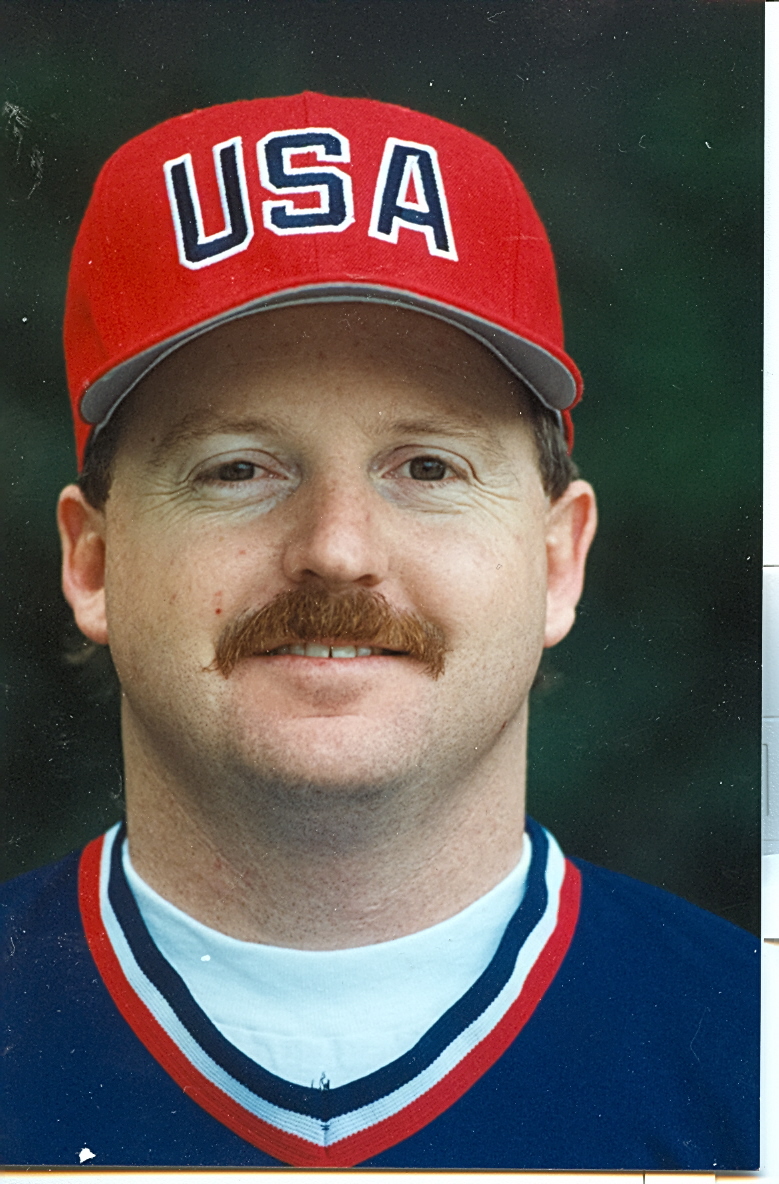
Mitch Munthe
Mitch Munthe, Modesto, California – Men’s Fast Pitch – Outfield
In the1980s and 1990s Men’s Major Fast Pitch had its share of outstanding hitters. Outfielder Mitch Munthe of Modesto, Calif. was among them. Mitch’s 25-year career in men’s fast pitch (1979-2004) had its share of highlights and achievements. Mitch played 17 years at the Men’s major level of fast pitch and earned ASA All-America honors seven times: 1984 (second team); 1987 (first team);1992 (second team); 1993 (second team); 1996, (second team); 1990 (third team) and 1997 (third team). Munthe batted .341 (40-for-117) in six U.S. Olympic Festivals (1983, 1985, 1990, 1991, 1993 and 1994) and won three gold medals (1993-94 and 1985). Munthe was a member of the USA National Team in 1988, (.594), 1989, 1991 and 1993. In 1995, Munthe was a member of the USA National Team that won a silver medal in the Pan American Games in Parana, Argentina with Munthe batting .353, hitting three homers and driving in 11 runs. Twice Munthe was a member of an ASA national championship team, 1984 with the California Kings and 1991 with Guanella Brothers. In all, Mitch played in at least 15 ASA Men’s Major Fast Pitch National Championships and batted .273 in 14 of them (66-for-242) Munthe led the 1994 national championship in batting with a .533 average. He batted .300 or higher in six nationals. He holds ASA national championship records for most RBI in one game (eight) and most RBI in one inning (7), which he accomplished in the 1997 ASA national championship. Mitch played seven years for Guanella and batted .317 with a .551 slugging percentage, hitting 79 doubles, 25 triples and 76 homers. Twice (1987 (.375) and 1988 (.356), Mitch led Guanella Brothers in hitting and was second in 1986 (.335) and third in 1989 (.311). He is the eighth former Guanella’s player elected to the ASA National Softball Hall of Fame. With his career at the Major level at an end Mitch served as an assistant coach for the USA National Team in 2003 and 2004.
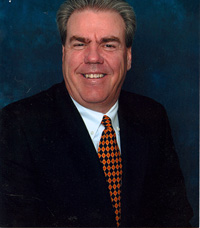
Kevin G. Ryan
Kevin G. Ryan, Ann Arbor, Michigan – Umpire
Originally Ryan started his umpiring career doing slow pitch. He never envisioned that in time he would become one of the premier fast pitch umpires within the ASA during his 25-plus year career. But he did and is the 35th ASA umpire elected to the Hall of Fame. Kevin started to umpire fast pitch in 1983 and in the years that followed umpired seven Men’s Major Fast Pitch Nationals, one Women’s Major Fast Pitch National and one Men’s 40-over Fast Pitch National. Ryan also worked the 1996 Men’s ISF World Championship in Midland, Mich. And was asked to do more championships but could not get the time off from work to do them. What is impressive about his career is that in seven of the nine ASA events he was selected to work the plate in the championship game or the if game, which is a testament to his ability as an umpire. His mechanics and game control were rated outstanding and attest to his ability at the highest level of umpiring. In 1992 Kevin was ISF certified in fast pitch. He also was named to the National Indicator Fraternity that year and in 2002 was named an ASA Elite umpire. He also is a member of the Michigan ASA Hall of Fame.
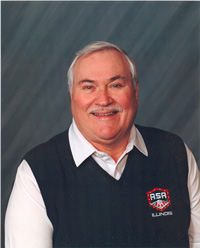
Jerry L. Stewart
Jerry L. Stewart, Mattoon, Illinois – Meritorious Service
Is there anything Jerry Stewart has not done for the Illinois ASA during his more than 30 years of involvement? Probably not, because he’s been a player, manager, umpire, regional director, vice president, associate state commissioner, tournament director and ASA rep. Stewart umpired from 1966 to 1994 including seven ASA National Championships. Two of his umpiring assignments included the 1987 Pan American Softball Trials in Colorado Springs, Colo., and the 1993 U.S. Olympic Festival in San Antonio, Texas. He calls them two of his three greatest thrills in softball. For his umpiring accomplishments, Jerry attained the gold level in the ASA Medals Program and is a member of the National Indicator Fraternity. Stewart also has been the ASA Rep for eight ASA Nationals. Whatever needed to be done Jerry did it for the ASA national program or the Illinois ASA program. Stewart was always ready to go above and beyond in the best interest of ASA softball. His efforts have not gone unnoticed either. In 1999, he was named winner of the Chuck McCord-John Rowe Meritorious Service Award and in 1986 received the Don Plarski Umpire Award. In 1990, Jerry was inducted into the Illinois ASA Hall of Fame. He is the 38th person elected in meritorious service and was enshrined on November 12th, 2008 in Oklahoma City before 510 people during the 28th annual induction ceremonies.
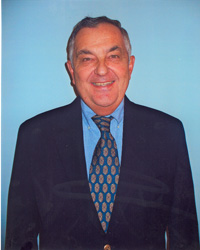
Garland Thompson
Garland Thompson, Wilmore, Kentucky – Commissioner
The 39th commissioner elected to the ASA Hall of Fame, Thompson served as the Kentucky commissioner for 20 years before retiring at the conclusion of the 2007 annual Council Meeting in Louisville, Ky. During his career, Garland helped Kentucky host 11 ASA National, including the two largest, the men’s Class D slow pitch and the Girls’ 18-under Fast Pitch. Garland served as Midwest Regional vice president for five years and was a member of various ASA committees, ranging from Finance to Playing Rules. He was a member of the Board of Directors from 1994-1999 and was a deputy state commissioner from 1975-1987 before becoming commissioner in 1988. For 19 consecutive years his association registered 2,000 or more teams and he was the ASA rep at 15 ASA National Championships. He received seven membership awards during his career.
NATIONAL SOFTBALL HALL OF FAME CLASS OF 2009
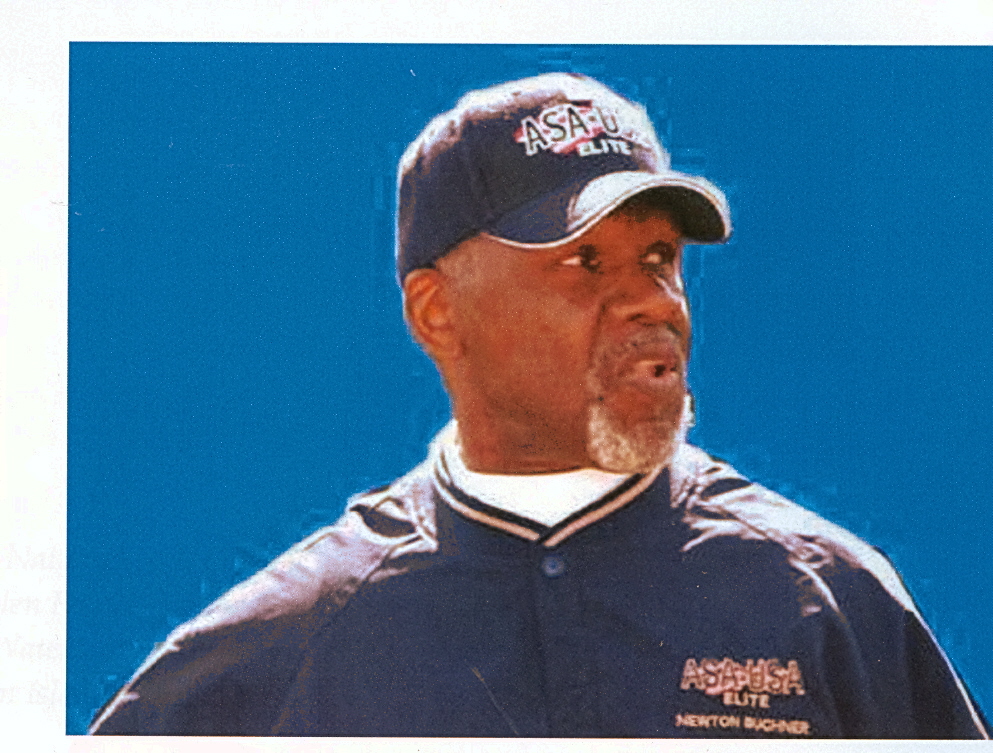
Newton Buckner
Newton Buckner, Brooklyn, New York – Umpire
Newton Buckner umpired from 1981 through 2001 and worked nine ASA National Championships, including eight Men’s Modified Pitch Nationals. In five of the championships, he was selected to work the plate in the championship game. Buckner was named New York City UIC in 1981 and the association was later changed to Southern New York. In 1992, Newton became a member of the National Indicator Fraternity and a year later was ISF certified in modified pitch.
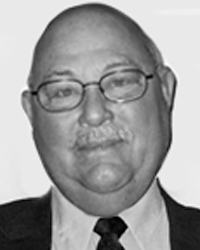
Ben Bunch
Ben Bunch, Enid, Oklahoma – Meritorious Service
Bennie Bunch, the 39th person named in meritorious service, unfortunately passed away on Sept. 16, 2009 but was honored to have been nominated into induction. Bunch was involved with the Oklahoma ASA since 1969 and had been instrumental in the growth and improvements the Association has experienced the last 40 years. A former player, Bunch played or coached in 32 state tournaments and served as the ASA rep at 12 ASA National Championships. He helped his hometown of Enid, Okla., host 11 ASA Nationals.
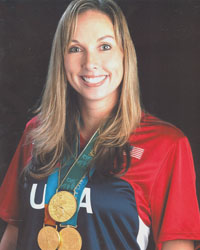
Leah O’Brien-Amico
Leah O’Brien-Amico, Corona, California – Women’s Fast Pitch
Leah O’Brien-Amico earned ASA All-America honors six times during her career and was a member of three Olympic gold-medal winning teams in 1996, 2000 and 2004. She posted a .313 batting average in 15 highly competitive events during her career, ranging from the Pan American Games to the Olympics. O’Brien-Amico was an outstanding clutch player throughout her career and starred playing the outfield or first base.
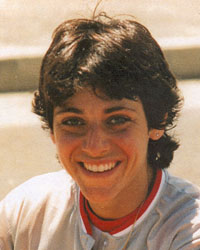
Allyson Rioux
Allyson Rioux, Stamford, Connecticut – Women’s Fast Pitch
Allyson Rioux, who is only the second Hall of Famer elected posthumously, played 10 years for the Raybestos Brakettes before she died on February 9, 1989 of a brain tumor. She was a member of five ASA National Championship teams and four National runners-up. In 1985, she won not only the prestigious Erv Lind Award as the outstanding defensive player in the National Championship, but also the tournament’s MVP award. She is the 20th former Brakette elected to the Hall of Fame.
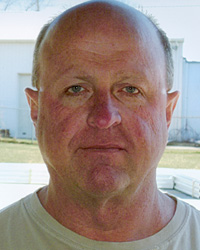
Jeff Seip
Jeff Seip, Boyertown, Pennsylvania – Men’s Fast Pitch
One of the most feared hitters in Men’s Major Fast Pitch history, Seip awed fans with his outstanding power and consistent RBI totals, hitting 18 homers and driving in 43 runs in ASA National Championship play (1976-1990). Seip earned ASA All-America honors six times. He batted .500 in 1983 to lead the Men’s Major Fast Pitch National Championship in batting. Seip was a member of the 1976 and 1984 USA National Teams that competed in the ISF Men’s World Fast Pitch Championships with the 1976 team sharing the Gold Medal and the 1984 team winning a Bronze Medal. Twice Seip was a member of an ASA National Championship team (1977-78) and led his team to a pair of Gold Medals in two of four U.S. Olympic Festivals. Seip also was a member of the 1979 USA Pan American team, which won a Silver Medal in the debut of softball in the Pan American Games.
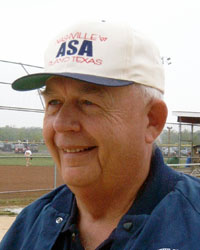
R.B. Thomas
RB Thomas, Nokesville, Virginia – Manager
R.B. Thomas has been the manager of the Thomas Engineering team the past 31 years, leading the team to eight ASA National Championships in 19 appearances. The National Championships have included two in the 50 plus division, two in the 55 plus division and four in the 60 plus division. Besides being the team’s manager, R.B. has sponsored from one to five teams every year since 1978. During his career, he has sponsored 43 teams with 11 winning ASA Nationals. He is the 26th manager elected to the ASA Hall of Fame.
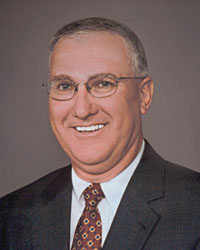
Tony Walsh
Tony Walsh, Atoka, Tennessee – Umpire
Tony Walsh started his umpiring career in 1979 and worked five ASA National Championships between 1981 and 2003. In 1988, he was named to the ASA National Umpire staff representing the Southwest Region and remained a member of that staff until 2001. He is a member of the ASA National Indicator Fraternity and the ASA Medals program.
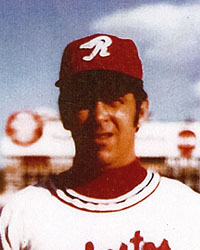
Al Yaeger
Allan F. Yaeger, Seymour, Connecticut – Men’s Fast Pitch – Outfield
Yaeger, who starred for the Raybestos Cardinals from 1965-1981, is the 12th former Cardinal elected to the ASA National Softball Hall of Fame. An outfielder, Yaeger was a member of four National Championships teams, in fact his two out, bases loaded single in the bottom of the eighth inning landed the Cardinals their third National Championship title in four years. Yaeger had a career .298 batting average, played in four All-Star Series games, and participated in ten National Tournaments during his ASA career. Yaeger earned All-America honors three times and led the 1971 ASA National Championship in batting (.455). After 1981, Yaeger got into coaching, and he helped lead the Franklin Cardinals to an ASA National Championship. A year later, he coached the 1984 USA Men’s Softball team to a bronze medal in the International Softball Federation (ISF) Men’s World Championships. For his accomplishments, Al was inducted into the Connecticut ASA Hall of Fame in 1986.
Yaegar attended Michigan State University before signing a contract with the Boston Red Sox where he played professionally for four years in the minor league system. Following his career with the Red Sox, Yaegar starred on the Raybestos Cardinals for nearly 17 years (1965-1981) and led the squad to four national championship titles. He earned three All-American honors throughout his softball career and participated in four All-Star games. Following his playing career, Yaegar transitioned into coaching and led the 1984 USA Softball Men’s National Team to a bronze medal at the International Softball Federation (ISF) World Championship. Yaegar was inducted into the Connecticut ASA Hall of Fame in 1986 before his enshrinement into the National Softball Hall of Fame in 2009.
Off the field, Yaegar worked for Pitney Bowes for over 28 years in both their Newtown and Stamford locations. Following his retirement in 2000, he became a very successful coach at Sacred Heart University and the University of New Haven.
Yaegar passed away on January 14, 2023.


